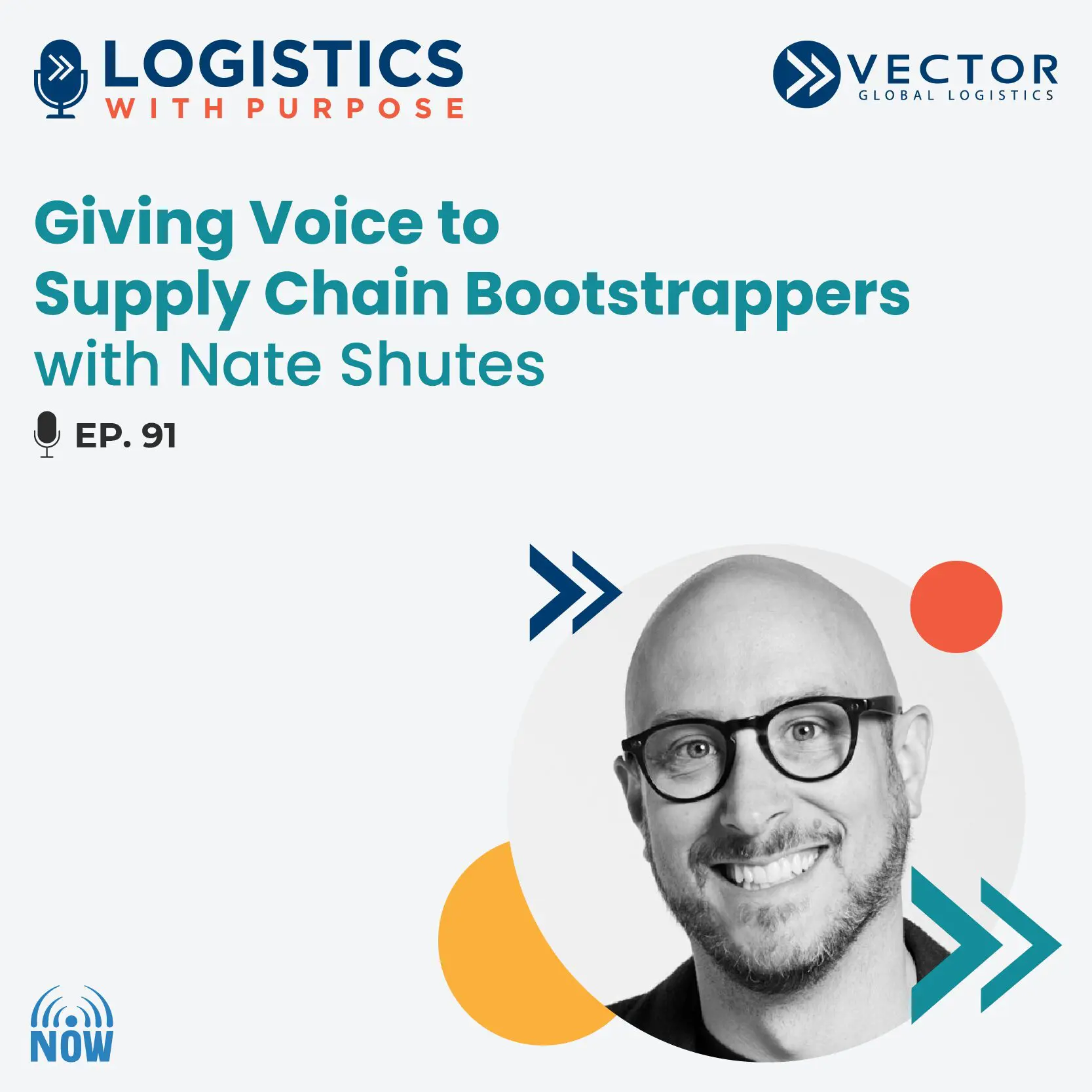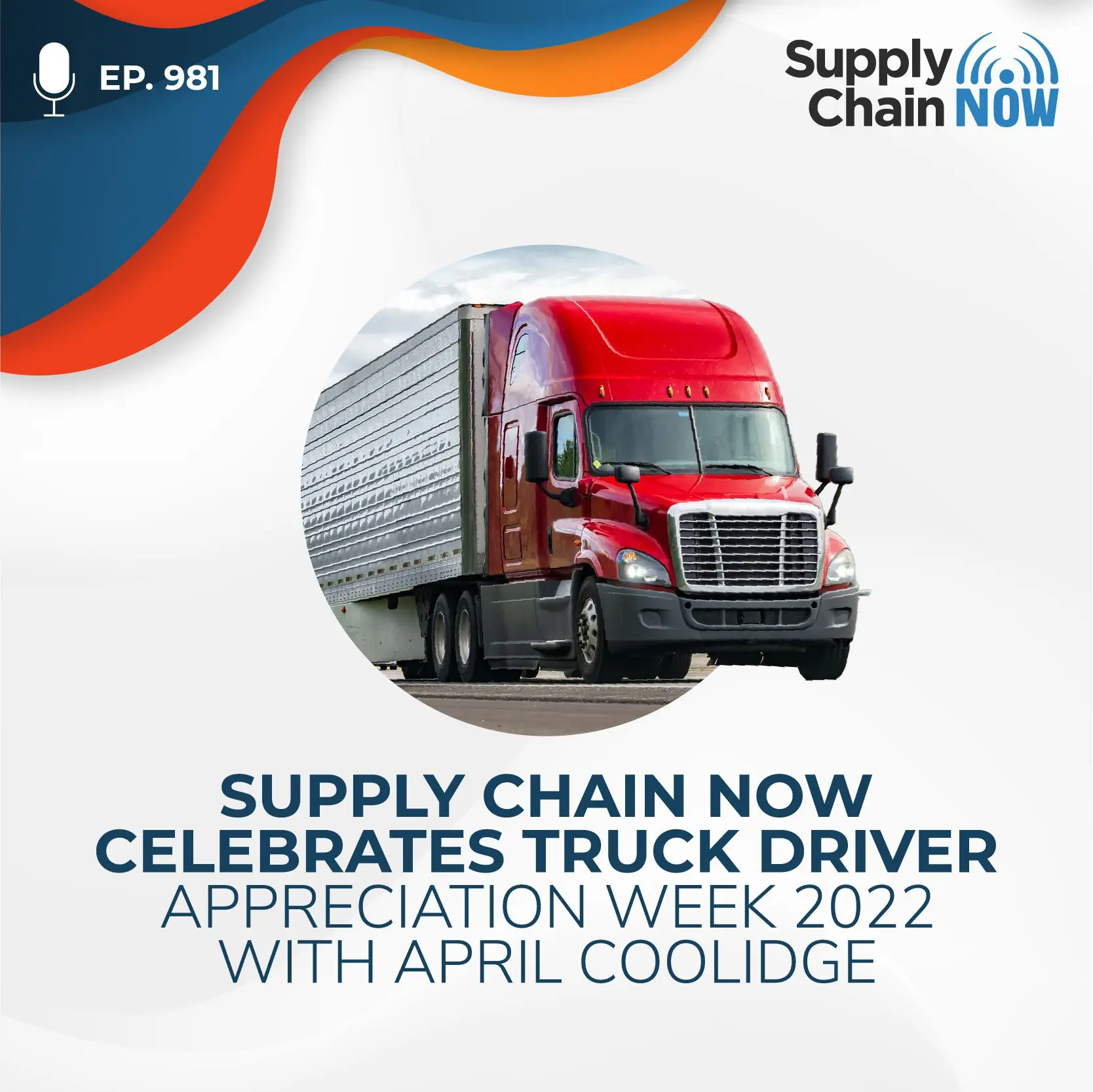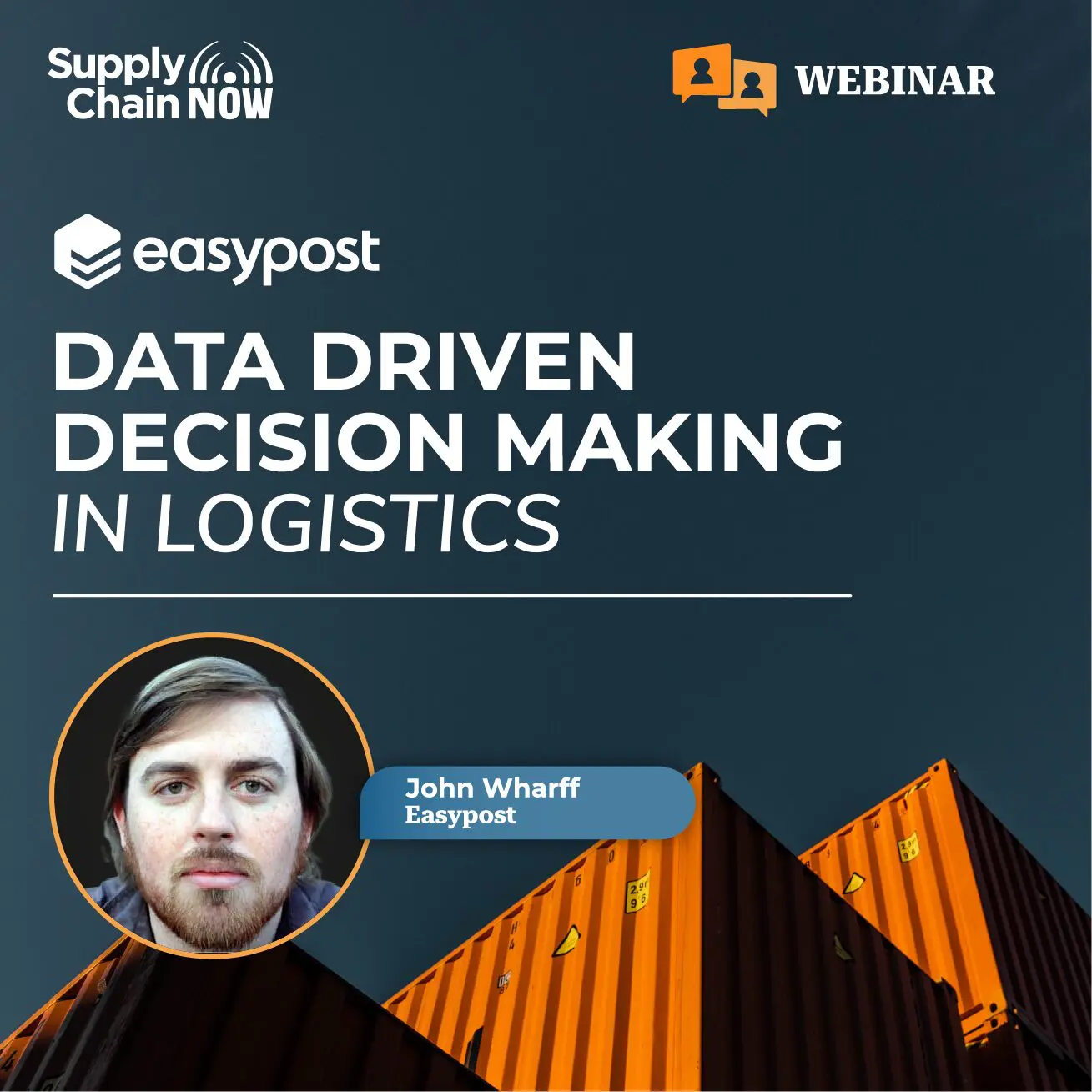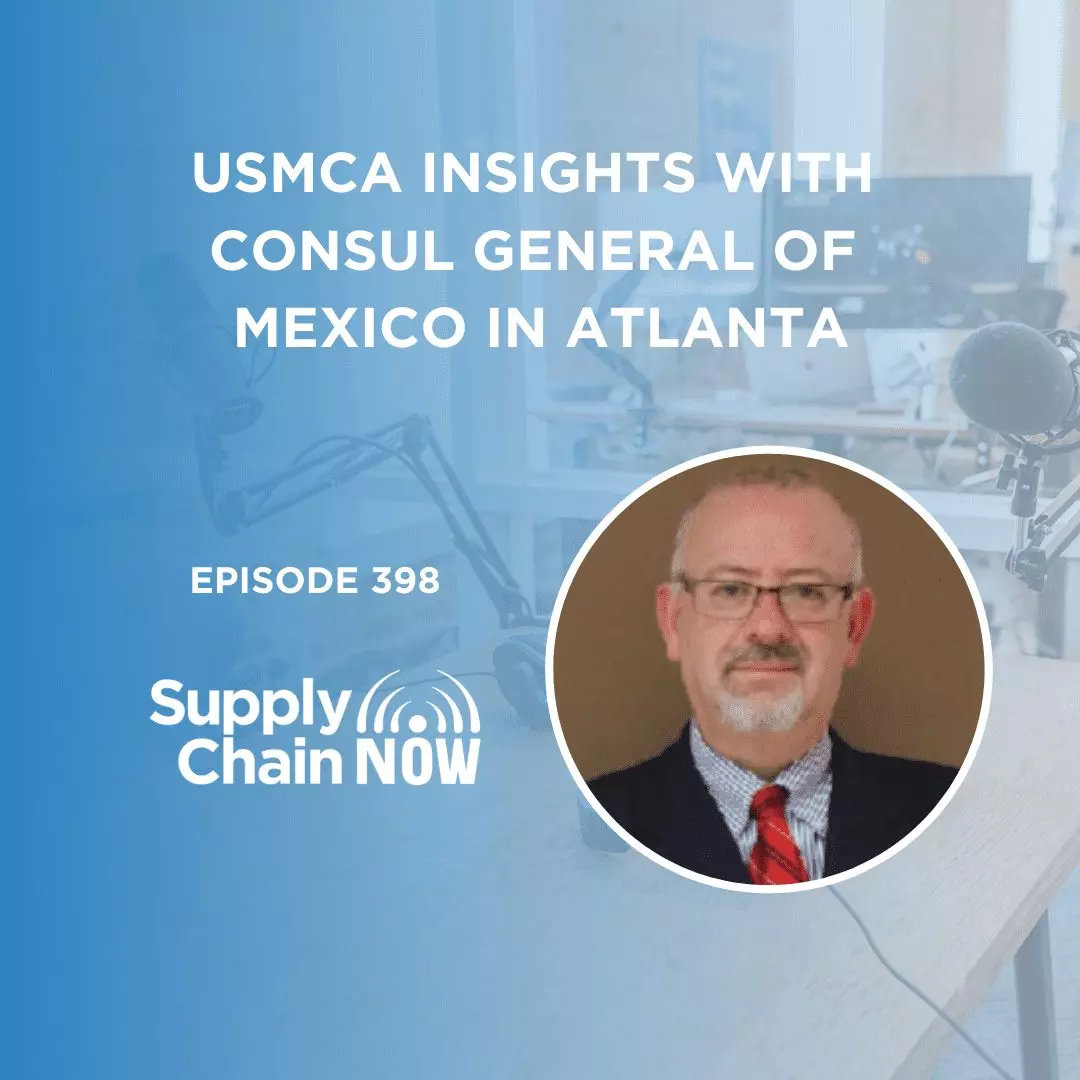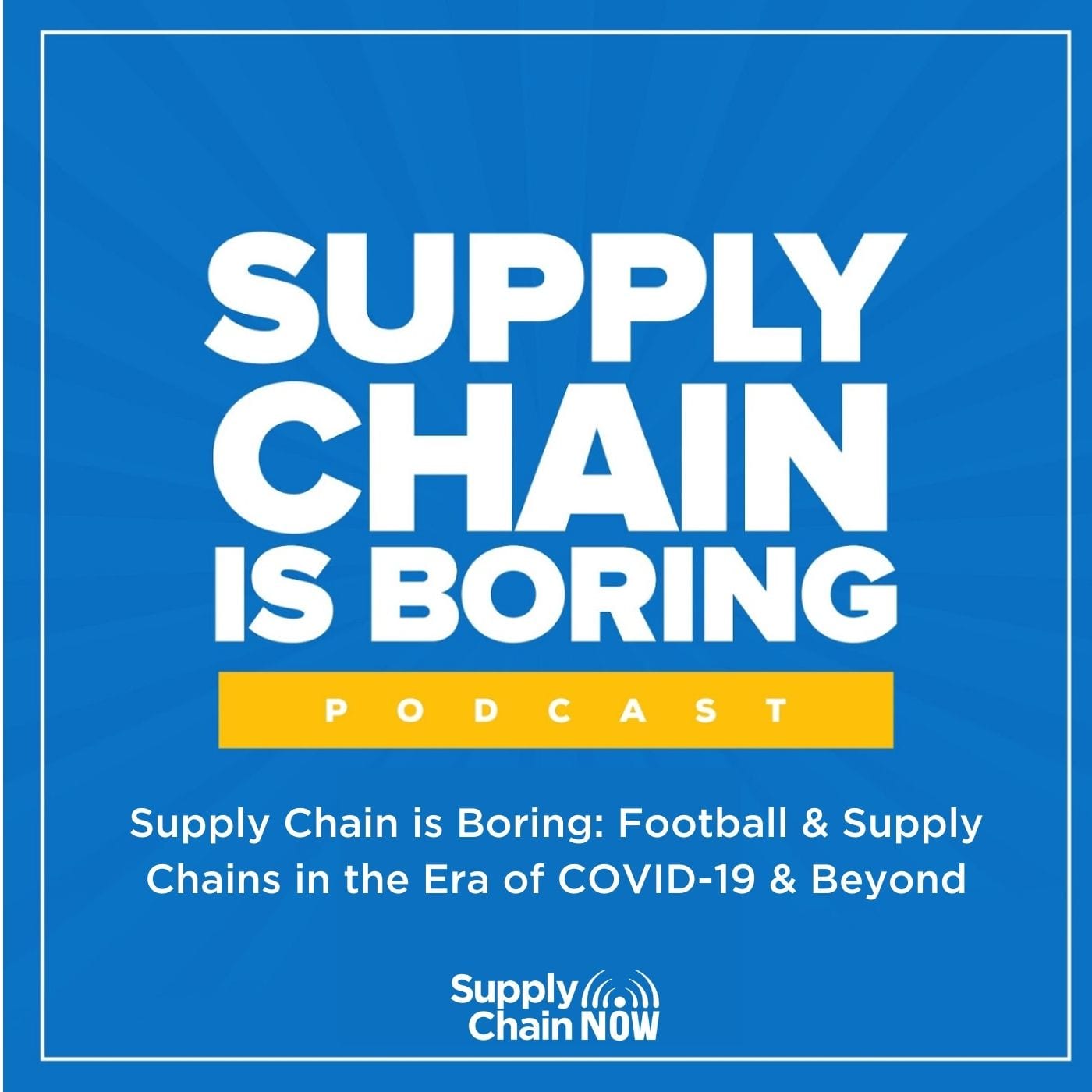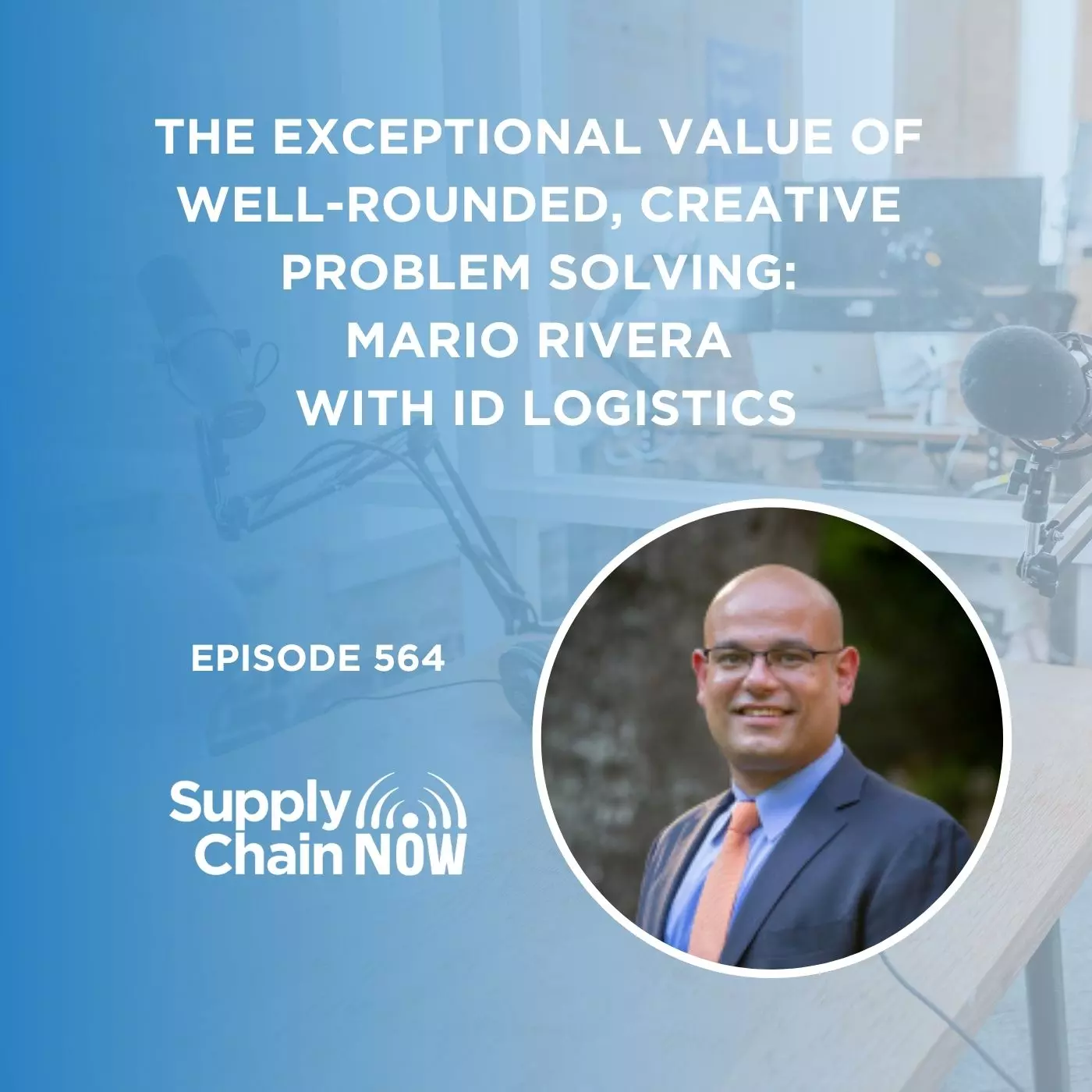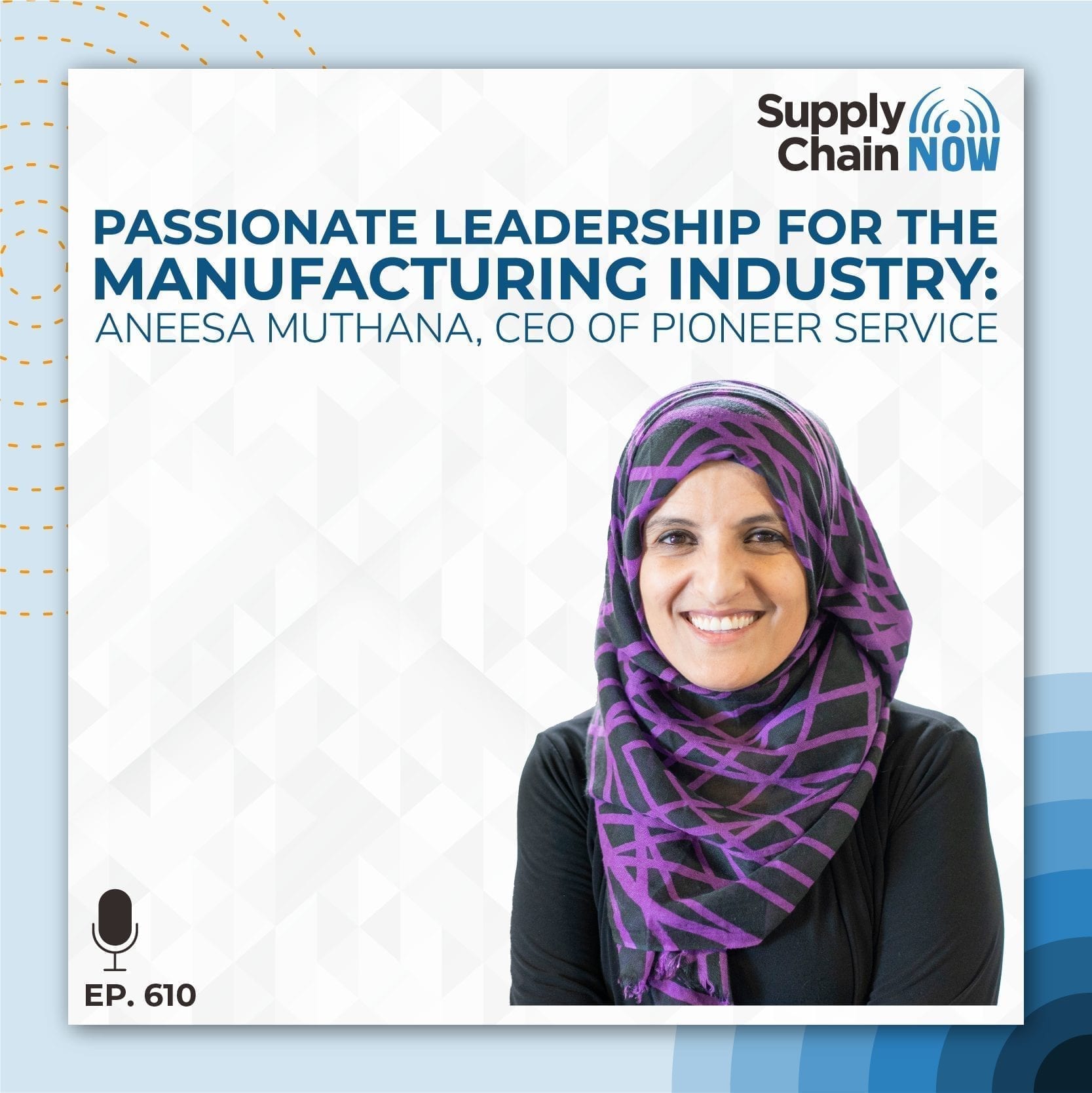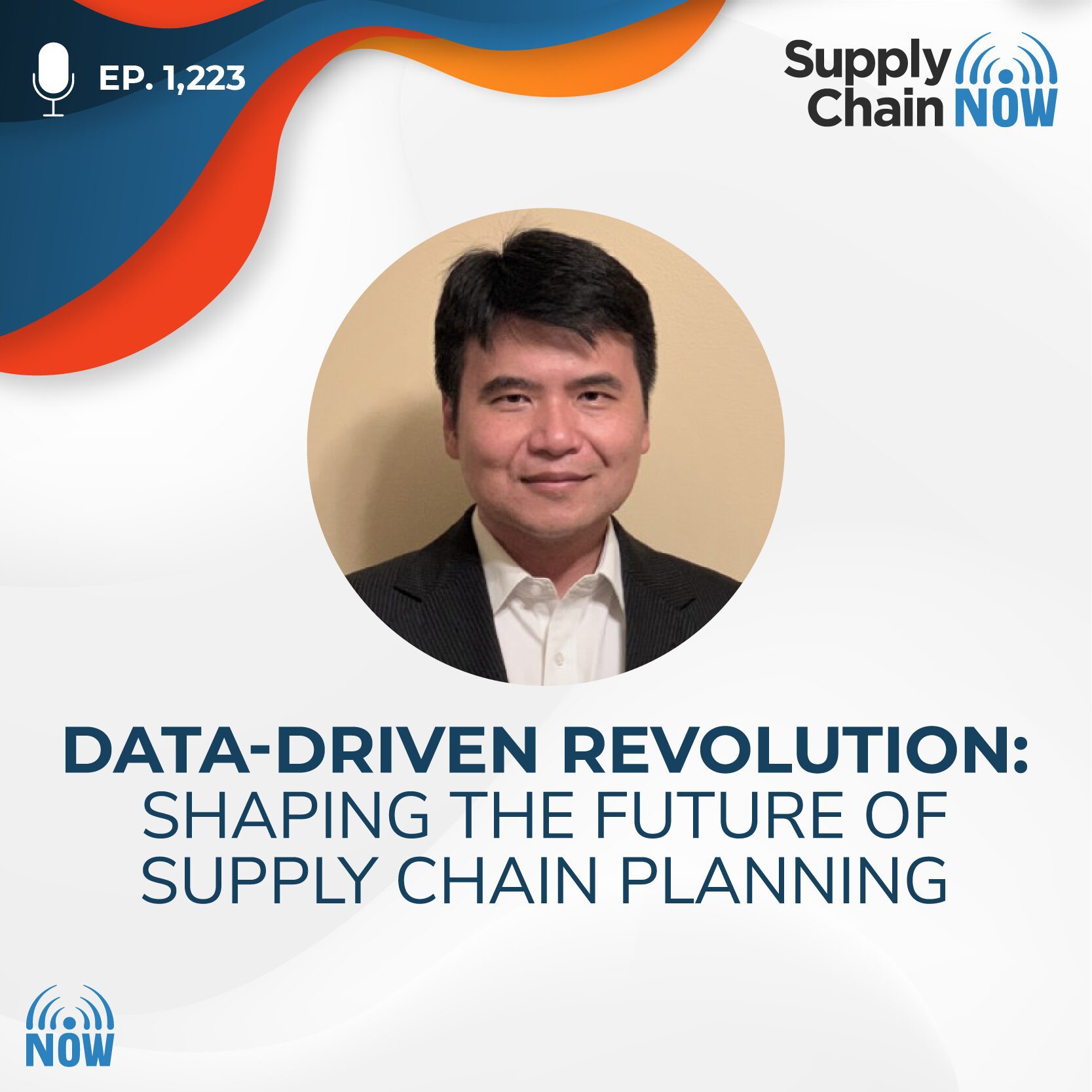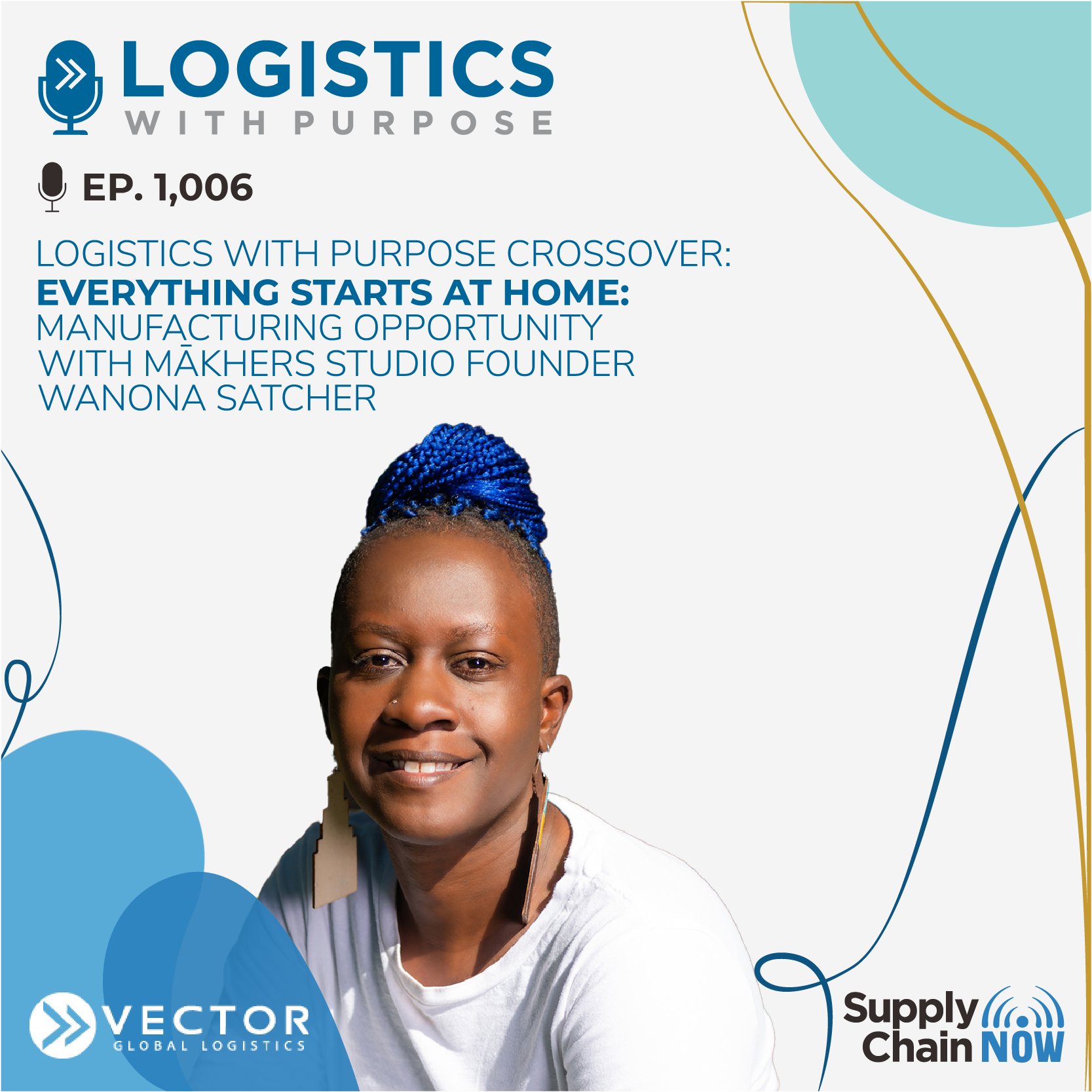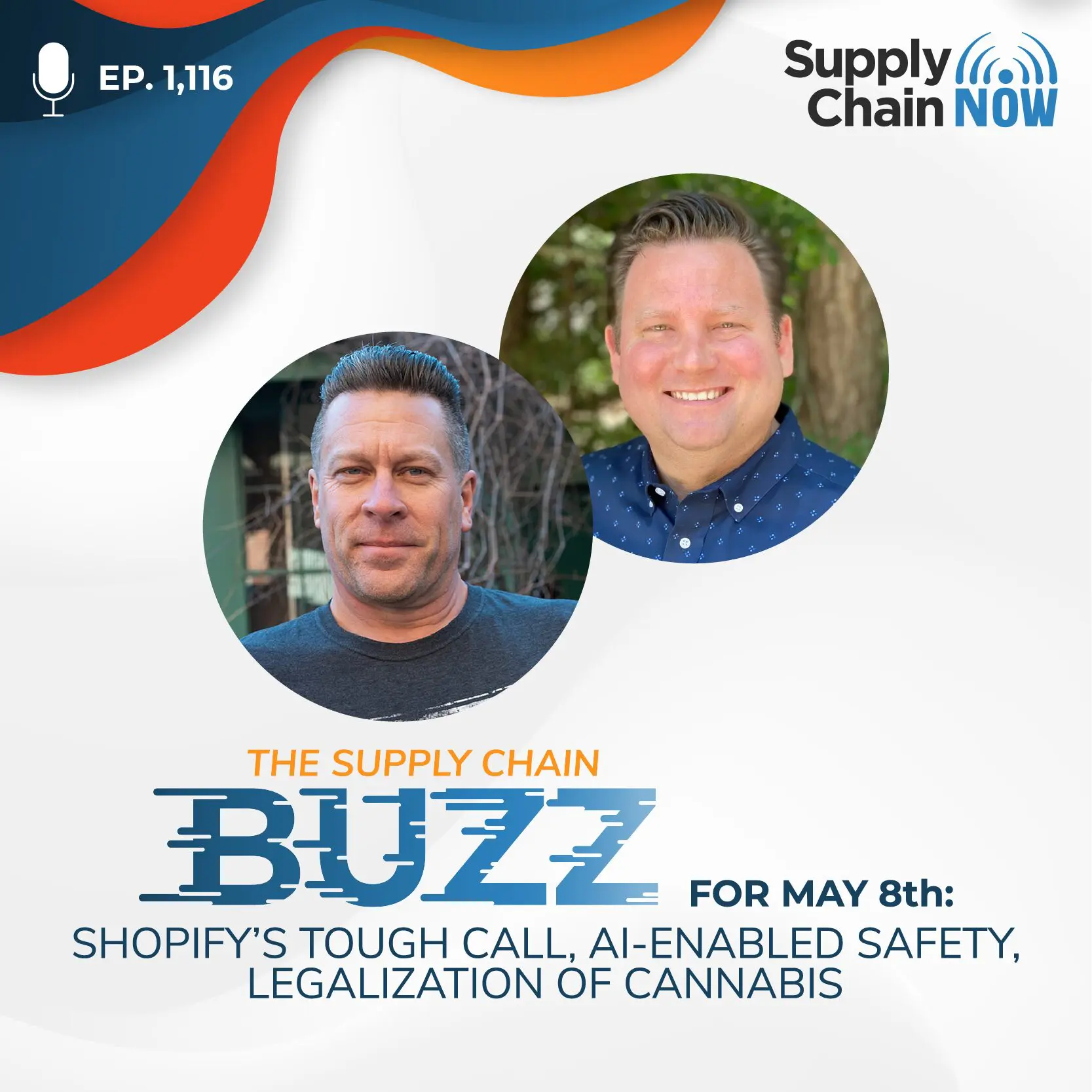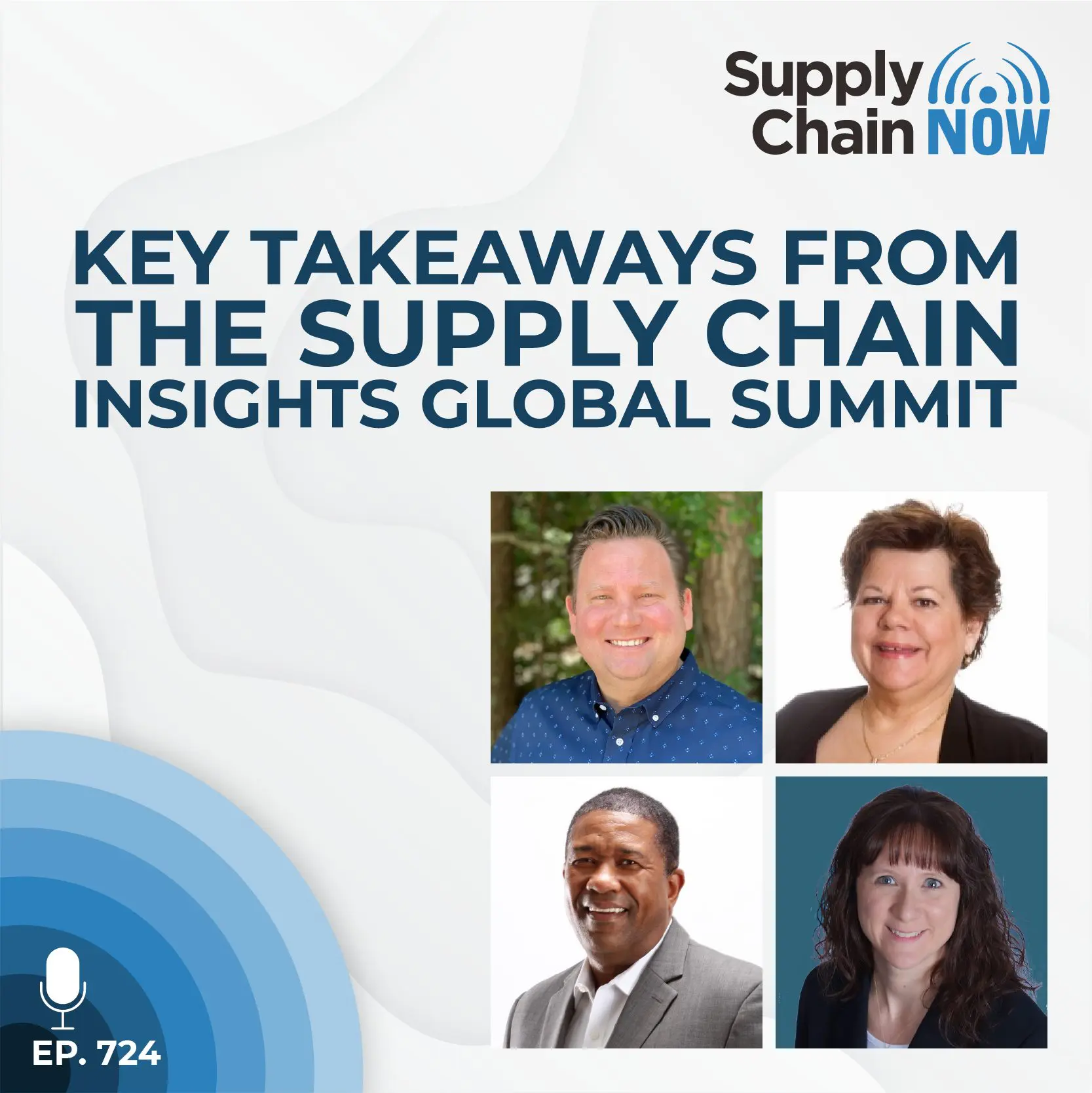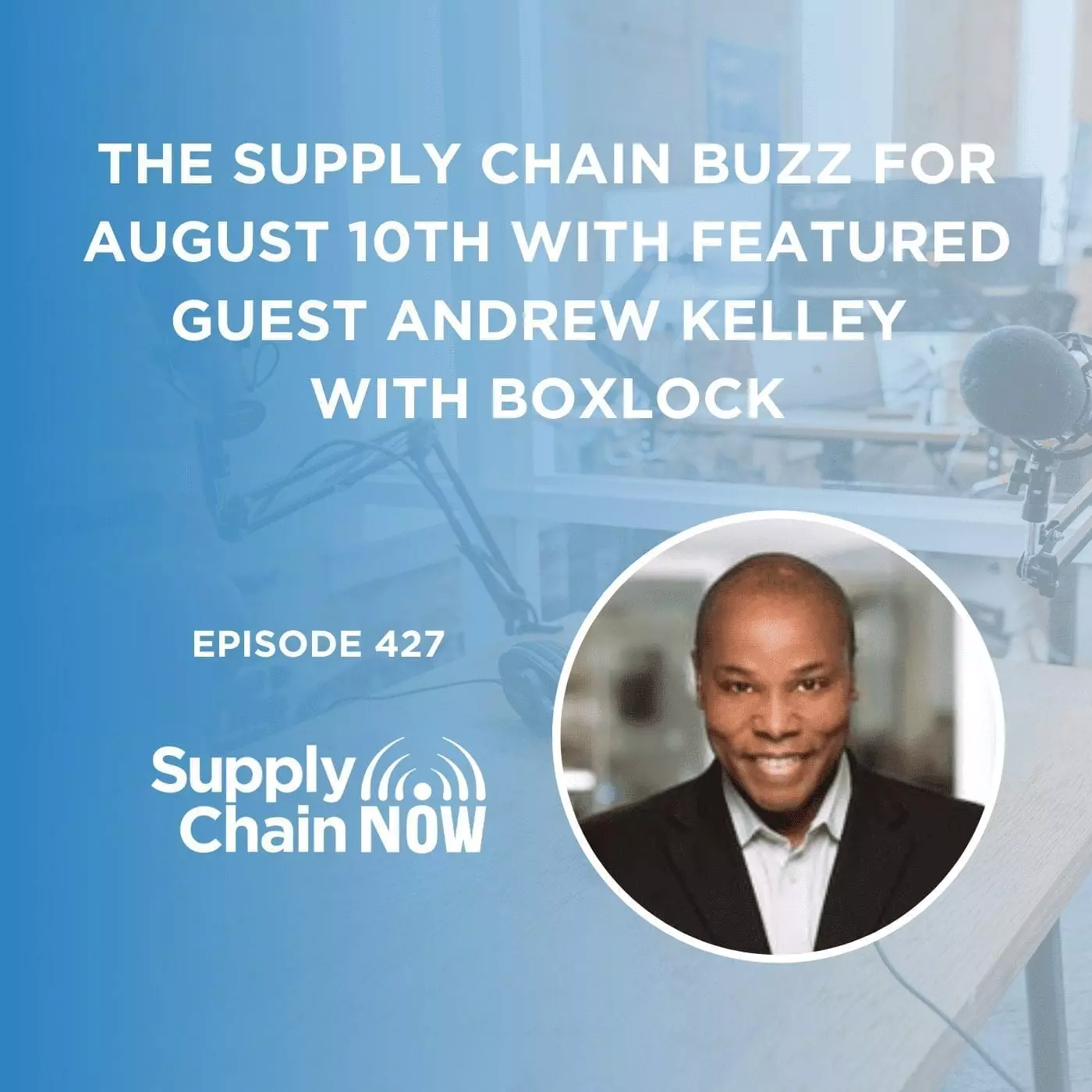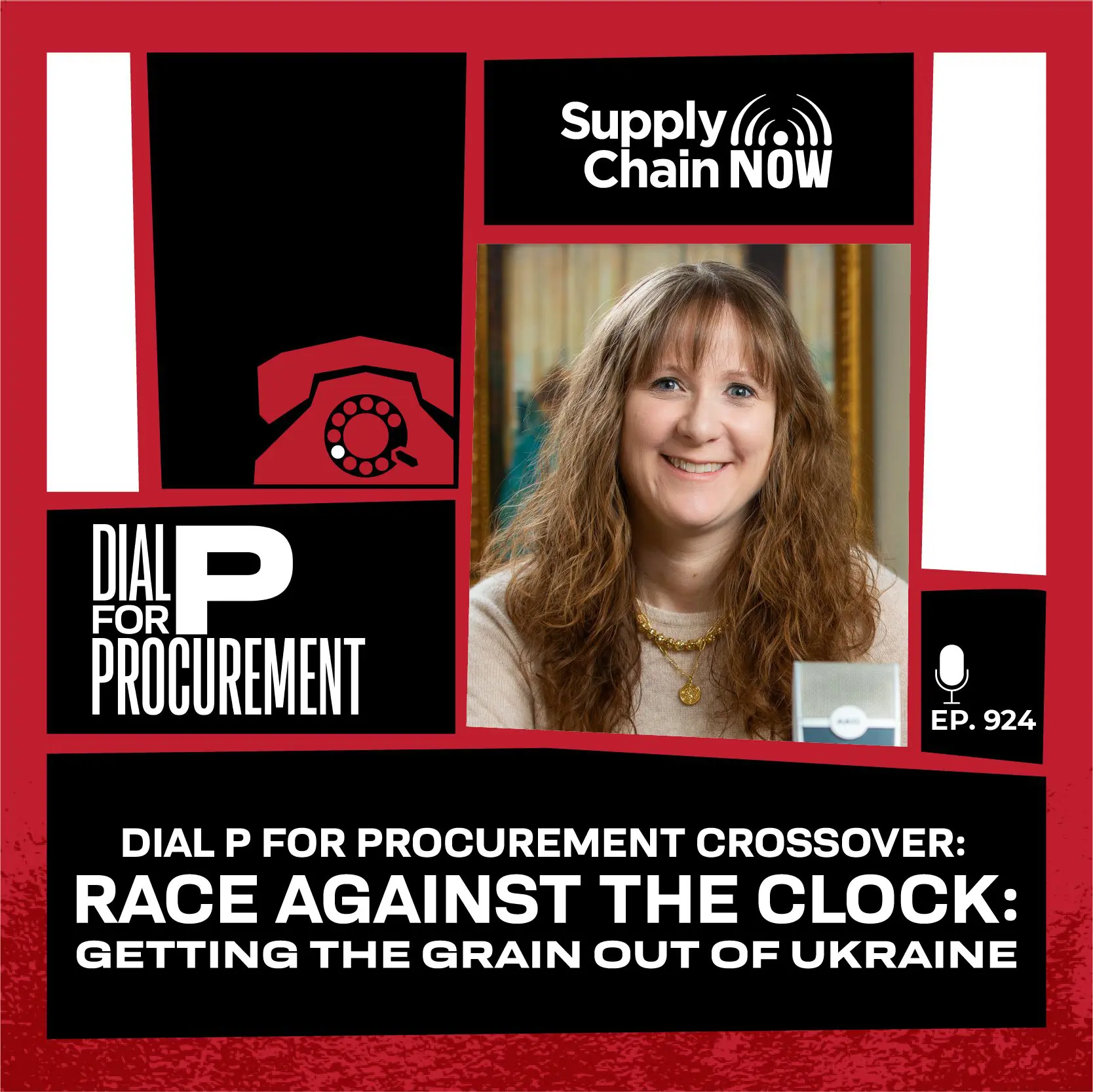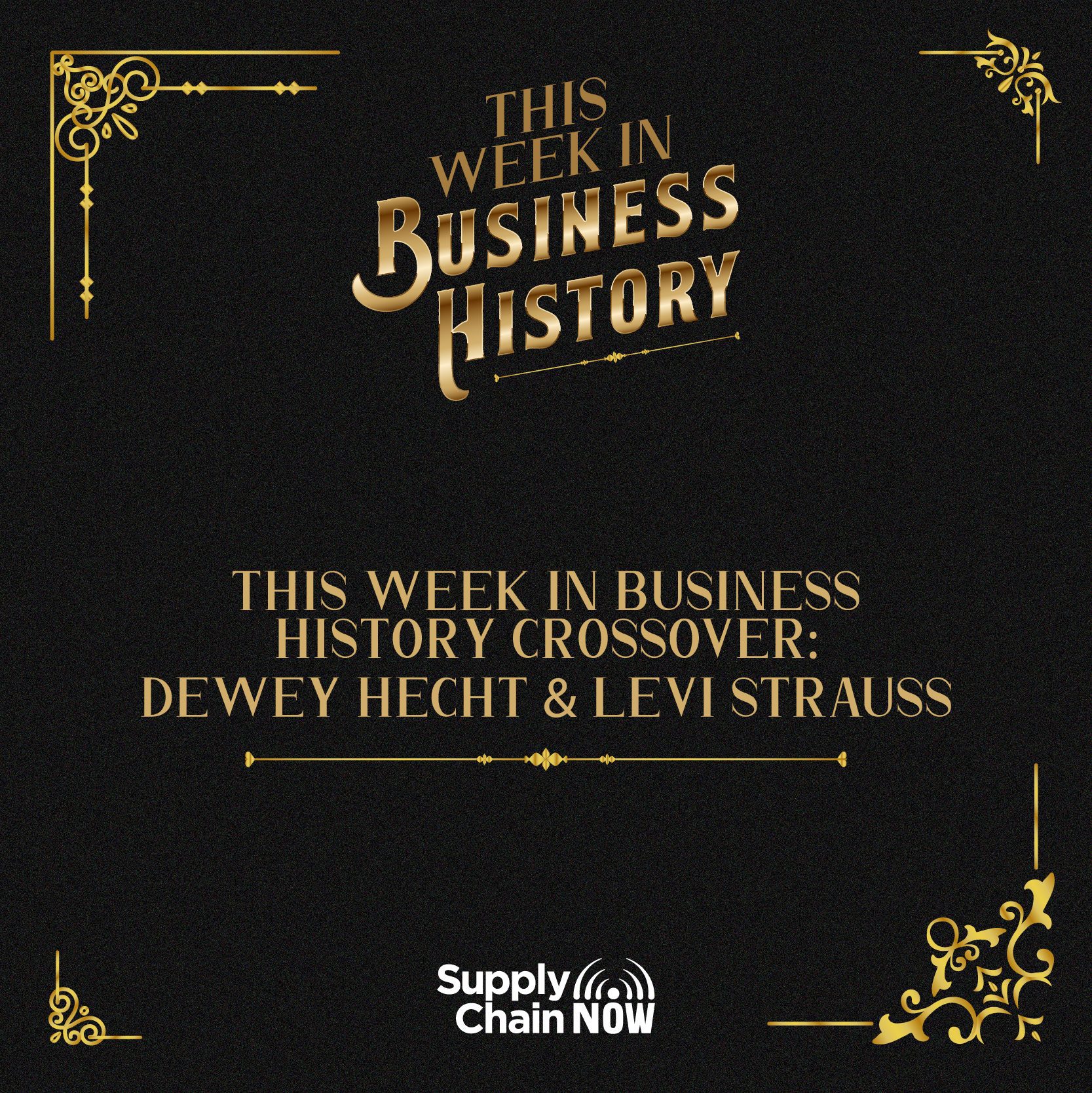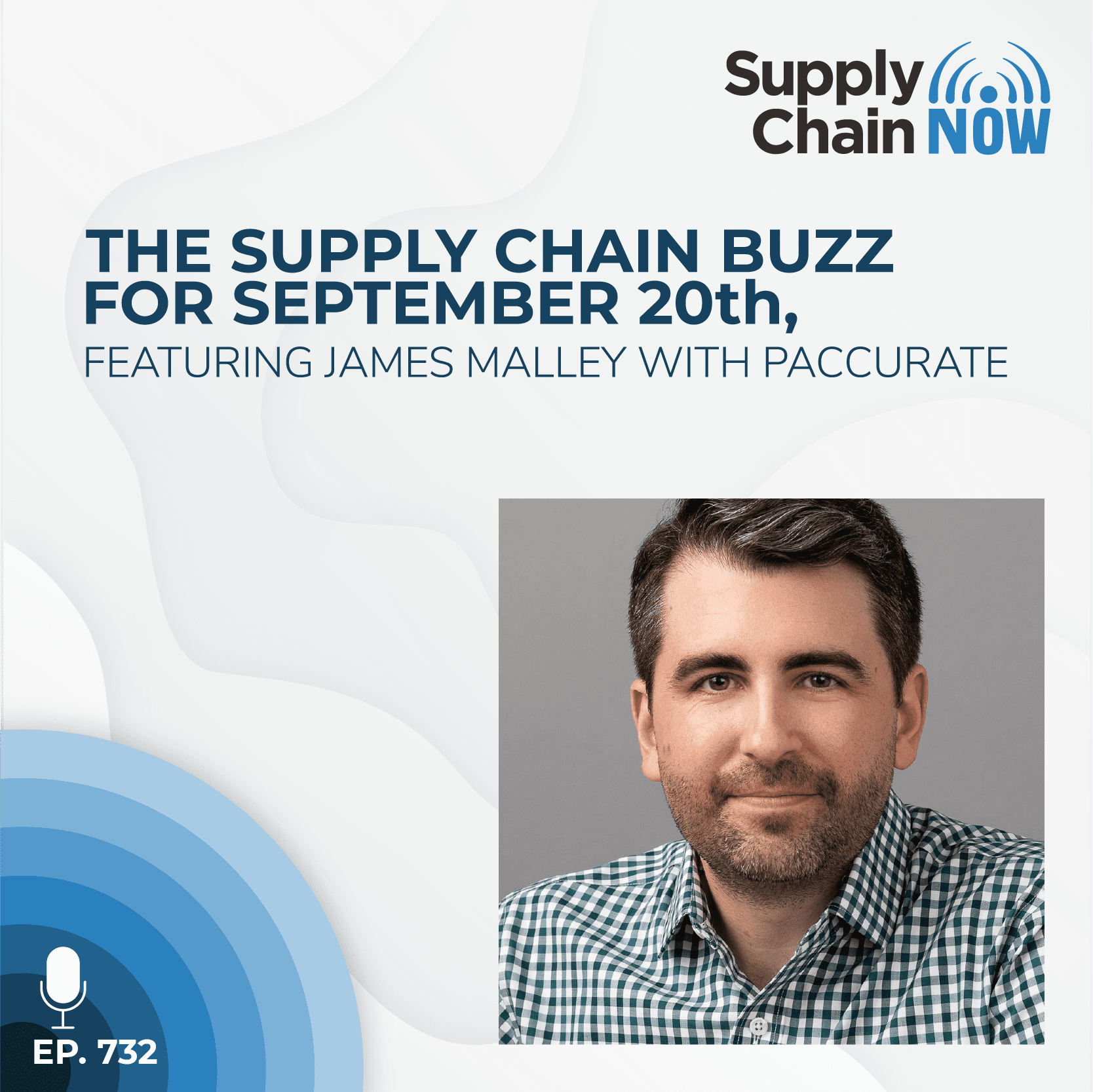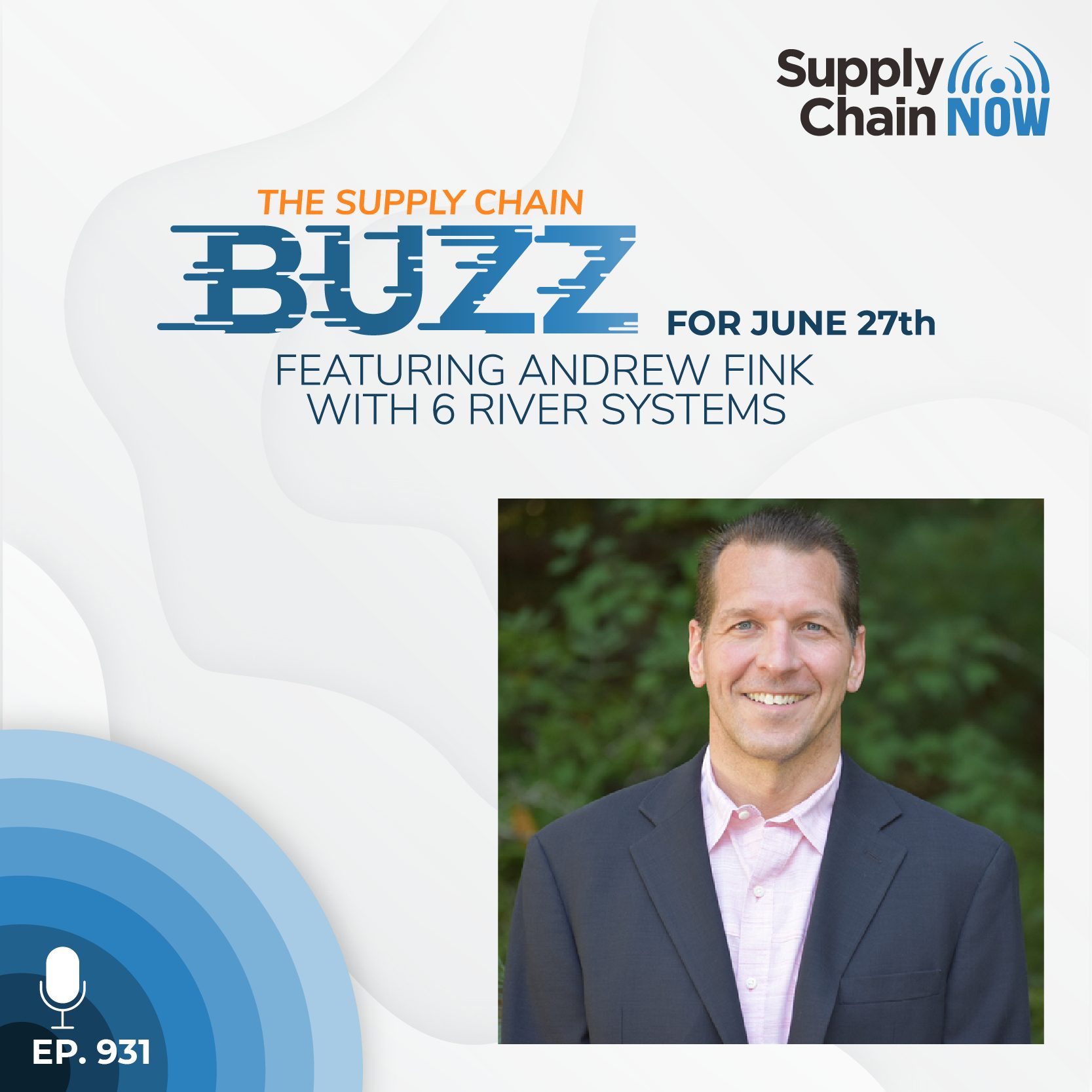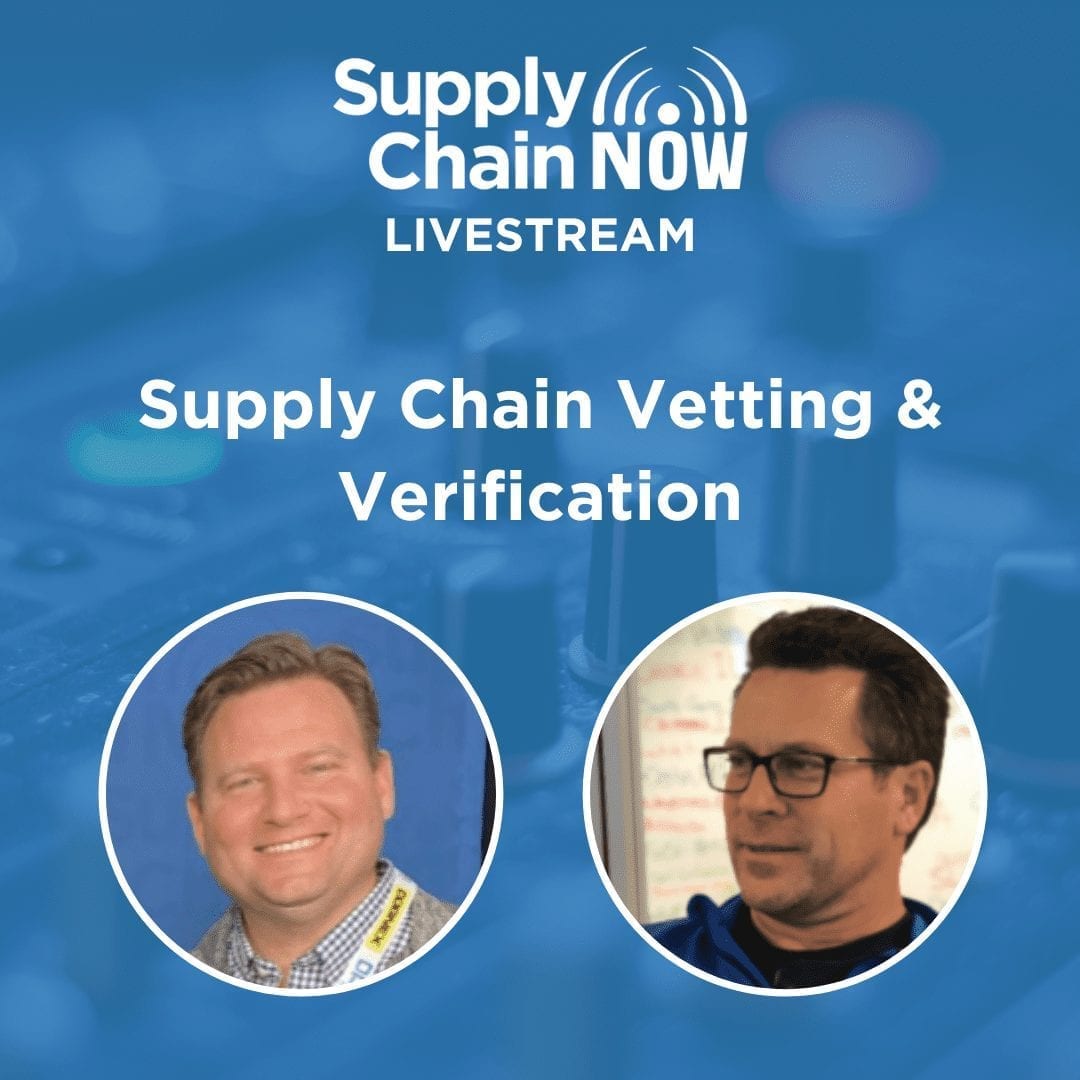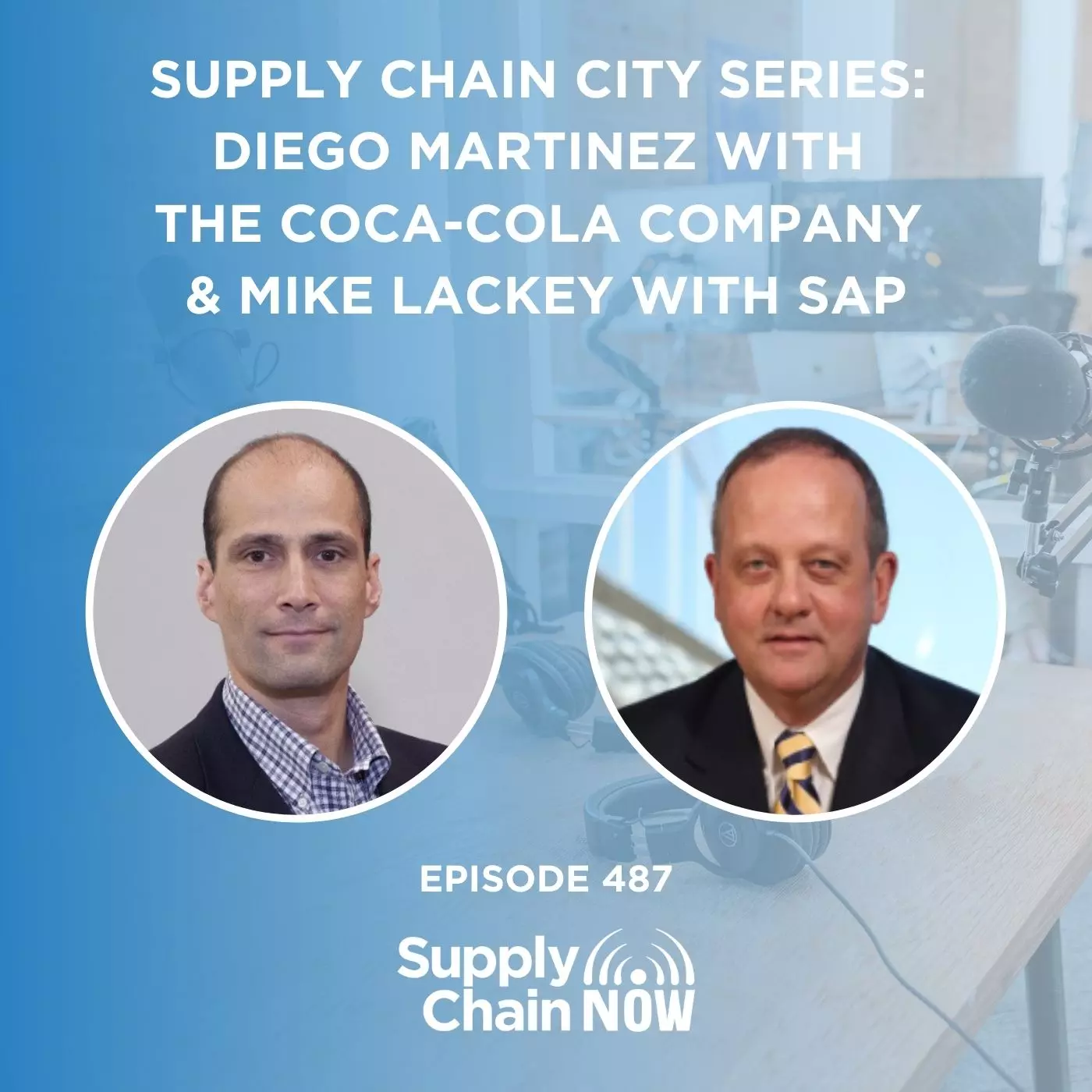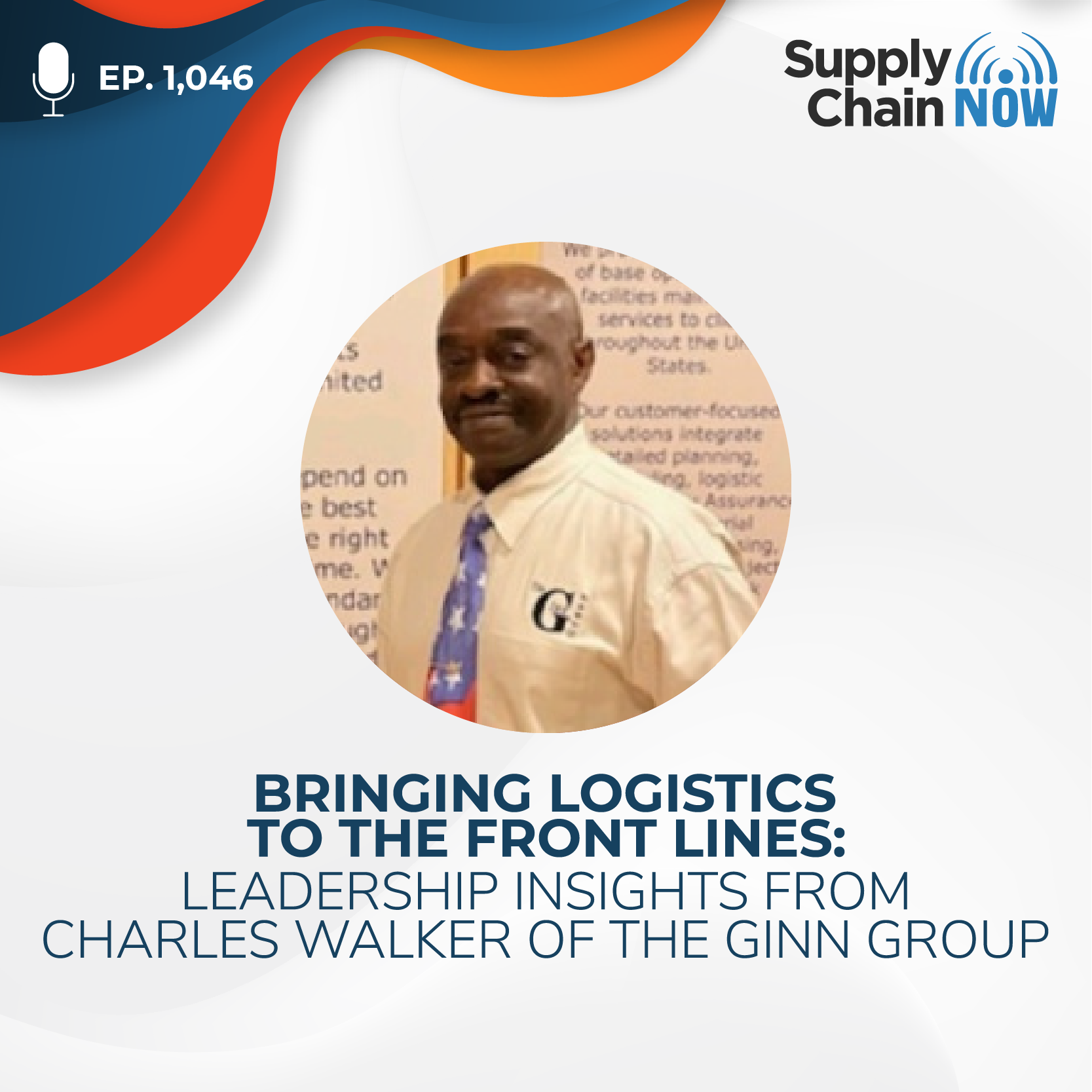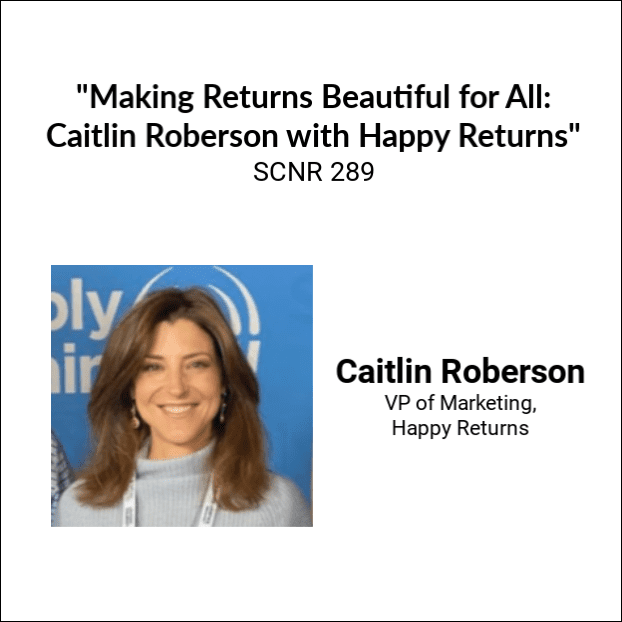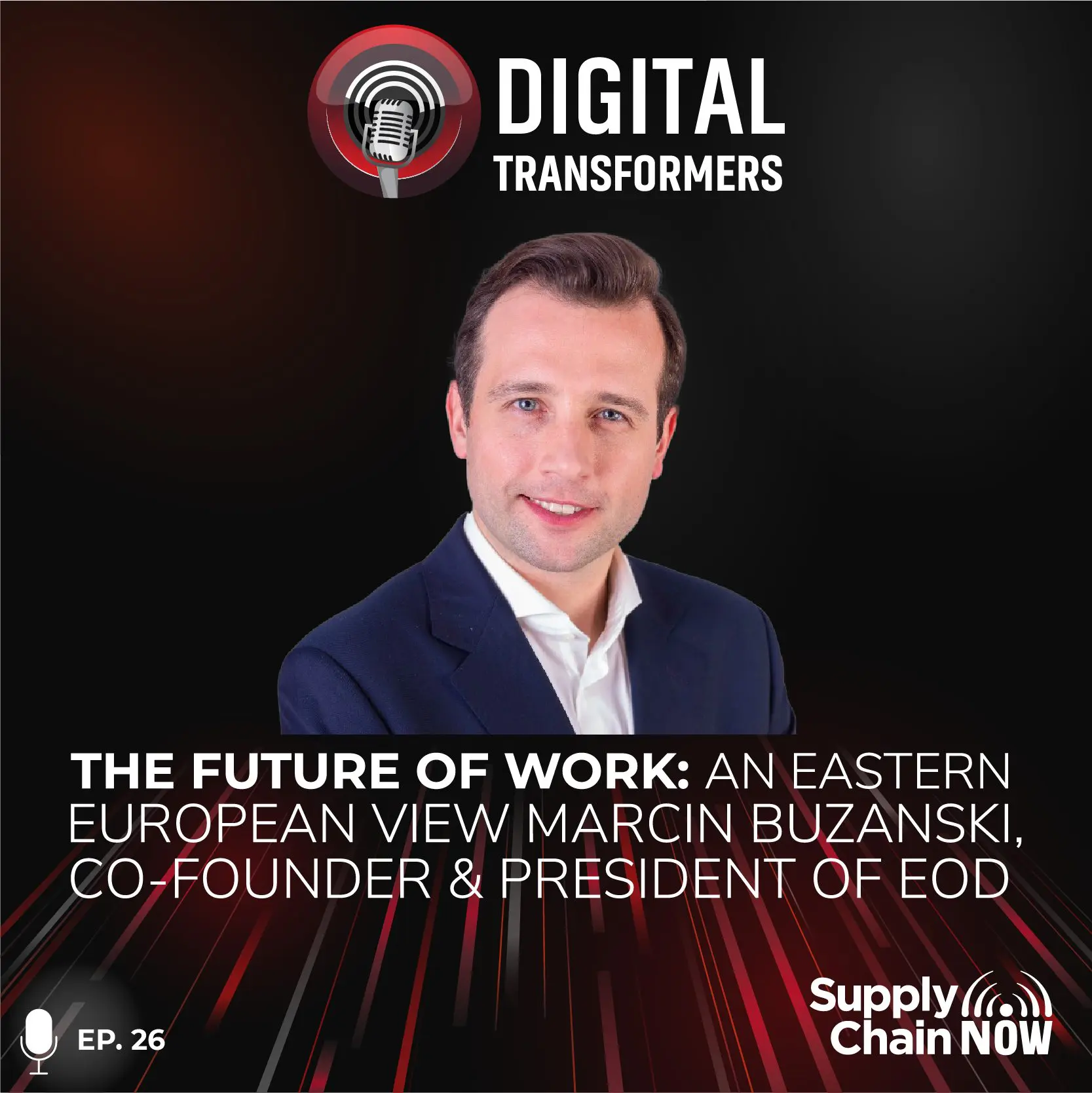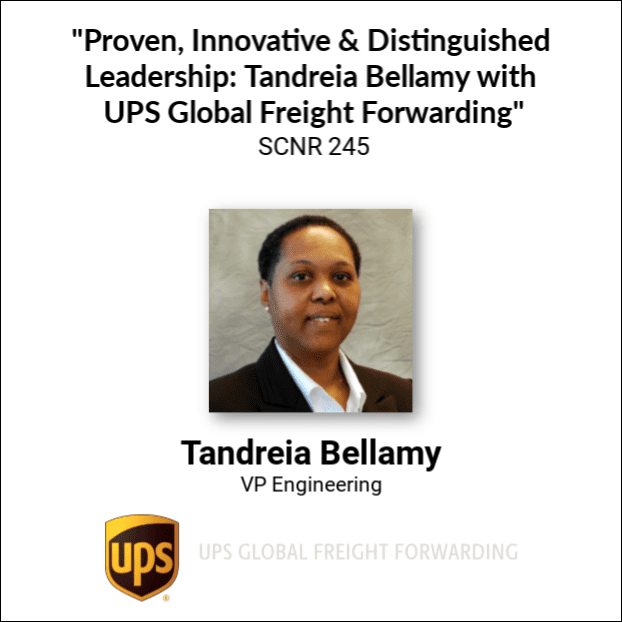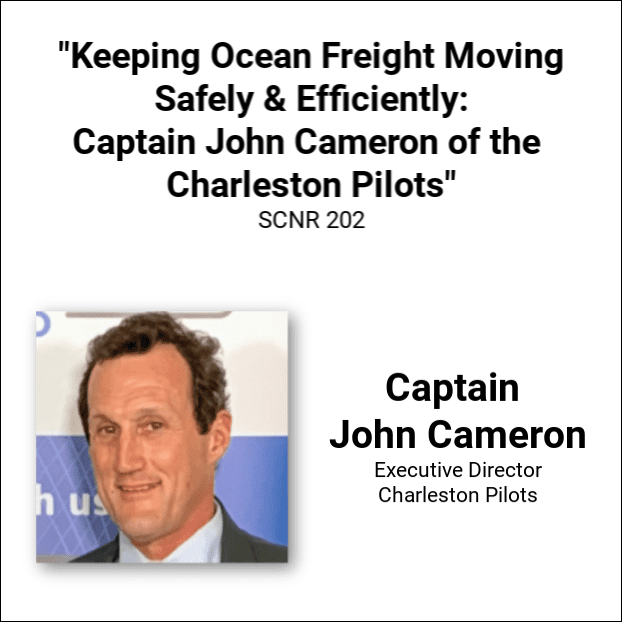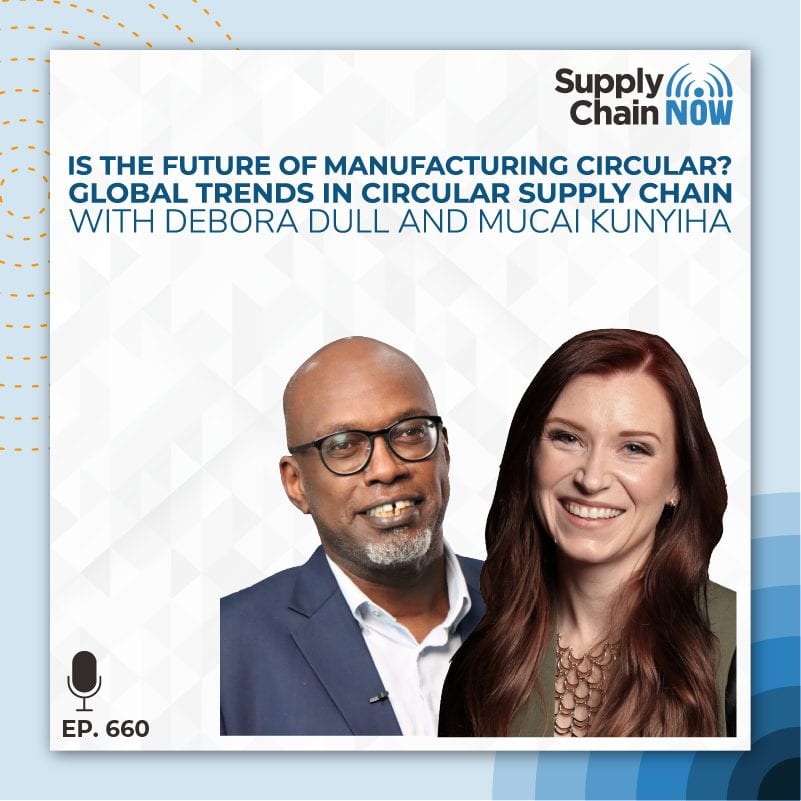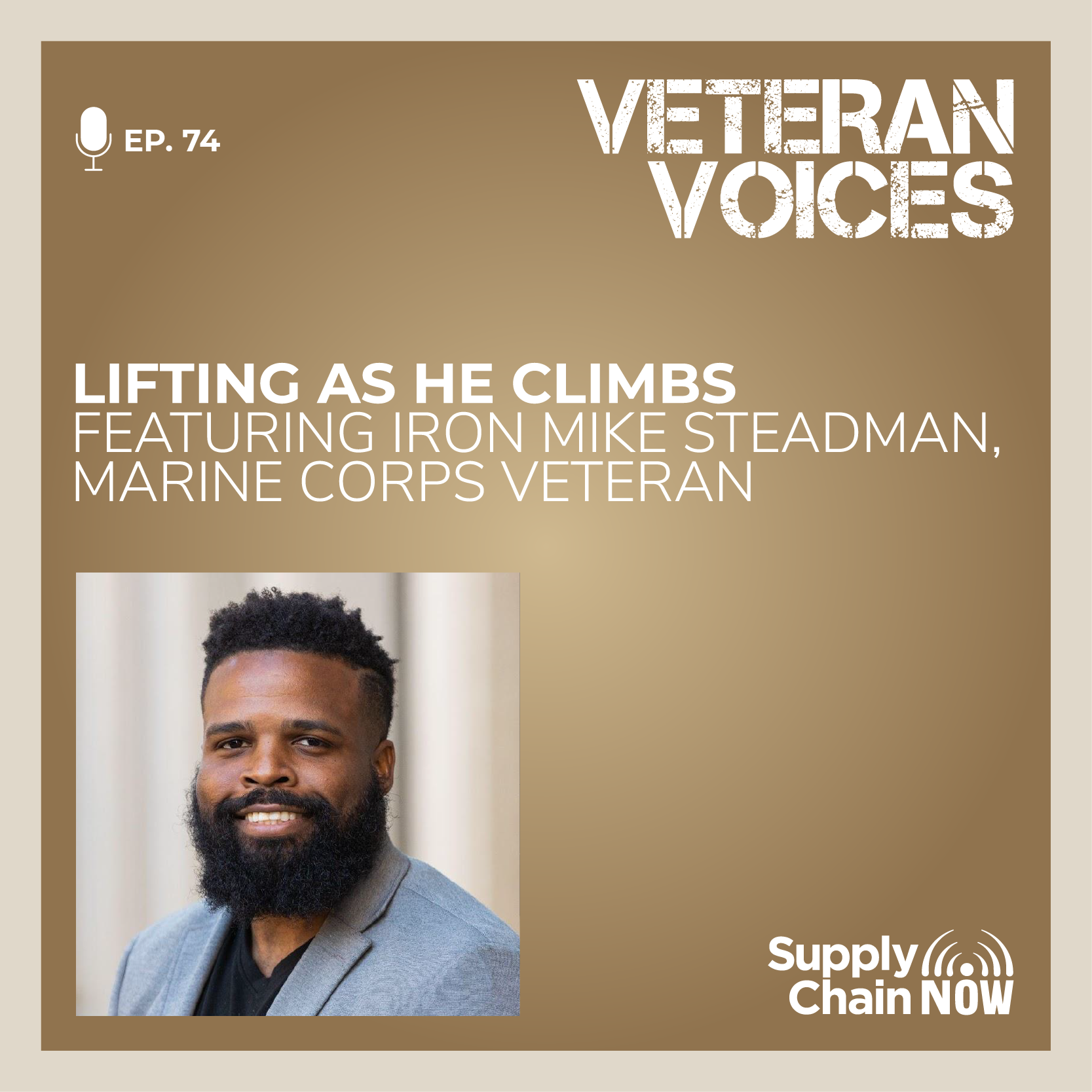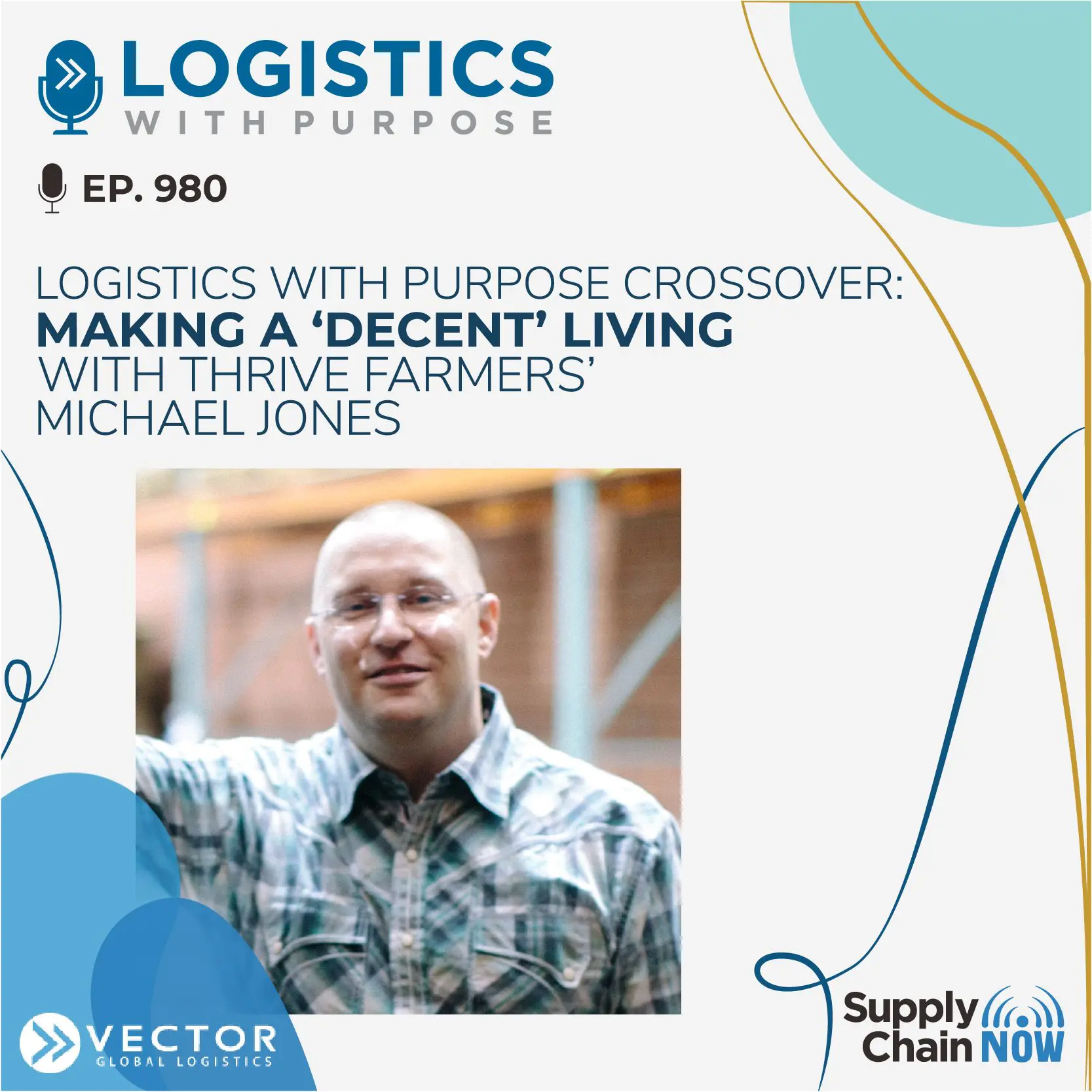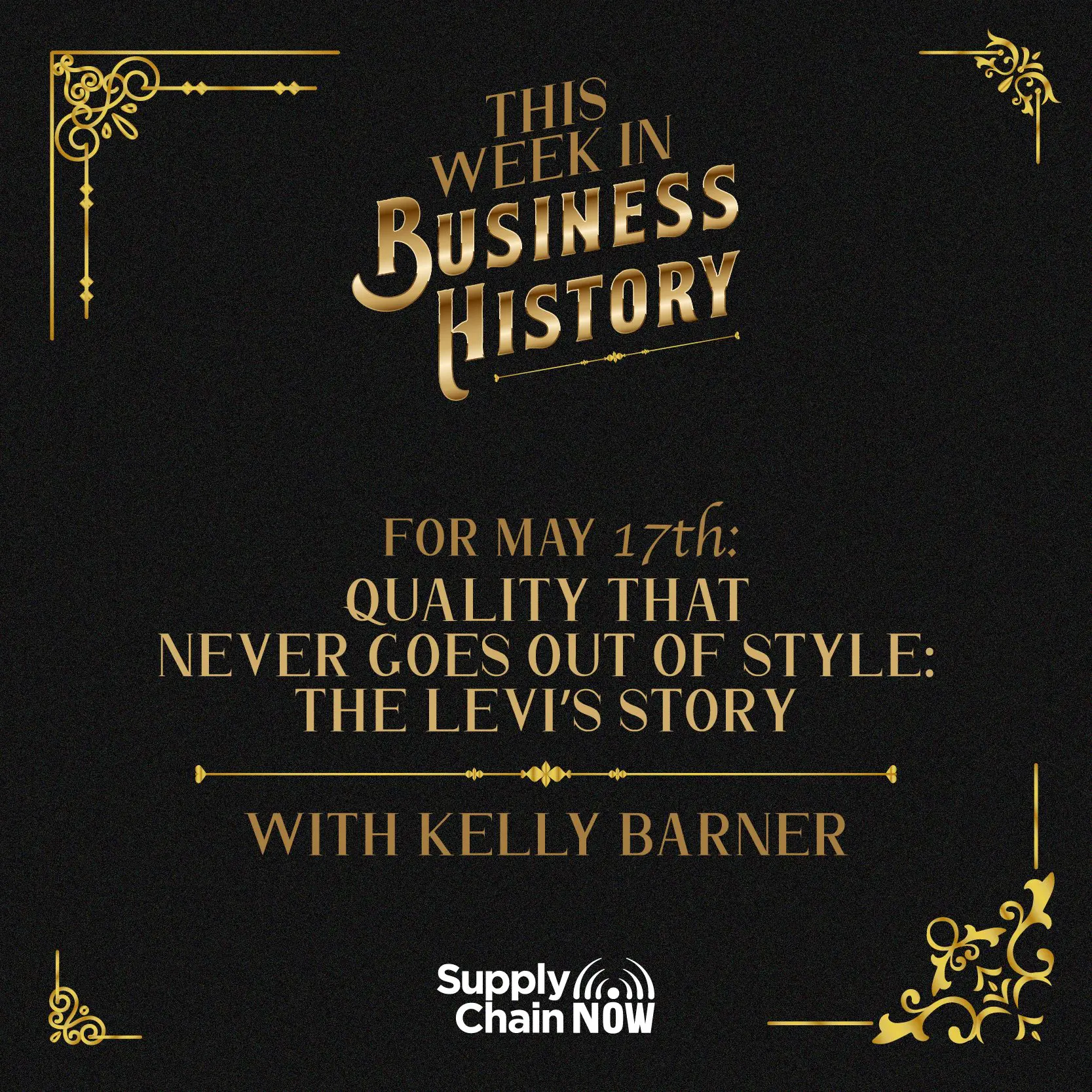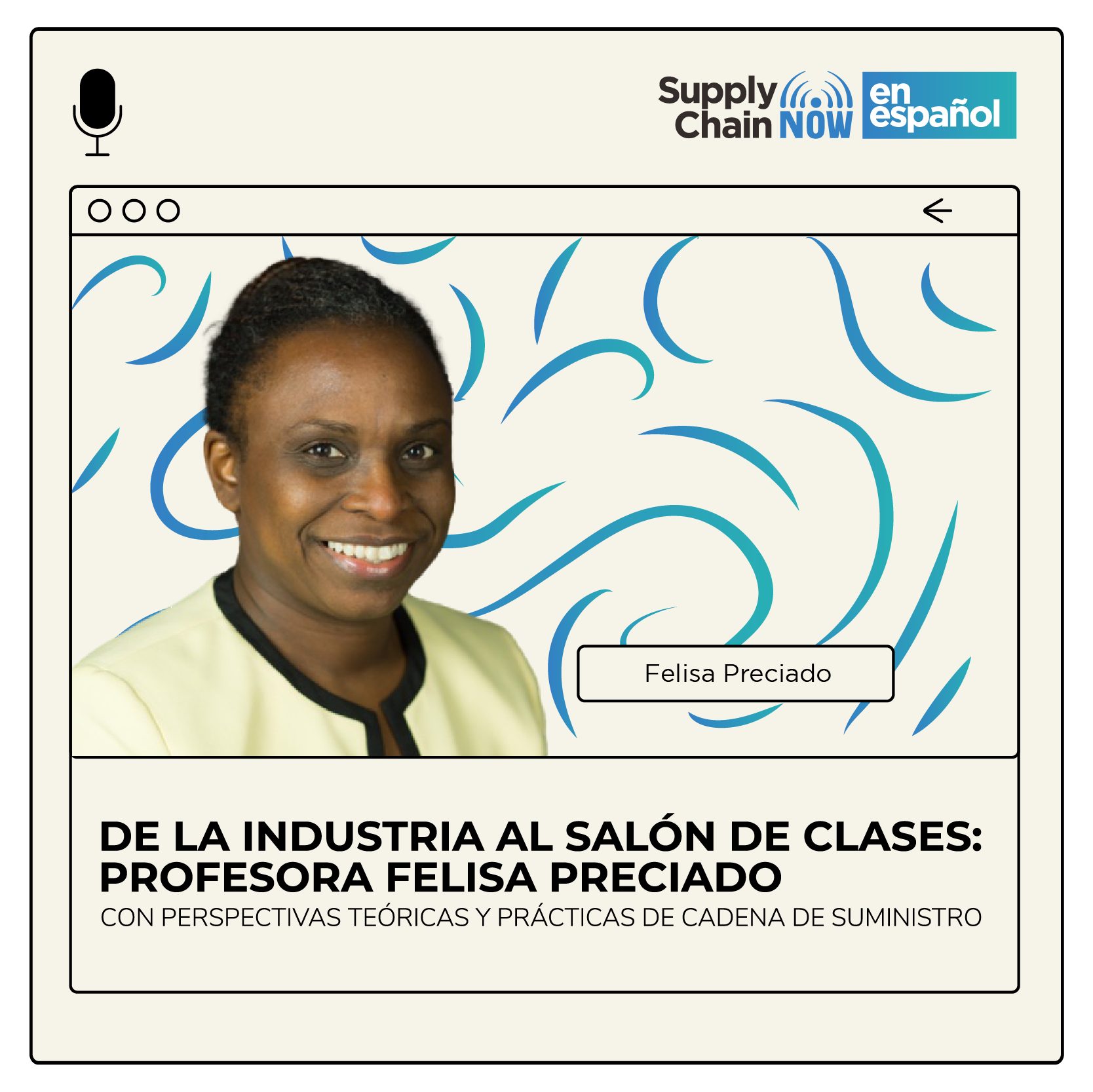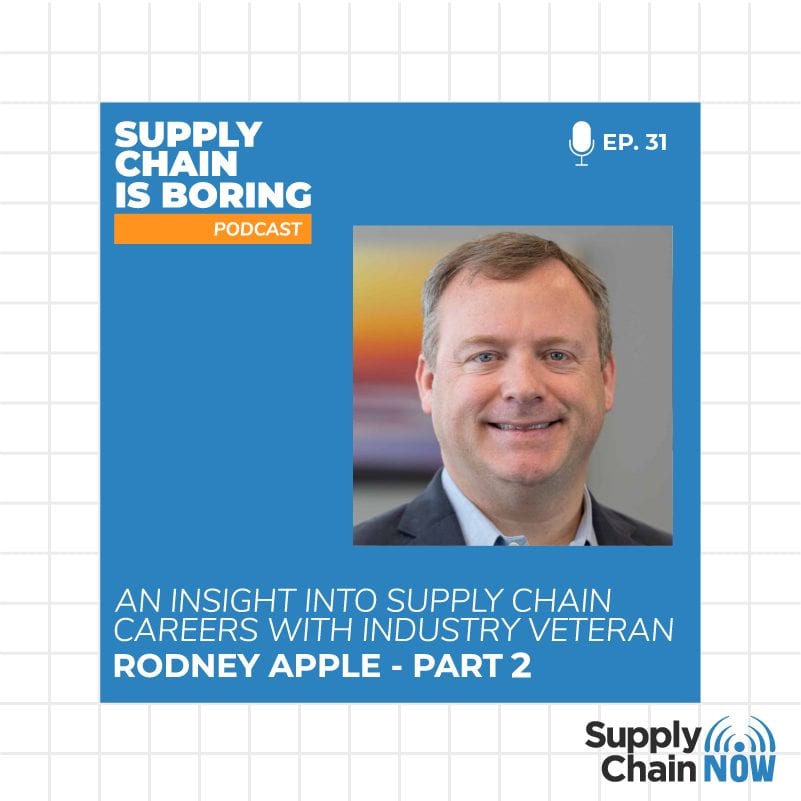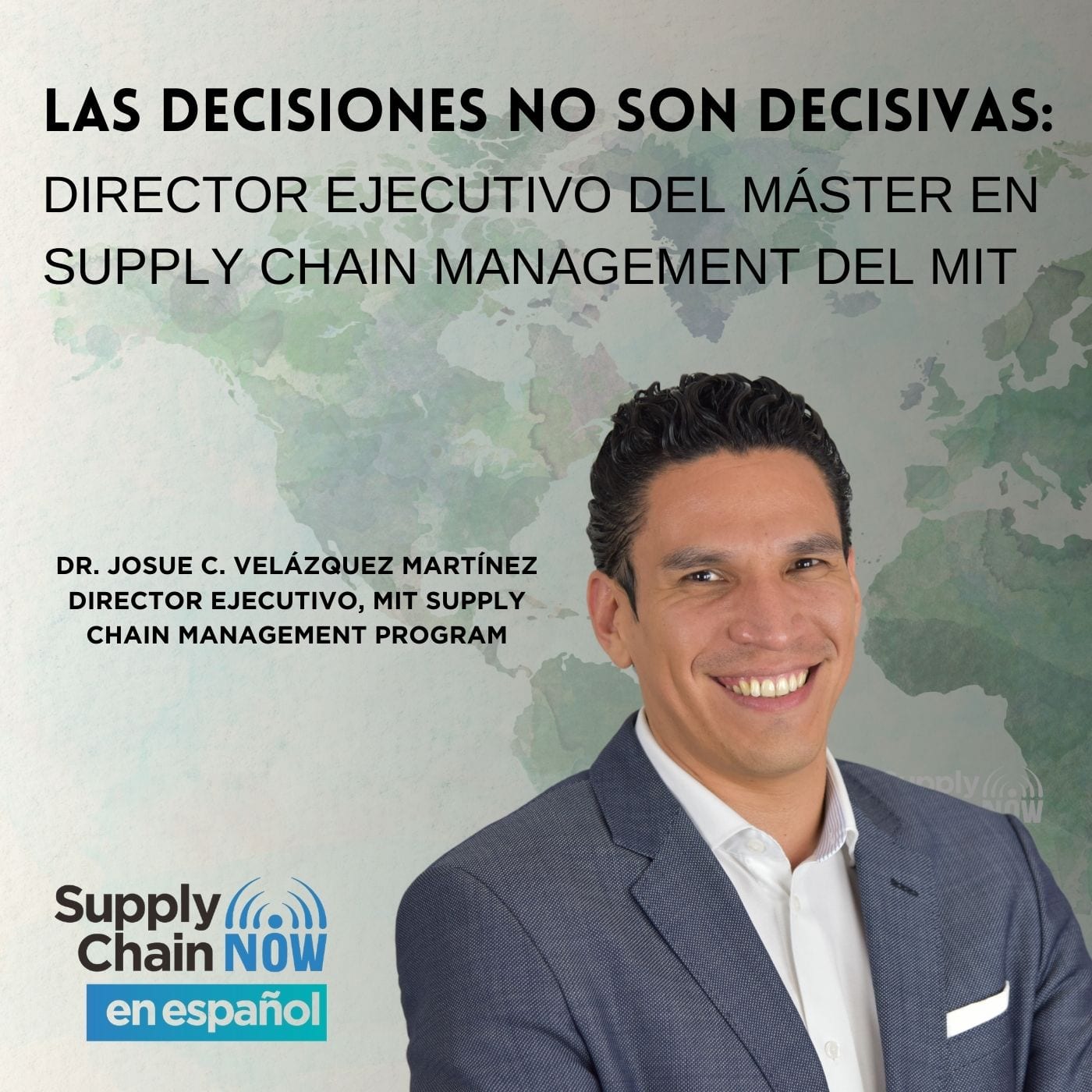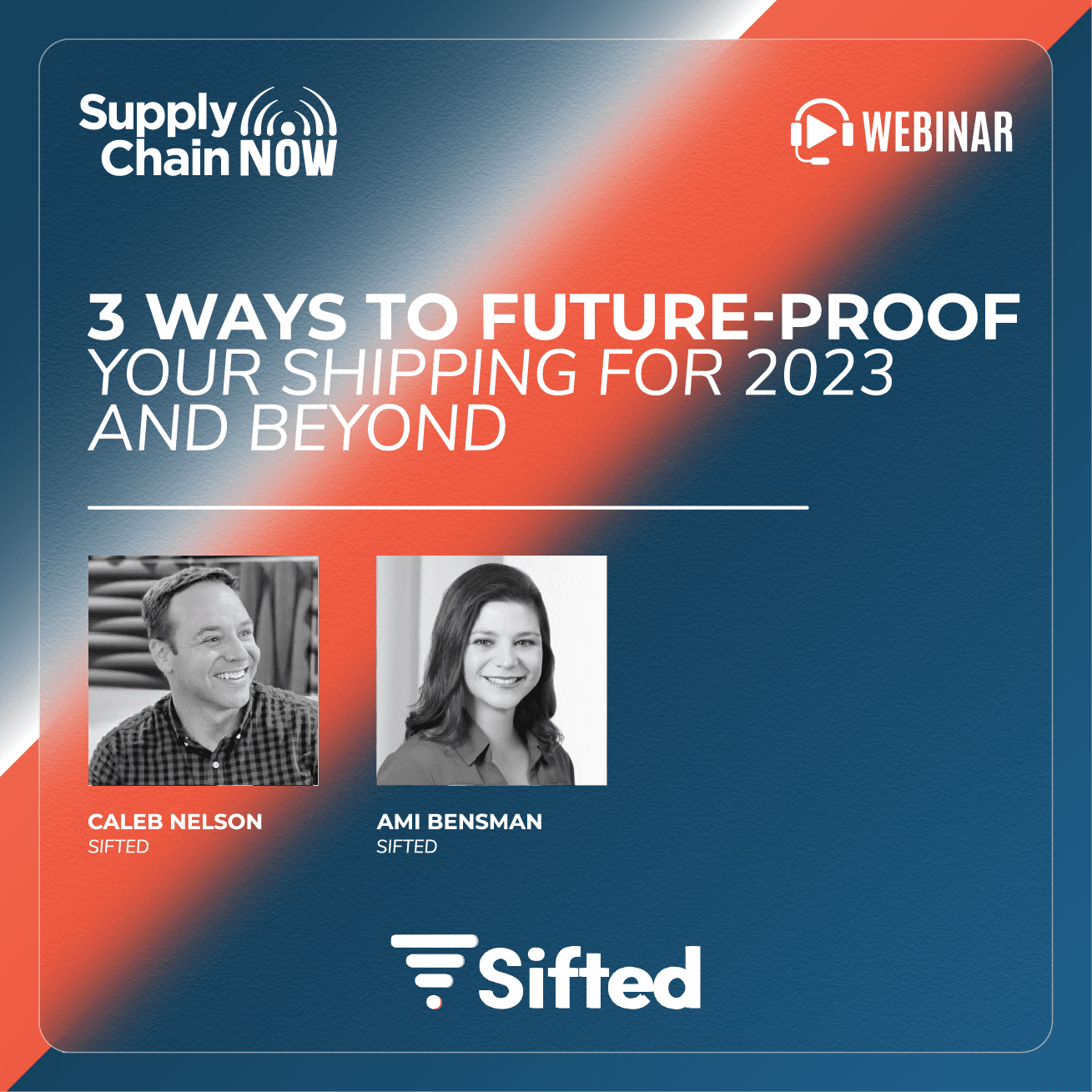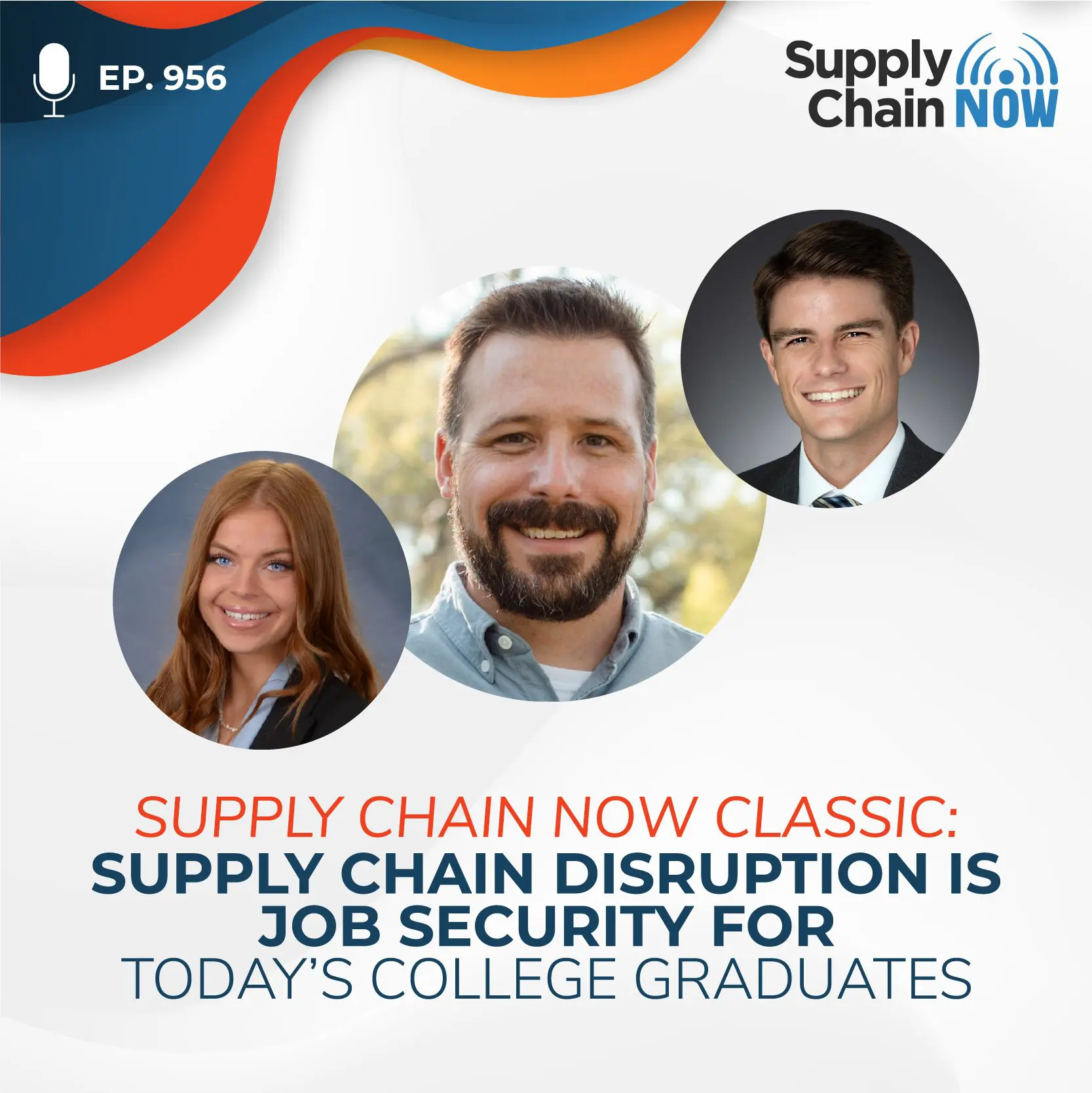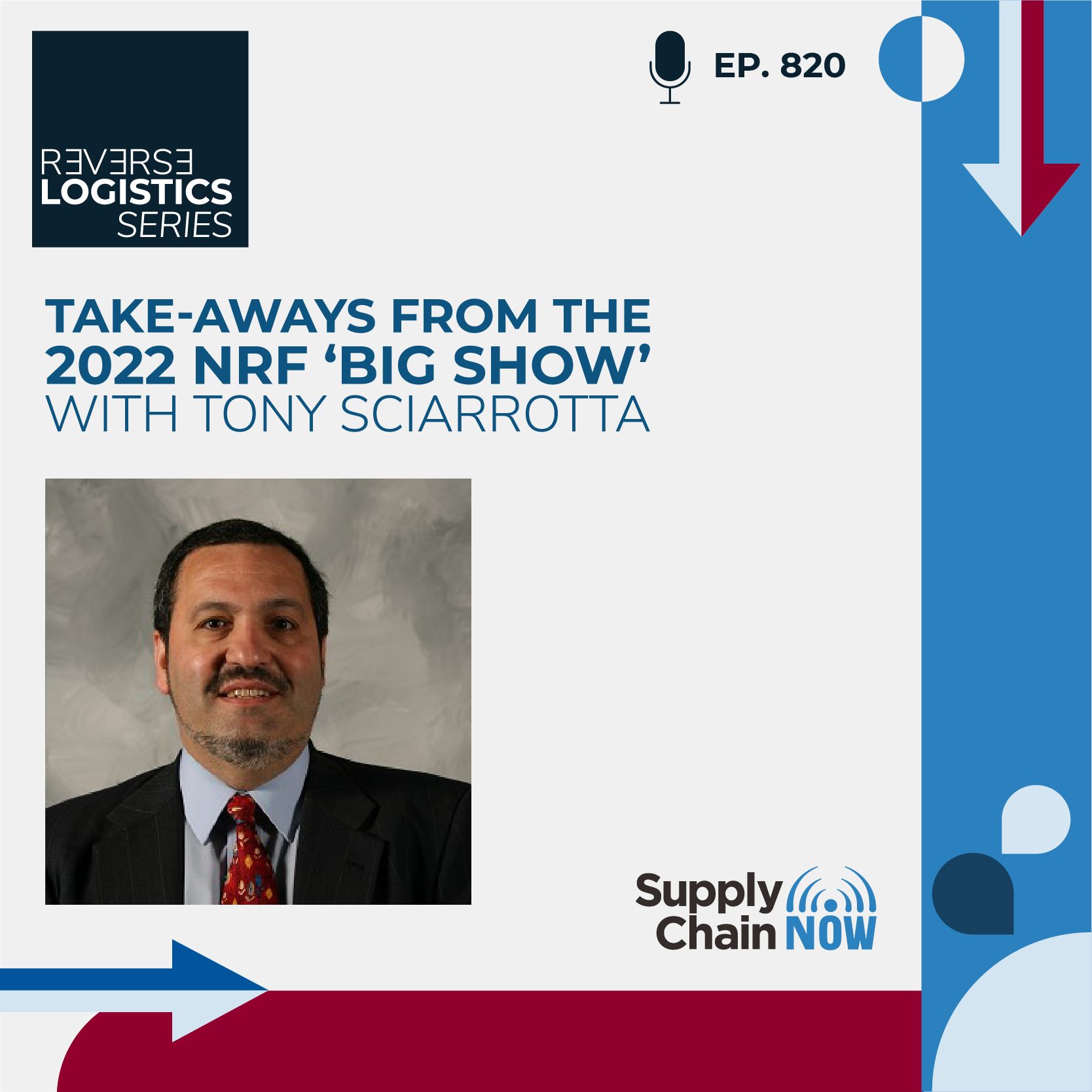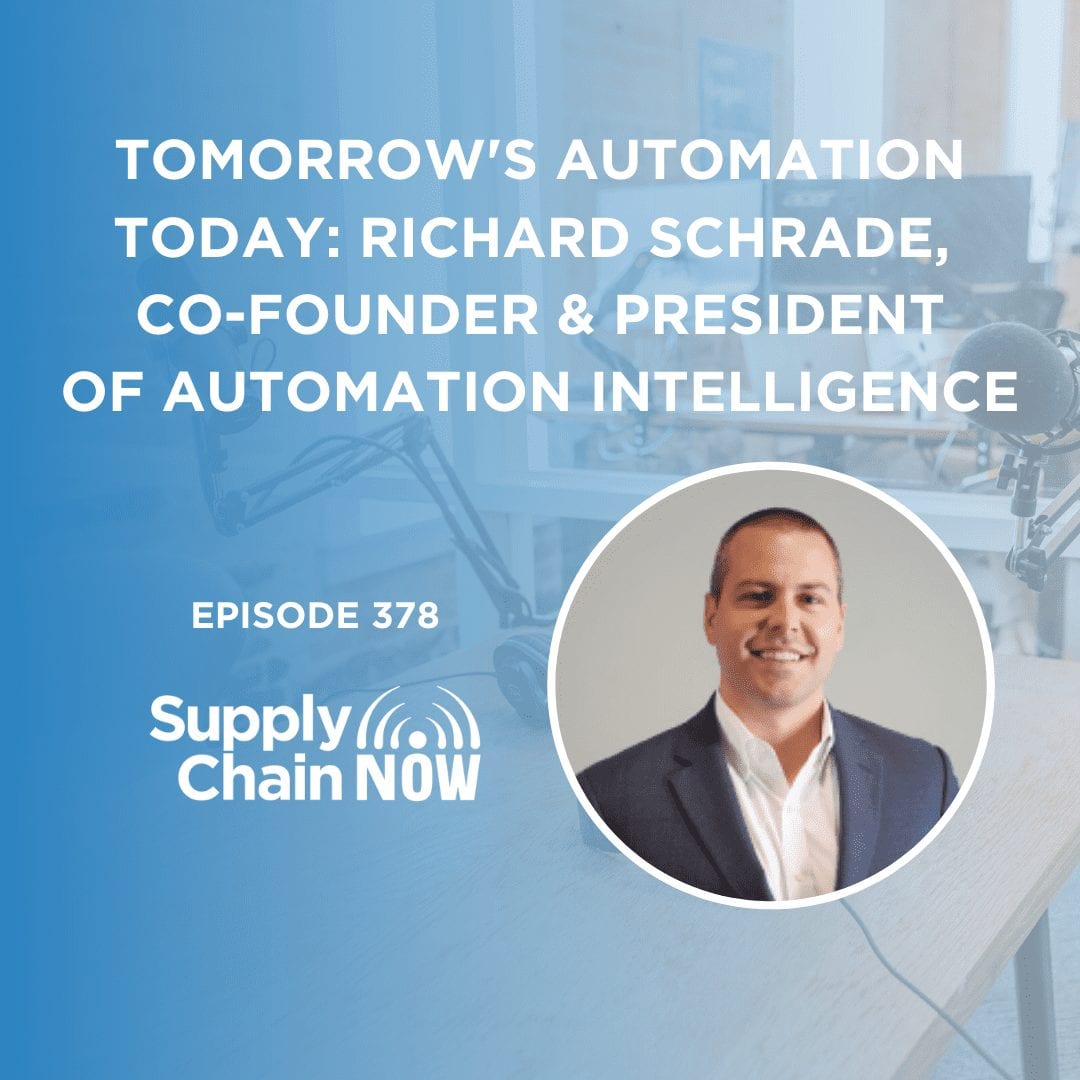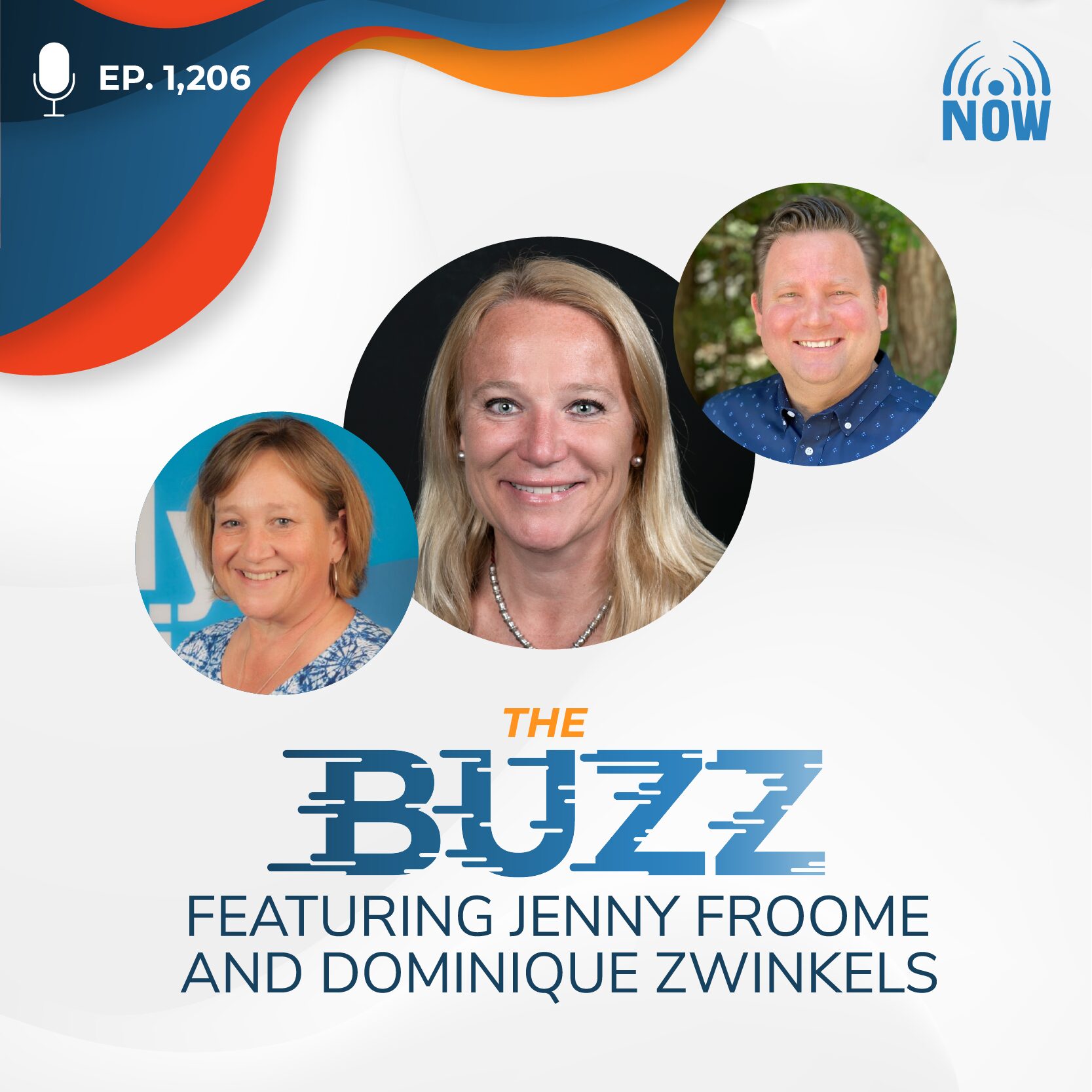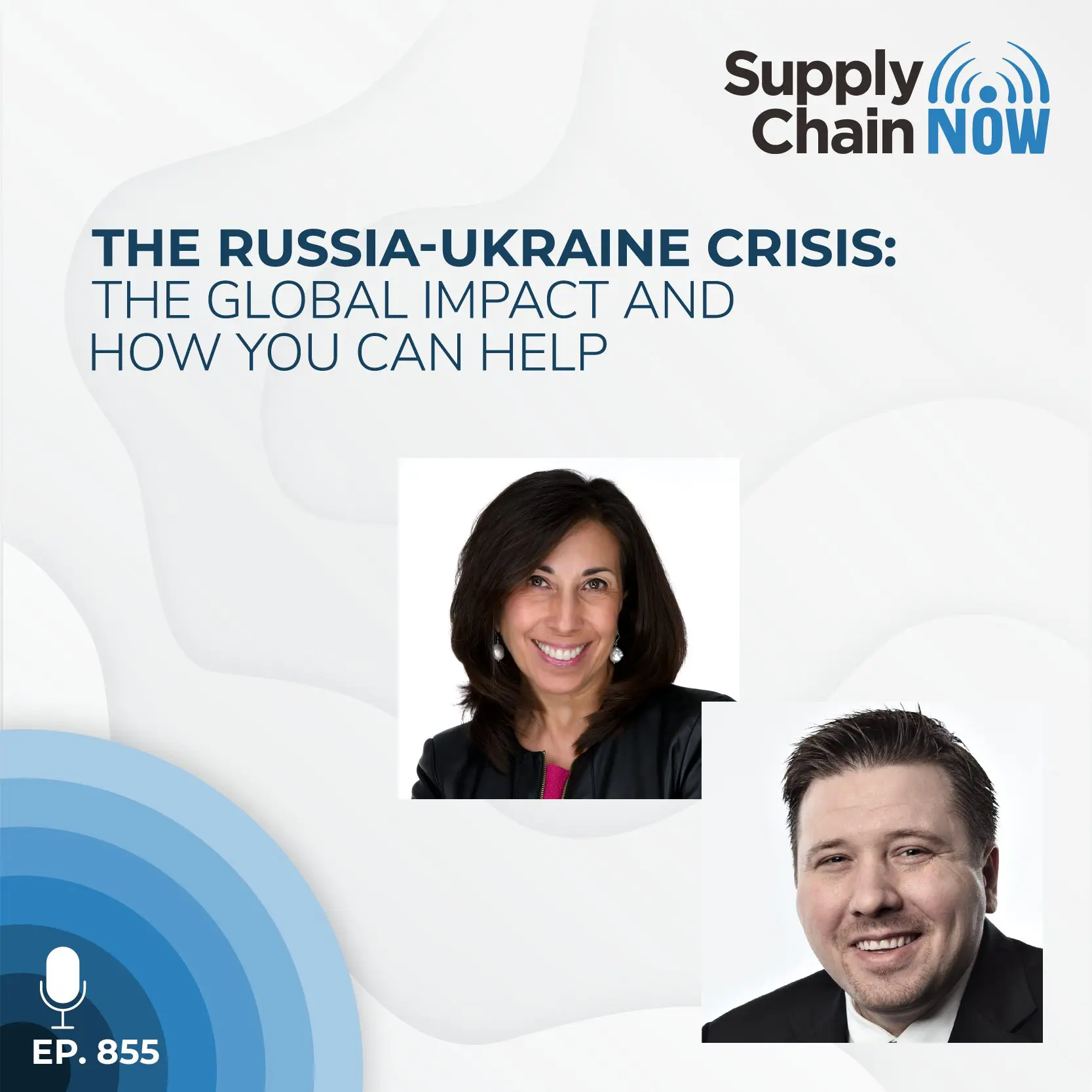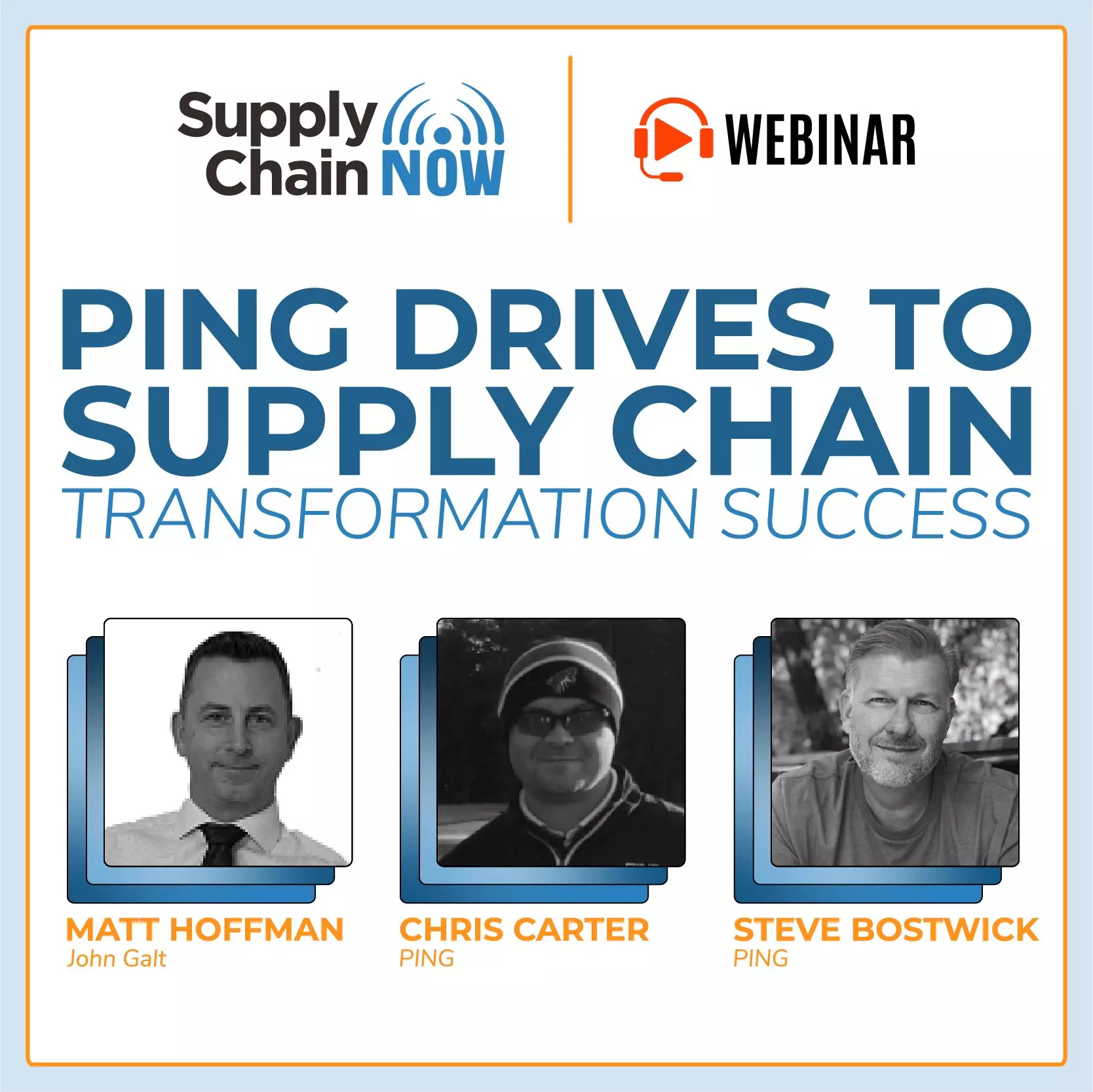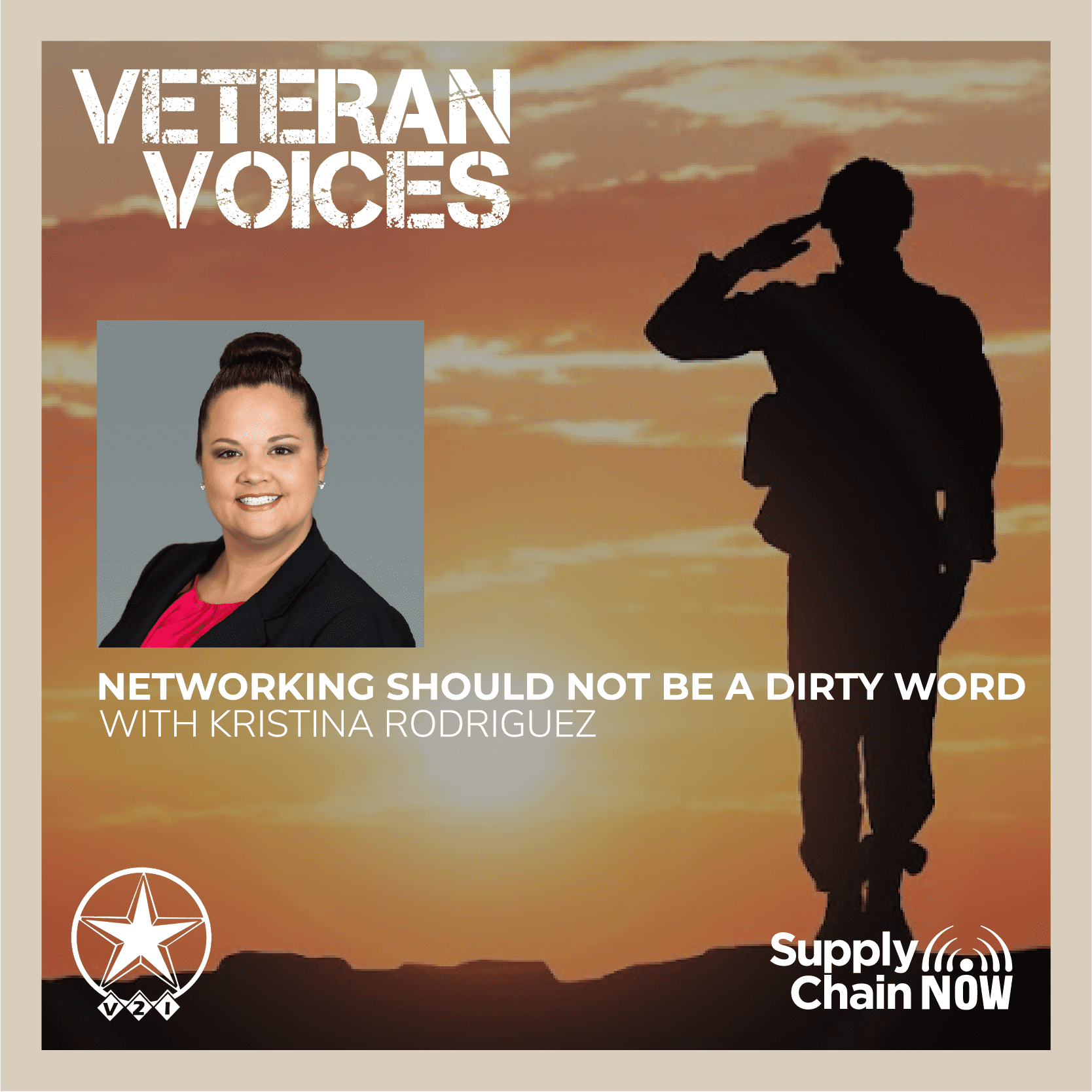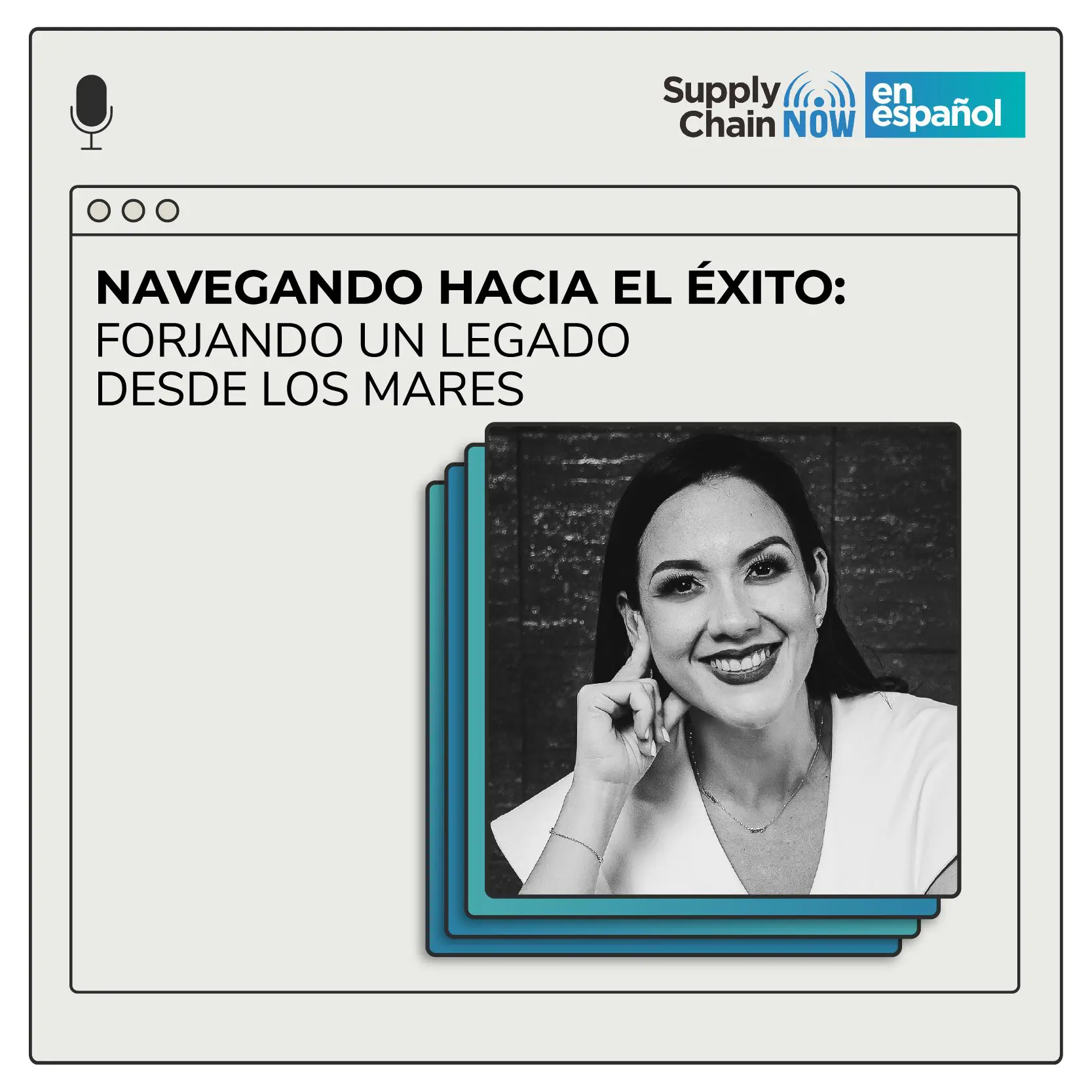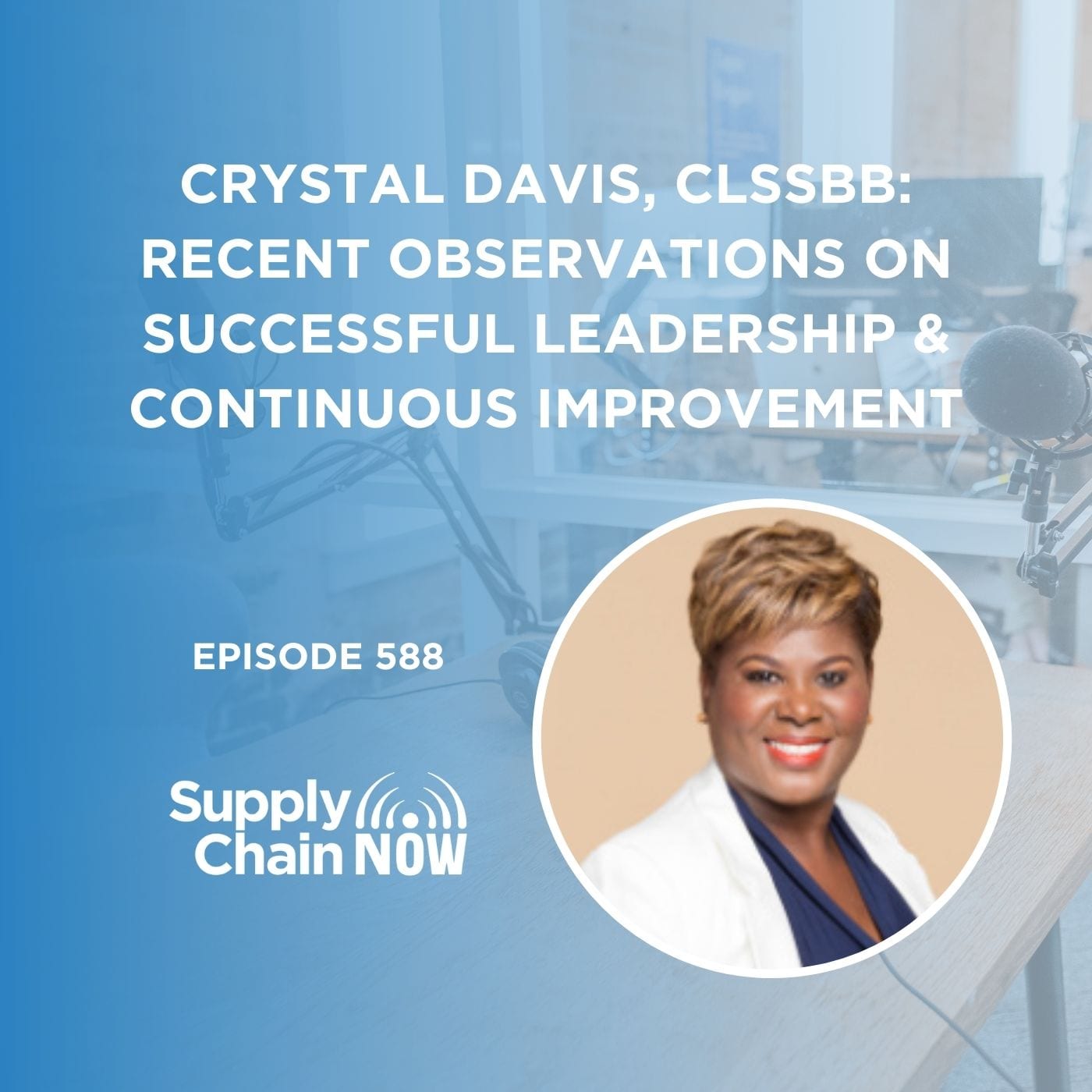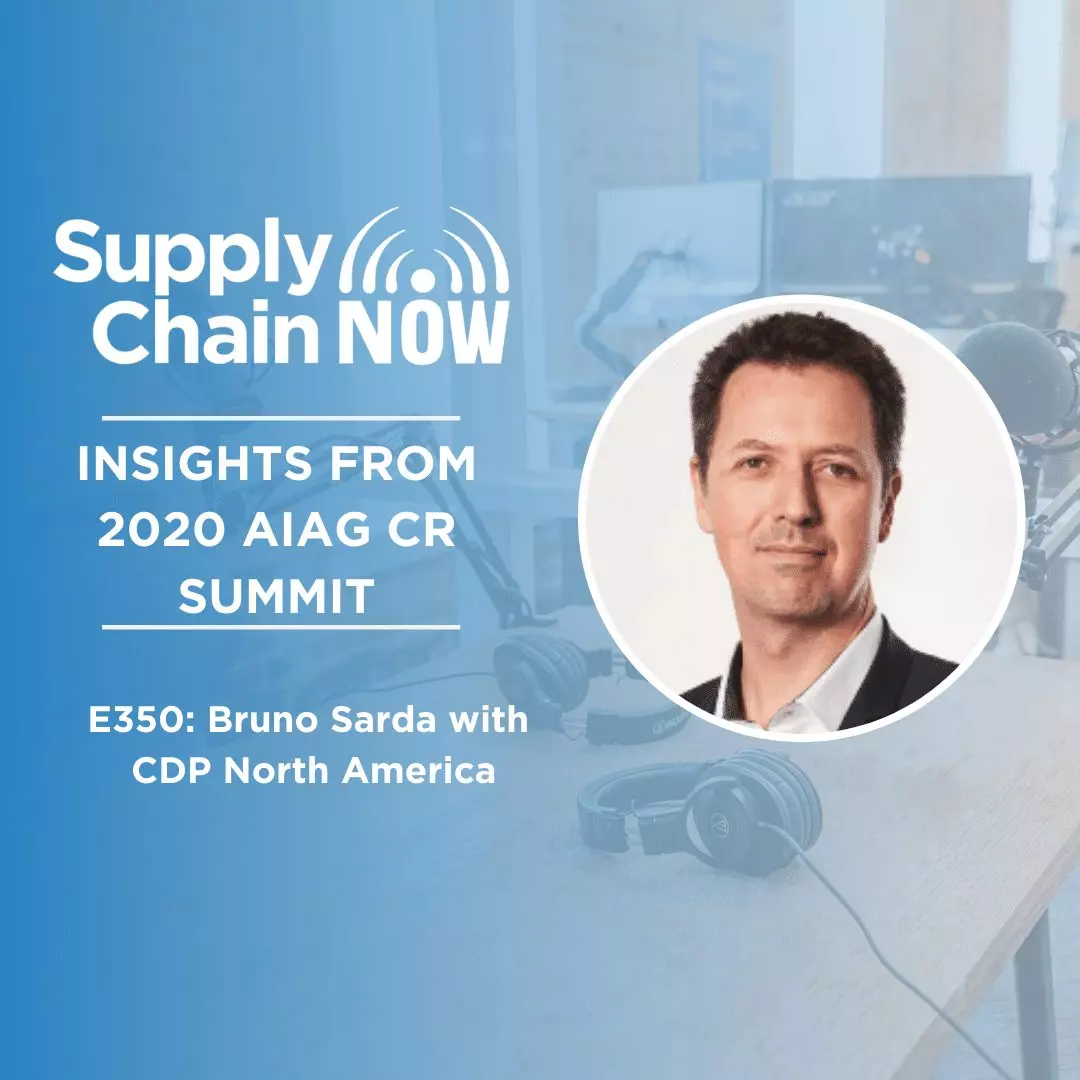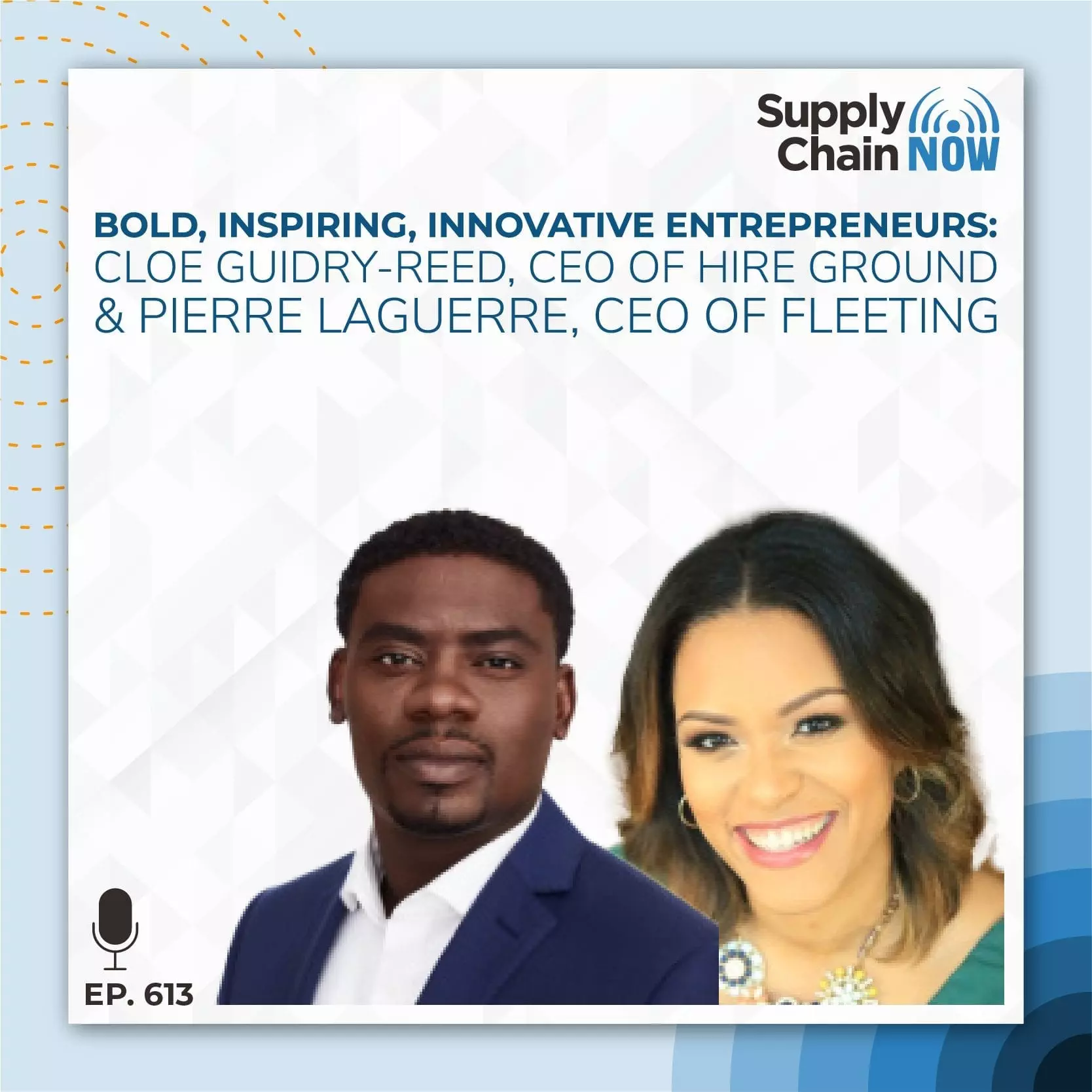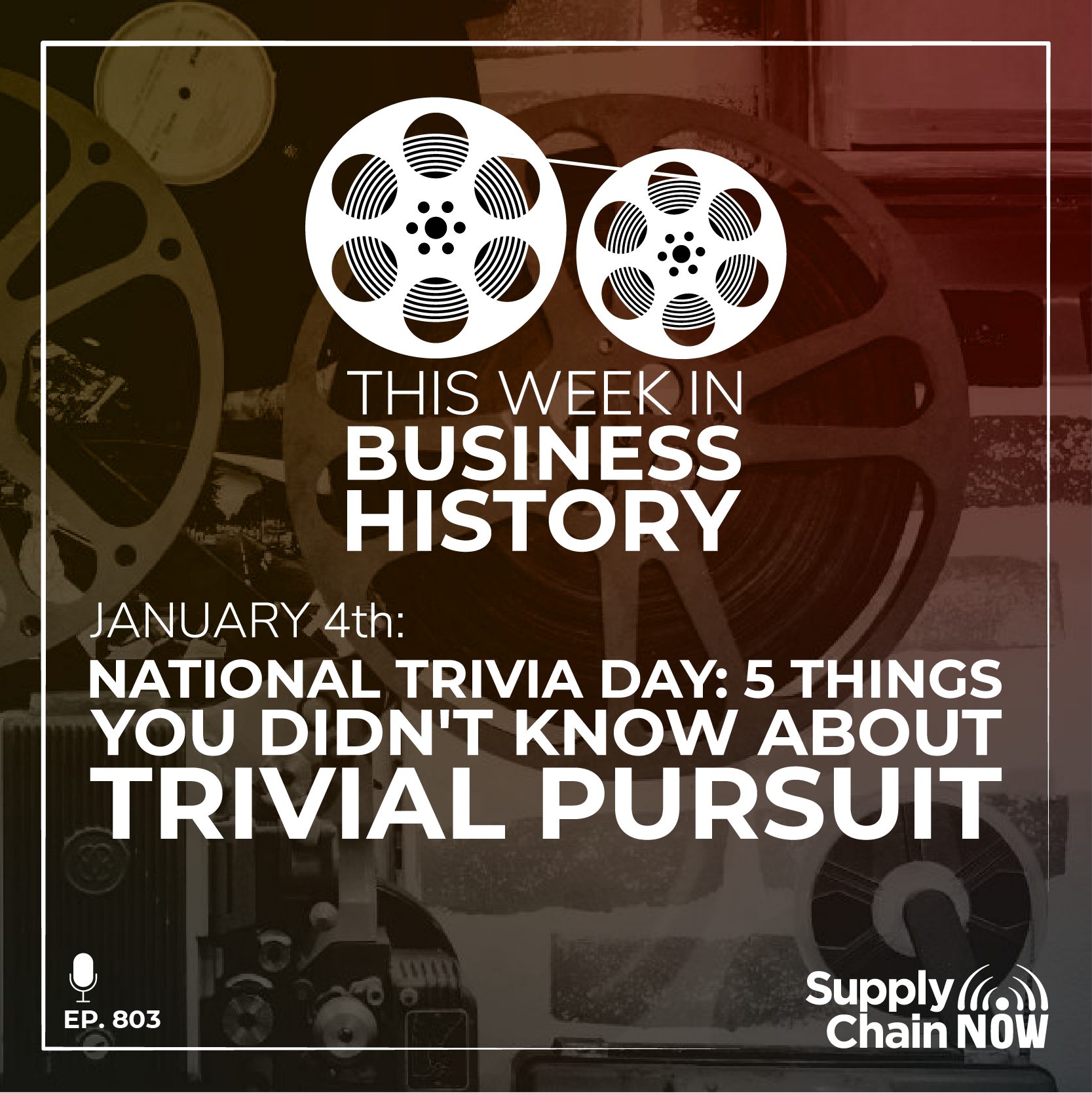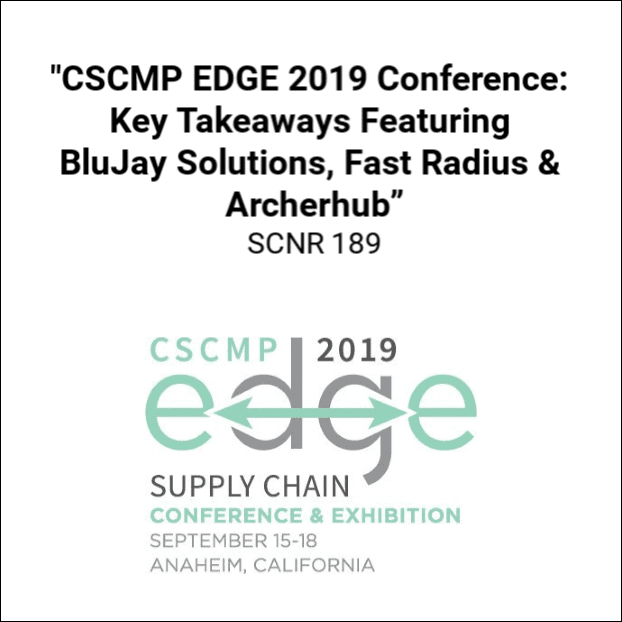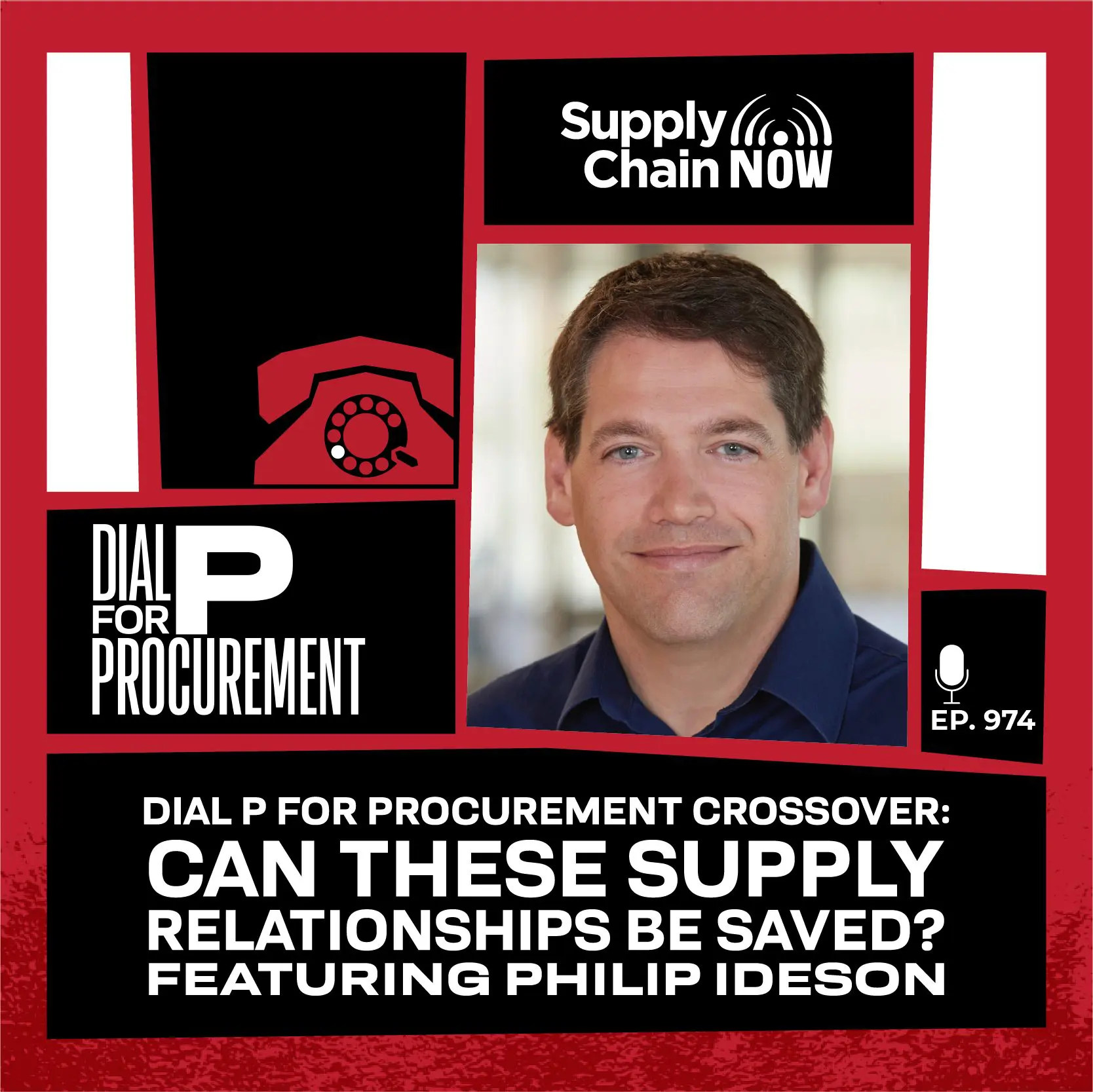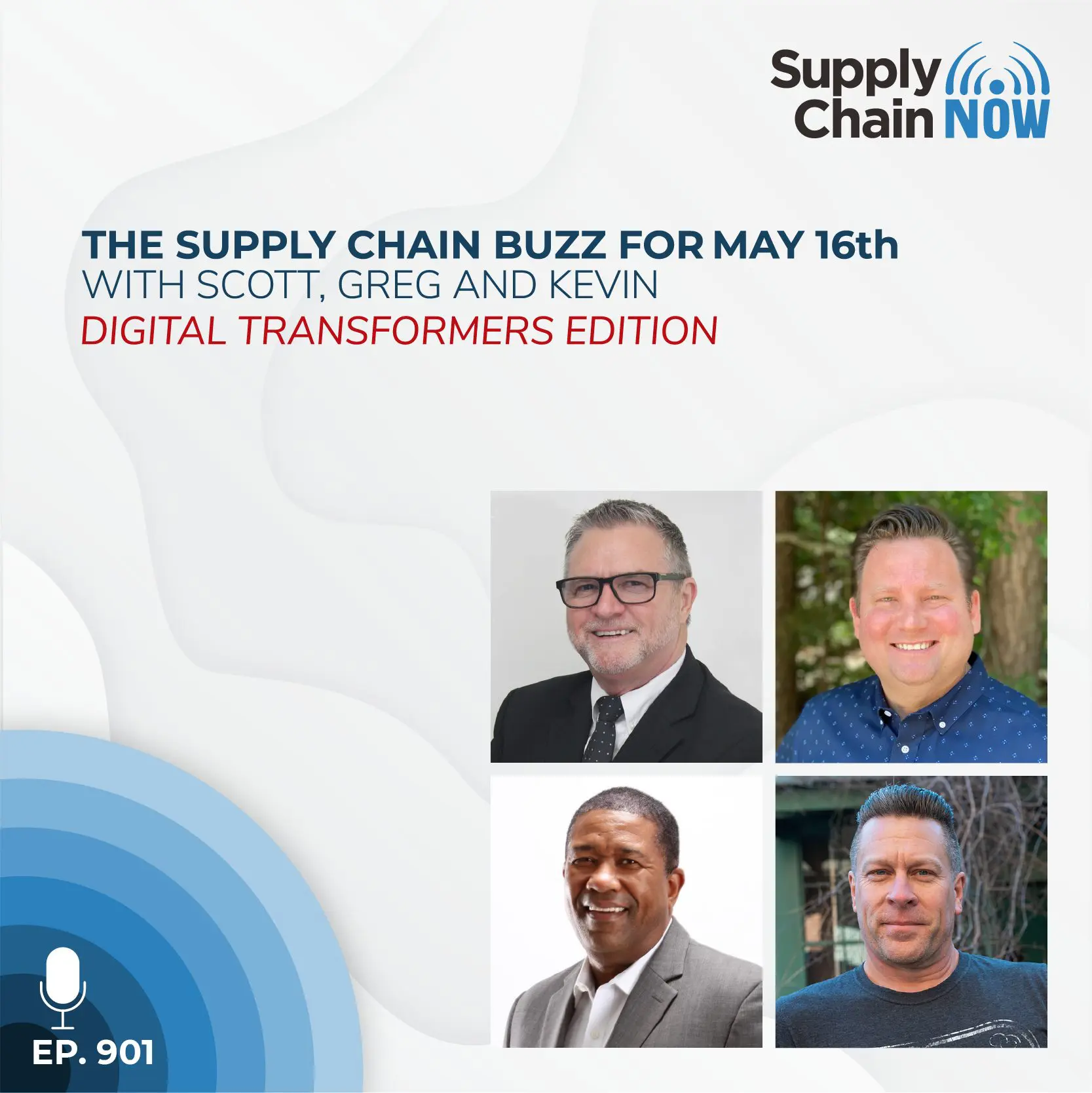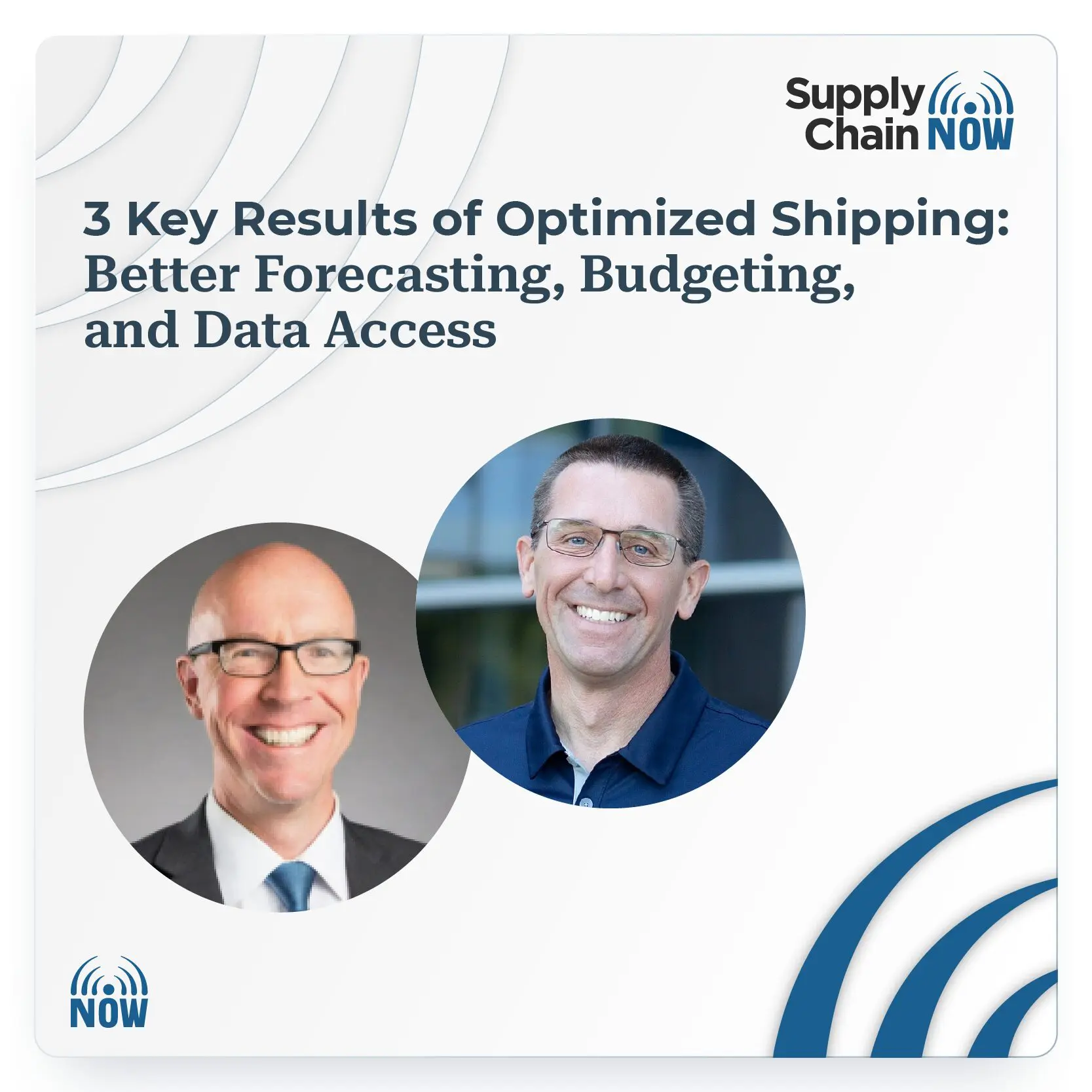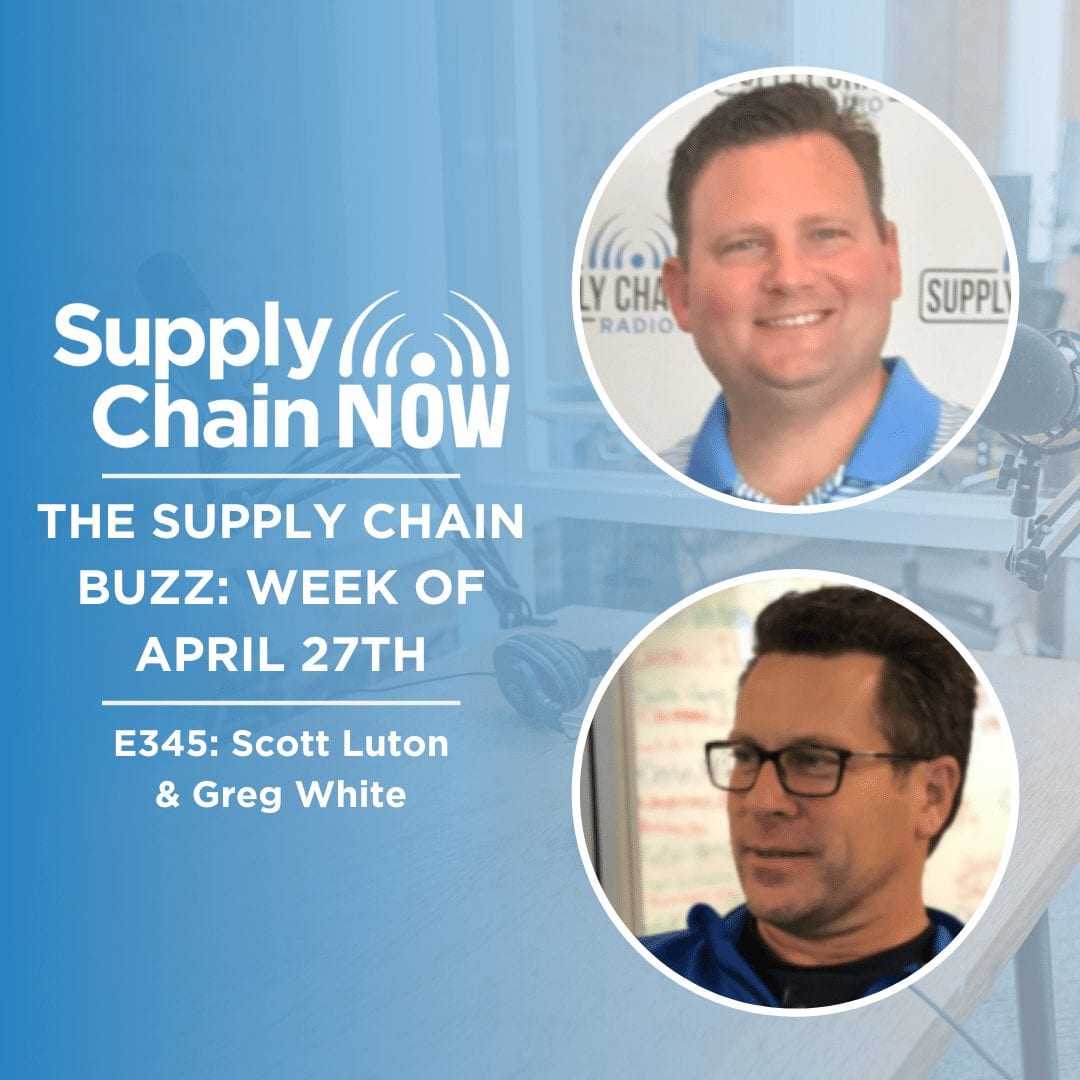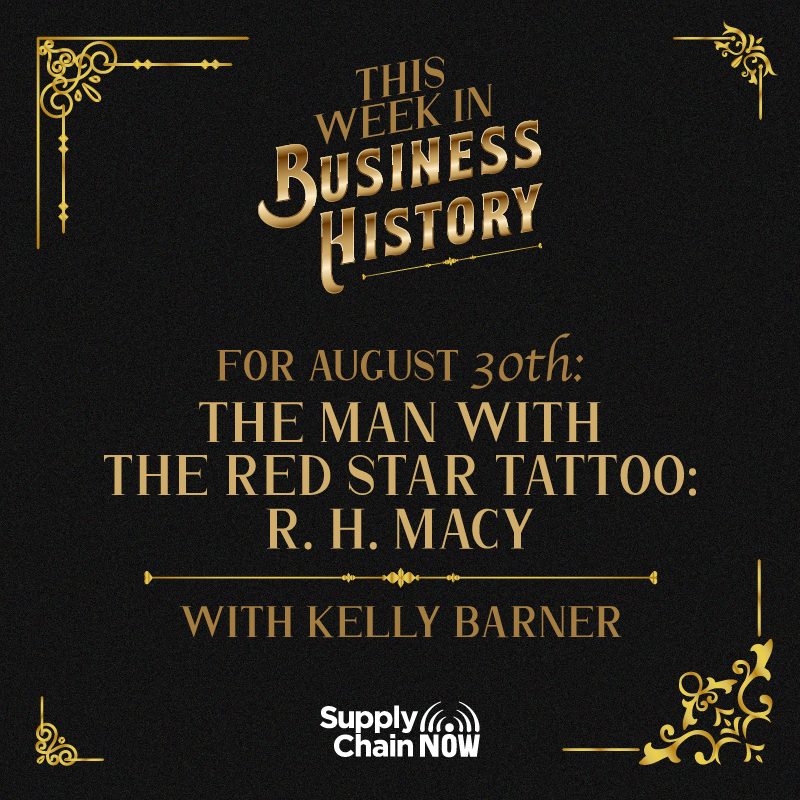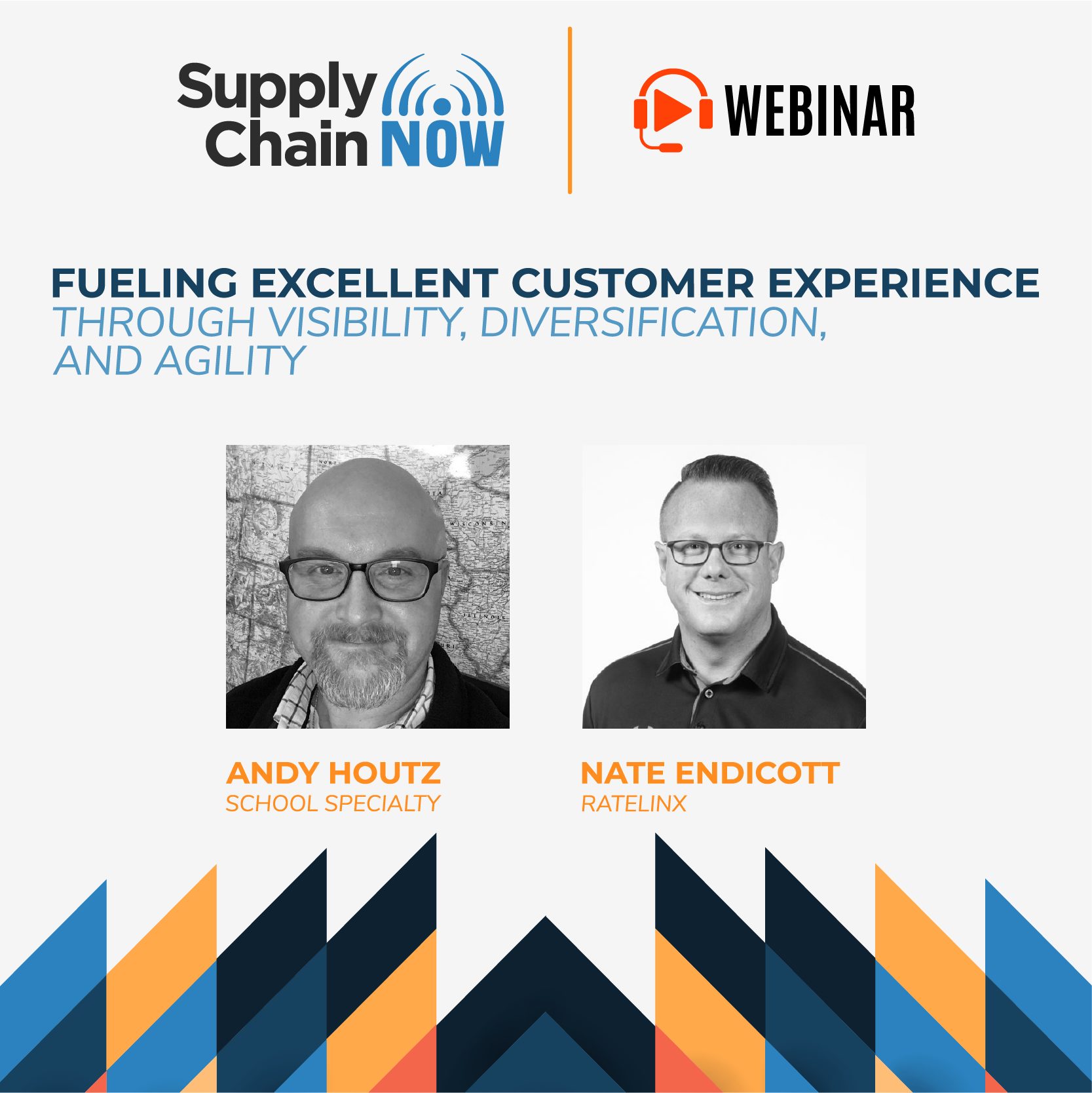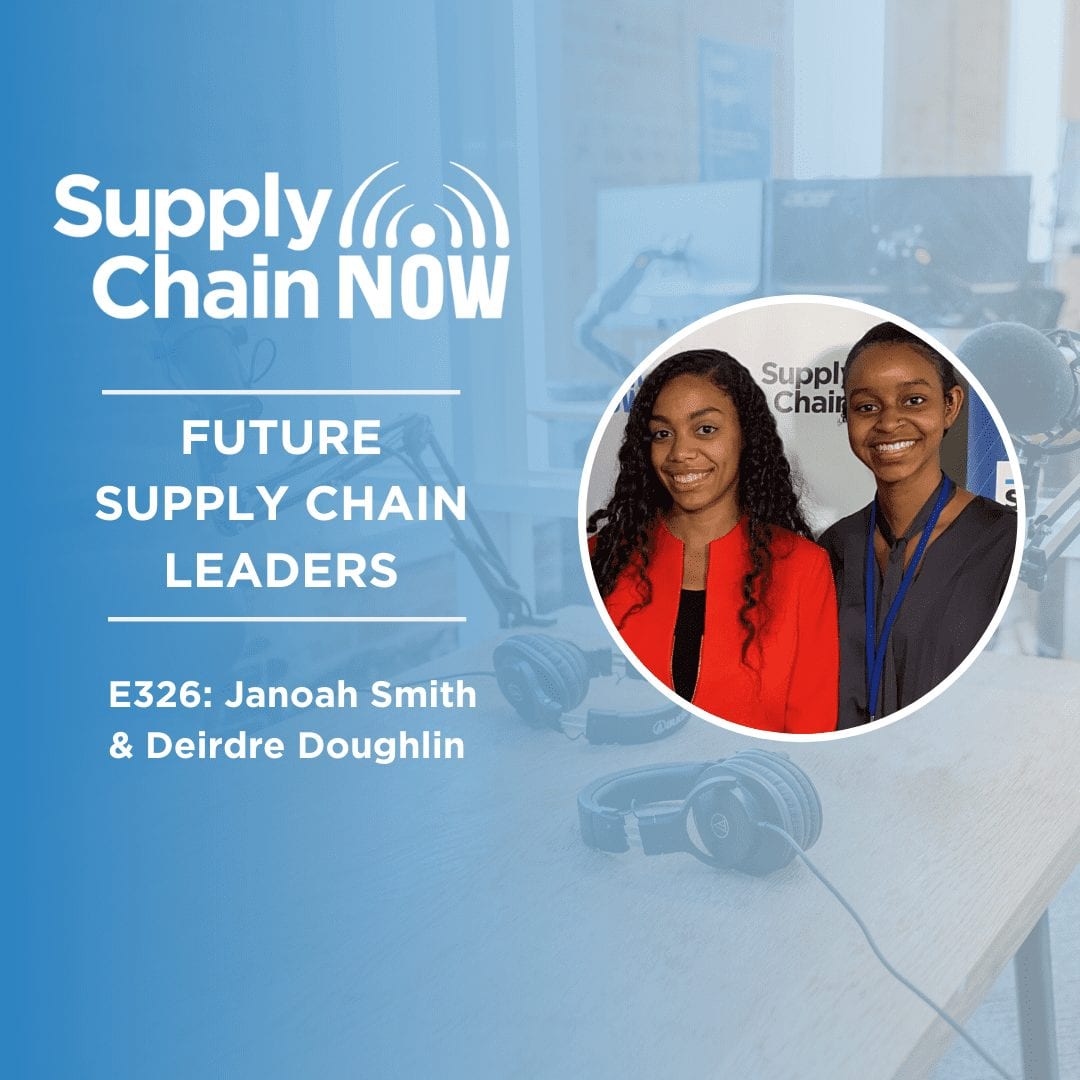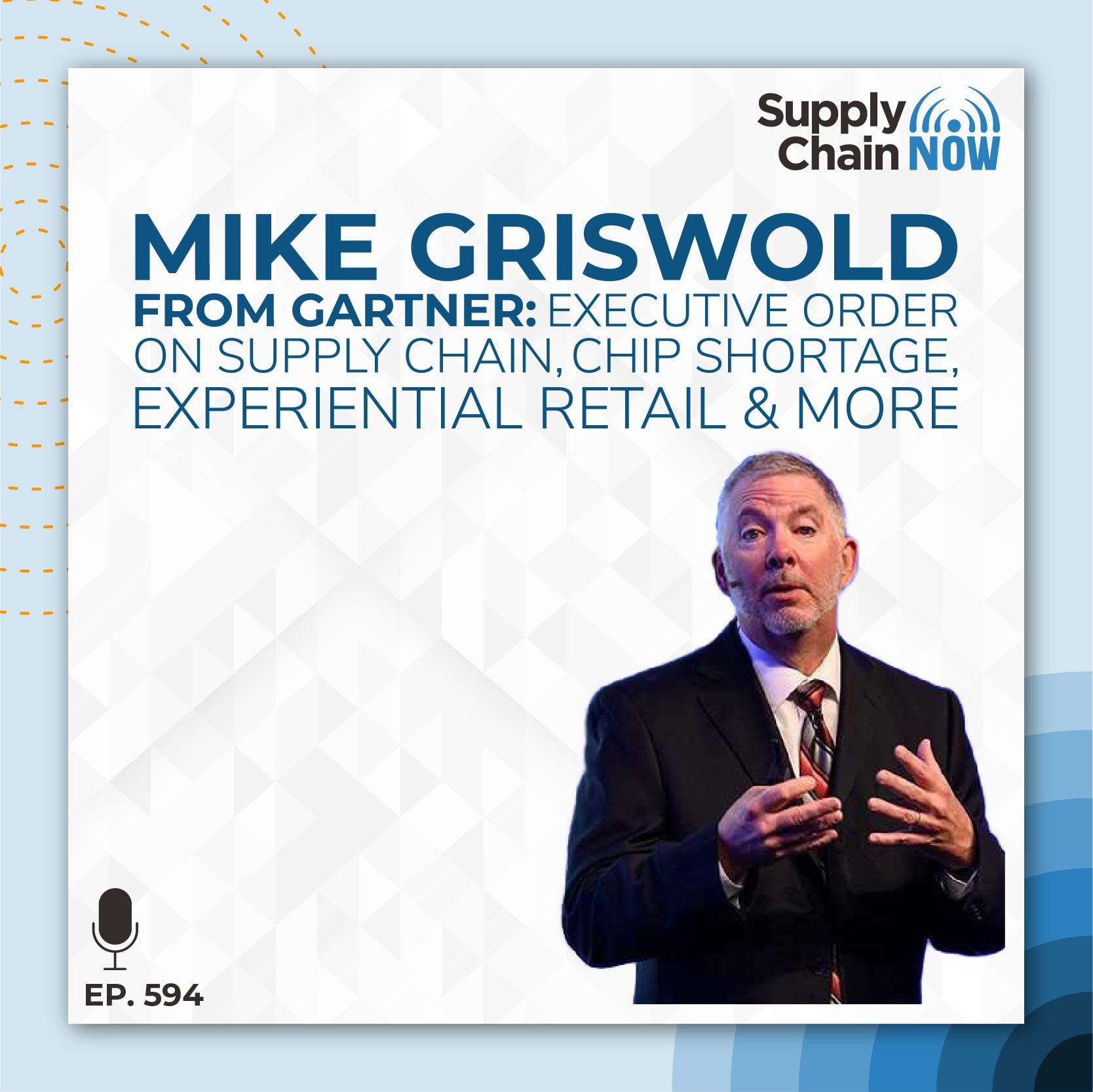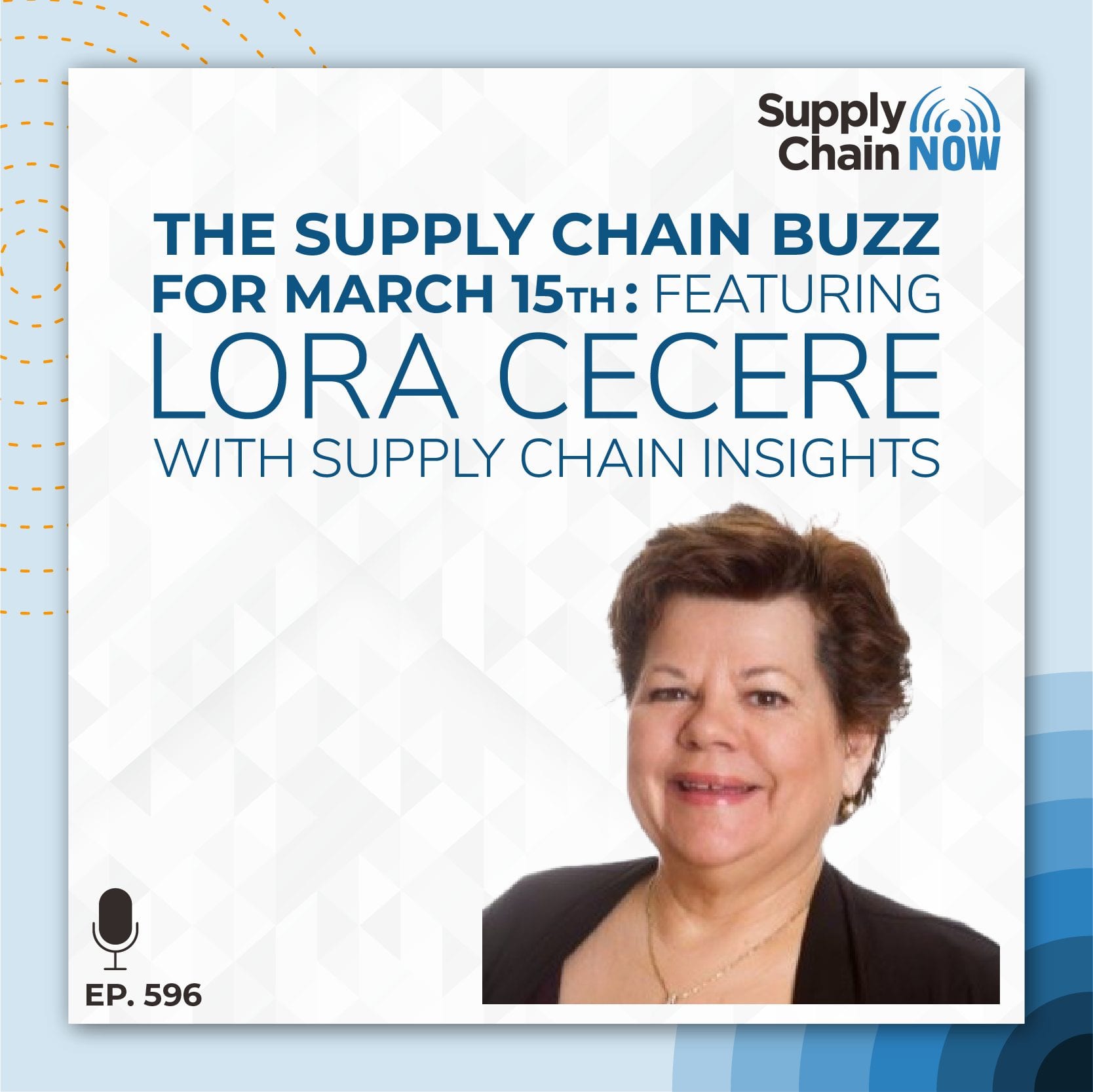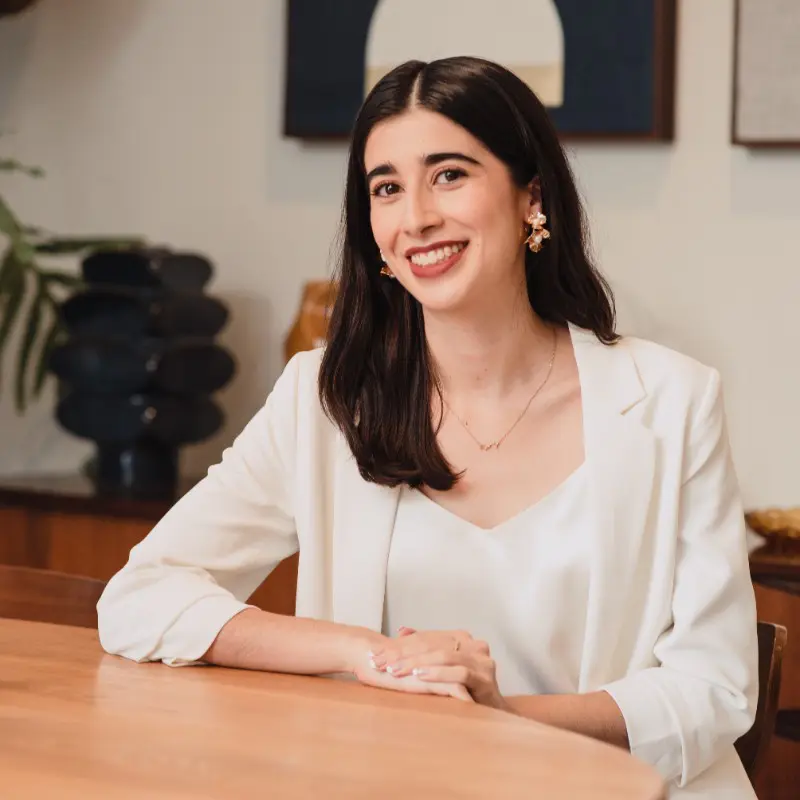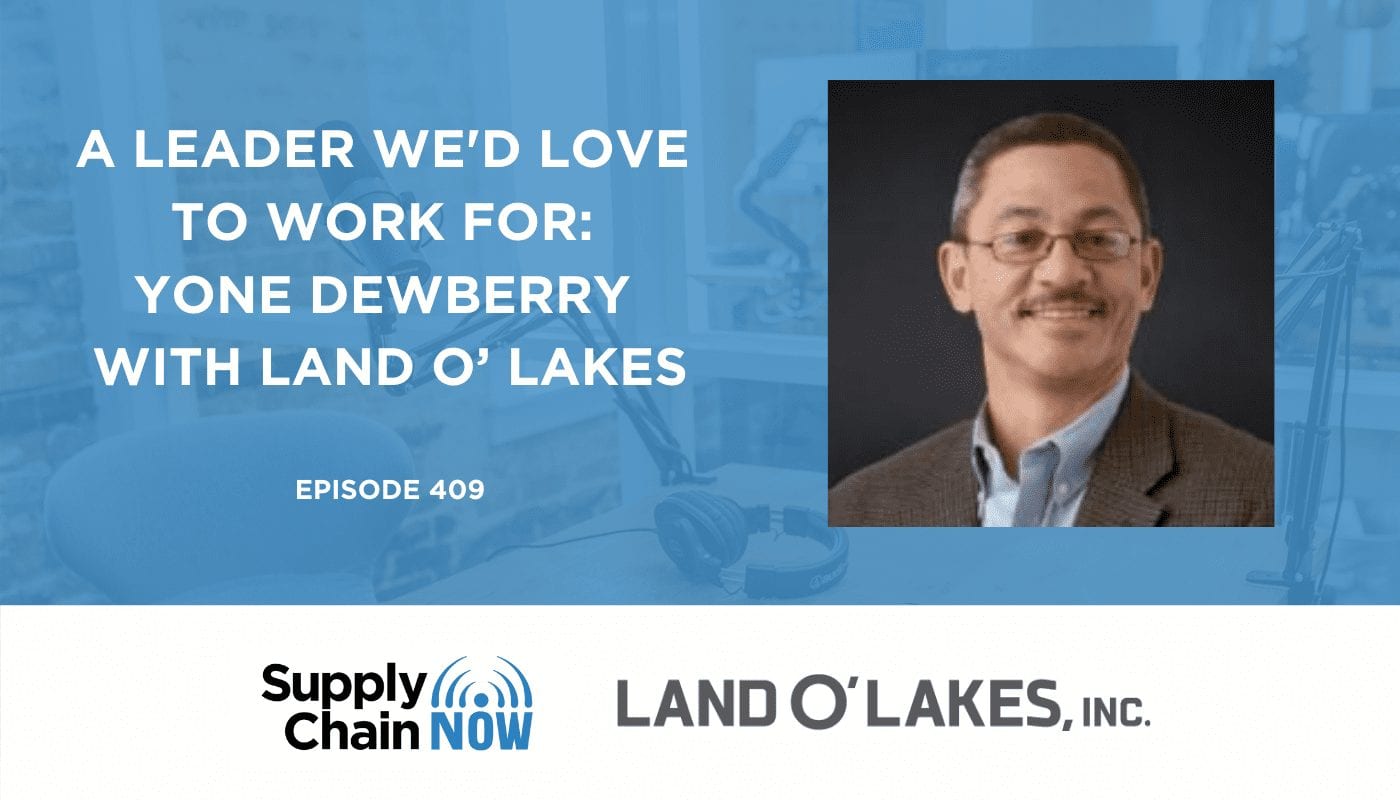
Episode Summary
“If you think about the overall supply chain, the entire ecosystem, where it breaks down is where we have to hand something off to another organization because we’re not as concerned with their efficiency. And I hate to say that, but it’s true.”
– Yone Dewberry, SVP and Chief Supply Chain Officer for Land O’Lakes, Inc
Land O’Lakes, Inc. is a member-owned agricultural cooperative based in the Minneapolis-St. Paul area. Being a co-op makes for some unique business dynamics, as Yone Dewberry explains in this interview. The culture requires that all decisions lead to the best possible outcome for all member owners, not just one person or function.
This community-mindedness is also coming in handy for the evolution of supply chain within the consumer products industry. On June 29, 2020, the Consumer Brands Association announced the formation of a taskforce for contactless delivery. It included 23 consumer packaged goods (CPG) companies, and Land O’Lakes is one of them.
In this conversation, Yone shares his point of view on the future of supply chain efficiency with Supply Chain Now Co-hosts Greg White and Scott Luton:
· Why it is absolutely critical to develop a standard-format bill of lading to be used by the entire industry
· How companies can work within their customer and supplier ecosystems to reduce costs by emphasizing the advantages of recyclable or reusable materials
· The importance of “decisive adaptability” for situations that require agility and resiliency
Episode Transcript
Intro – Amanda Luton (00:05):
It’s time for supply chain. Now broadcasting live from the supply chain capital of the country. Atlanta, Georgia heard around the world, supply chain. Now spotlights the best in all things, supply chain, the people, the technologies, the best practices and the critical issues of the day. And now here are your hosts.
Scott Luton (00:28):
Hey, good morning, Scott Luton and Greg white with you here on supply chain. Now, Greg, how are you doing? I’m doing great. We’ve been looking forward to this for a long time. I’m not going to give him up on, you know, but we’ve been looking forward to this for a long time. We’ve watched some of the discussions that anyway, let’s get to it. Come on, dive right in. So we’re continuing to, to our listeners, uh, welcome to today’s show. We’re continuing this, this recent trend of big Friday, right? Where we’re featuring the movers and shakers across global supply chain. We’ve got an outstanding speaker here today and our aim will be similar to what you always hear. We’re helping hope working hard to help you increase your supply chain, acute. Uh, Greg, on that note, we also quick programming, you know, we cover global supply chains, tough job to do so we publish our episodes Monday through Friday, and the folks want to want to know where to find that any advice.
Scott Luton (01:21):
Let me think about that, Scott, you know, they could go to supply chain now, radio.com or wherever they get their podcasts or, you know, my favorite YouTube that’s right. Well, uh, so join us subscribe. So you don’t miss a single thing. All right. So let’s dive right in with our featured guests here today on supply chain. Now it’s Jani, Dewberry senior vice president and chief supply chain officer would land O’Lakes Yana. Good morning. Good morning. How are you guys doing? Very good. Great to have you great to be here. We are doing well. You know, we were just talking pre-show, uh, we didn’t get a chance to rub elbows, but we were both at the same show. You were keynoting when EFT brought it’s a legit logistics and supply chain summit to Atlanta a few, uh, 18 months ago. Uh, I heard a lot about your keynote and they do, you do a lot of keynotes, but uh, it’s such an honor and a pleasure to finally have you here sharing your insights with us.
Scott Luton (02:13):
My pleasure to be here. I think I’m enjoying this. I agreed. Agreed. That’s a great way to end the week. It’s a Friday to Friday. I need to go out on a good note here. There we go. Okay. So we’ve got a little snapshot of who Yani Dewberry was in the pre show. And now we want to give our listeners a chance to do the same. So Johnny tell us, you know, where are you from? And give us an anecdote or two about your upbringing. I’m from a town about 25 miles outside of Philadelphia in New Jersey town called Willingboro. It is, uh, a what’s called a planned community. So it was a community of all, every third house was the exact same house kind of thing. Um, so sometimes you got lost on getting home. Cause every third house you had to figure out which house yours, right?
Yone Dewberry (03:00):
Wasn’t that easy sometimes. And it was right on the, I call it the border. People don’t believe this. When you say New Jersey, they think all these, all this
Scott Luton (03:09):
Industrial stuff, but it was right on the border
Yone Dewberry (03:12):
Suburban and rural. And so five miles East of where I grew up, there was a working dairy farm. The guy had it, it was called Sunnyside farms. It doesn’t exist anymore, but I had about 150 cows and I’d ride my bike out there. You know, every two to three weeks it had the best ice cream, the absolute best ice cream. I’m assuming they made it there, whether they did or didn’t, it was the best ice cream.
Scott Luton (03:40):
I mean, in those days that happened, right? I mean, I say those days, anytime prior to 2000, that could have still been happening right. Then making their own ice cream, the dairy that’s awesome.
Yone Dewberry (03:51):
So I brought out there and get ice cream and bring some milk back for the family and then I’d be set for, you know, the next couple of weeks until I went back out there.
Scott Luton (03:58):
So you started in supply chain early. That’s right. Delivering already. And you had it. Yeah. That was a pretty reasonable fee for freight. That’s pretty good. Wasn’t it
Yone Dewberry (04:08):
Exactly for free cause my parents had to pay for the ice cream. So
Scott Luton (04:11):
Yeah, there was a payment. Yeah. Yeah. That’s right. So Yani, we’re going to talk about supply chain and what some of the cool things you are doing over at land of lakes in a minute, but early in your, your life, your journey, what was a, you know, a key lesson learned or Eureka moment early in your journey
Yone Dewberry (04:30):
As I was growing up, um, like most, you know, boys at that age, at that time, you know, you played a bunch of sports, it’s kind of what you did when there was pop Warner or pal, whatever those things you did. But I was, when I was in elementary school, I was on a track team and I remember coming home one day and I was just not happy with the coach and I wasn’t having any fun. And I told my mom and dad, I just want to quit. I’m tired of this. I want to quit. And I was just going to have somewhere in my middle part of elementary school. I’m like, I just don’t want to do this anymore. And I remember them saying to me, two things, the first was you really can’t quit. You kind of made a commitment and you got to live up with your commitment.
Yone Dewberry (05:11):
You got teammates that are counting on you. You said you were going to do it. You really need to do this. And then the second thing they said, which was, has always stuck with me. And I actually talked to my son, I have two boys and I talked to them about it all the time. And that is, and I remember my dad saying this to me. He said, son, quitting is a habit that is so easy to start, but quitting is a habit that’s so hard to quit. So you need to just go finish the season out. And at the end of the season, you can decide what you want to do, but you made a commitment and you got to finish this. And I still remember that today. And, and I finished the season and I actually continued to run track. I ran track junior high school. I ran track in high school. I ran track in college. I actually let her three times in college. So it actually worked out for me.
Greg White (06:06):
That’s great. I would say so. That’s awesome. Where did you go to college
Yone Dewberry (06:09):
At the university of Pennsylvania, right, right in Philadelphia. So I kind of stayed close to home.
Greg White (06:14):
Wow. But you pen that’s about the best education you can get in America. That’s pretty impressive. I’d like to think so. Yeah. Well I’m well above my pay grade here, Scott, would you like to take it from here? Well, that actually we’re good. We’re gonna do the reverse. So Greg, I know we’re going to dive more into, on his professional journey at this point. Yeah. And I think that’s a really important message. I got that message. I think a lot of us probably got that message in youth and in a lot of different ways, but that is so valuable. And you don’t recognize those moments until you look back on them.
Yone Dewberry (06:49):
You’re absolutely right. But at the time it didn’t mean anything to me. Right. Except, Oh man, I really got to finish the season out. It’s just such a pain. Right. But now that you look back on it, it was like probably one of the best things that happened to me.
Greg White (07:00):
That was a formative moment. Yeah. Well, so all right. So I’m sure. And it looks like, I mean, like I said, we have viewed some of your presentations and things like that and you’re a finisher that’s for sure. So tell us a little bit about your professional journey. Maybe even start with college or, you know, wherever you feel like kind of led you to where you are today. Yeah.
Yone Dewberry (07:22):
Uh, I think that, um, you know, as I think about my professional journey, you look back on it all the ways, and there are lots of things that happened that made you who you are, but I can probably think of a couple of instances that nearly kind of helped shape who I am. Um, and one of those is what I would describe as non-work-related one is work related. So I’ll go quickly go through those. The first one is the non-work-related one. So I was working at a, down in Delaware at a production facility and I was asked to Delaware, it’s a fairly small state, as we all know. Right. And so when you work for, I was working for a general foods. When you work for a big company, you get asked to do a lot of things. And this was in the early nineties and I was asked to be part of the state of Delaware council on housing.
Yone Dewberry (08:13):
And this was an, it was a organization or as a part of a semi part of the government down in Delaware where they would help people get affordable housing. And, and over time I spent five years with this group. So the last year I was there, I was the chairperson for this group. And the way it worked was we were helping Dole out anywhere from four to $6 million to buy down the price of housing. So we could be more affordable to people who would not normally be able to afford housing. And so with four to $5 million, we usually ended up buying down about five units. So, you know, in the neighborhood of $10,000 a unit, but that might not seem a lot, but if you’re somebody who can’t, who’s just on the borderline, that’s a big deal. And we did things like transitional housing. We would do new construction that was rental.
Yone Dewberry (09:10):
We would do new construction. It was for somebody to buy. And the way it works is we would provide tax credits to the builder or the owner. And then that person could then sell those on the open market to get money that they needed. And so that’s how that whole thing work. And the thing that, what I learned there was it was a nine member council and it was people from, I call it all different walks of life. So we had, you know, during my time there, we had people that headed up nonprofits. We had people that have actually benefited from this kind of work. We had the largest residential builder in the state of Delaware was on this group. And you can imagine that they all have their different interests and they want it done in a different way. And what it helped me do was to understand how to get all these people who fundamentally all want the same thing. They want people to have affordable housing. How do I keep them aligned so that we can actually give some people money? And that was a great learning on how to collaborate, how to influence. And it was, you know, it, wasn’t always the easiest thing as you can imagine for me, that was one great learning that I got from my working for this organization.
Greg White (10:24):
Wow. That’s incredible. I mean, it sounds a lot like what we’re trying to do today on a much larger scale, really, right. It is aside from Yani, Dewberry for president, which now election committee for tell us, tell us about what you would call it. I guess you would say that was your nonwork. That was my non going to pivotal moment. Give us your work oriented kind of pivotal work.
Yone Dewberry (10:48):
It happened right. Or actually right around the same time. So, so as while I was working at this production facility, so this was a, at the time it was called the general foods production facility, which is now part of Kraft foods. It’s not part of something else, but, and it was the, and it might even still be, but it was one of the largest food production facilities in the United States and the million square foot under roof. We had 2000 employees, two different unions, 70 production lines, I mean, just on and on and on. So it was a large facility and we had, it was basically it’s. It was big enough to be almost its own company. When you think about it, we had our own HR staff, our own it staff. And you know, once again, it’s one of those things and you talked about it earlier.
Yone Dewberry (11:30):
Great. Sometimes you don’t realize what you learn until you leave there. And I think about the rest of my supply chain career, the five years I spent there, where I call it, the action really happens. Just taught me how important it was to understand, you know, we do a lot of cool stuff at headquarters. Don’t get me wrong, but where it really happens at the planet. And one of the things I tell young folks that are in school or early part of their careers, that if you’re going to be in the supply chain, you need to go work at a plant or a warehouse where stuff really happens for at least a couple of years is what I tell him. Amen. Because you guys know this with all the interviews you do, that’s where it happens. And that’s where you really learn. I mean, you know, we might generate purchase orders up at our headquarters and the trucks might show up at the plant, but the person at the plant, they gotta deal with it once it shows up. And if it’s late, they have to deal with that. And if it’s early, they have to deal with that. And so you have to really understand how important those decisions you make at a headquarters location are
Greg White (12:37):
I’ve always believed in. This is probably from my parents. And one of my big influencers, you have to be on the front line before you learn how to run the back office. And that is a re I think that’s a really important recognition for people. You don’t have to spend your life there. And sometimes it’s honestly, I was in retail and at first I didn’t enjoy it. And I didn’t, didn’t even like the idea of paying my dues. And I bet a lot of people are the same way, but it is so worth it, it is just like your parents making you stay on that track team. It is so worth it. Exactly what you’re communicating there. So that’s powerful stuff. So a couple of things, one, can you share with us some of the brands from general at the time you were there? So people have a little bit of a frame of reference, jello, jello, jello
Yone Dewberry (13:26):
Stove, top stuffing, minute rice, rice, Baker’s chocolate Baker’s coconut. So those were the major ones that were there.
Greg White (13:34):
So everything college students eat, you got it. That’s exactly right to be hungry right now. You had me a stove top stuffing. And then tell us a little bit about how you got to land the lakes and, and you know what you’re doing there now. And, and that sort of thing. Cause I was fascinated by your discussion at the EFT conference, but I want to share that with our audience.
Yone Dewberry (13:57):
So how, how they got here was it’s a prior to being Atlanta lakes, I spent 10 years in consulting the last five or which I traveled overseas extensively. You know, when I first started traveling overseas extendedly I had one son. Um, and then that worked out. Okay. Um, but when I got towards the latter part of that, part of my journey, we had our second son, my wife and I had our second son and we had a discussion and it was, it was time for me to probably spend some more time with my kids and less time on an airplane. One of those other pivotal moments. What’s exactly right. That’s exactly right. And when, when the, uh, when the spouse says it’s time, it’s probably time. Right. So, you know, I did the typical networking that most people do to try to determine what’s available through, through my network.
Yone Dewberry (14:45):
I found that, um, land O’Lakes had a position open, um, for a director of planning and one, the things that I knew that I wanted, I wanted it to be in food. I mean, I’ve always wanted to be in food. And I think it’s a, it’s a great place to be. So land O’Lakes to me, I thought was a good opportunity. And, um, I found out that the hiring vice president at the time was a person that I used to work with at craft. I got ahold of them and, um, it all ended up working out and I ended up at Lana lakes because of that. Um, so, you know, it was partly network partying, being, wanting to be in food. And partly as a lot of this, as we all know, it’s, you know, part of it is that you knew someone, no shame in that.
Greg White (15:29):
One of the things we try to encourage, a lot of the young people that we speak with is there’s this old saying, it’s not what, you know, it’s who, you know, and I would argue, it’s not even that it’s who knows you, who knows you is so important because they know that you’ll do a good job and that’s how you get jobs taken away so much risk by knowing that person already. So, so, okay. I have a curiosity question then let’s dig a little bit deeper and that is when did you get your VP and chief supply chain officer around, what year did you get the chief supply chain officer title? Or did you come into it? That was three years ago. Okay. And where you just VP prior to that?
Yone Dewberry (16:11):
Yes, I was, I was, I was just, I was just seeing SVP prior to that.
Greg White (16:16):
Yeah. Well, I’m curious, I’m just curious because this recognition that the supply chain is a chief position is relatively new, right. I’m, I’m, I’m just kind of doing an informal investigation of when companies kind of recognized that.
Yone Dewberry (16:31):
So Lana lakes had theirs about seven years ago.
Greg White (16:36):
Okay. Wow. That’s pretty impressive though. They had the title. Yes. Okay. So you are one of the first companies I would imagine elevate. Yeah. That’s yeah, that’s probably right. You probably elevated, you were elevated into that title shot. They didn’t add it to your role. Okay. Nope. Very cool. Yep. All right. So we love talking about, so we talked with Sandra McQuillan from mandolins and recently with Rick McDonald from Clorox. If you’ve followed that at all, you probably know we’re pretty big fans of corporate culture and how leaders foster a corporate culture. So tell us a little bit about what differentiates the culture in your organization, your direct area of organization or in the company or both.
Yone Dewberry (17:23):
Yeah, I think the, you know, in, in, I think in my organization, as well as in the company, I think they’re very similar and I think that’s why, you know, part of it is that I love being there because the culture is very similar and that is it’s this whole culture of family. And I know companies say that, but not work co-op. And that means something a lot different than being a regular and publicly traded or privately held company. I’ve worked at both. And you know, what it means is that as a co-op everybody’s in it together and they really are in it together and that we all really want the same thing that it doesn’t mean. I remind people, you know, either when they’re coming into the company or even, you know, with my peers at the organization, it doesn’t mean we’re not going to disagree because we are going to disagree. Right. You disagree with your family all the time. I know I do. I don’t know about you guys, but I definitely do.
Scott Luton (18:15):
I knew for a short amount of time. And then I,
Yone Dewberry (18:21):
And, and so we’re going to disagree and we’re not always gonna like each other for what we got to say, but at the end of the day, as I like to describe it at the end of the day, when we sit at the dinner table, we all have each other’s backs and we all want the same thing. And that’s really the culture of Amanda lights is that it’s a call to the says, we want what’s best. What’s in the best interest of our member owners. That’s what everyone wants. We may disagree on how we do that, what that really means, but we all want it. And so to me, it’s very similar to when I sat on that council for housing. So you had all these people that wanted the same thing. And so how do you get them to work together? And it’s really the same thing within my group, right? So I have a bunch of functional leads. Vice-president directors, they all want the same thing, but they wanted it a different way sometimes. And so how do we make the best decision for everyone, not for one person. And that’s the culture.
Scott Luton (19:22):
So is, is that something that you have developed personally by experience or through reading or people who’ve shaped you or, and I’m sure in conjunction with the culture at land, O’Lakes tell us a little bit about how you came to that
Yone Dewberry (19:38):
Philosophy, come to that philosophy, you know, based on, you know, part of it is the thing like the council and housing I was on, which really helps you shape that. Part of it is, you know, I grew up in a family where my mother is Japanese and that’s a very big in Asian culture. That’s a very big thing. The whole idea of family is the most important thing. Know we’re always going to do what’s best for the family. For me, it’s, it’s, it’s an internal culture thing that I’ve just grown up with over time.
Scott Luton (20:08):
We’re earlier, it’s this, I wish we had five hours with you, uh, Yani, uh, got a lot to share and really we’re very partial to, to these cultural, these, these emotional intelligence themes. And you’re talking to your evidently passionate about, we were talking earlier this week, you know, going back to your, um, your non-work experience, the housing committee, we’re talking earlier this week with Joel Mandy, who is author of love, works, former CEO of sob automotive, USA, and SeaWorld and others. And he was really speaking at this, something that, that really made me think of your experience, where we’re missing a intentional dialogue. You know, there’s always disagreement and there’s, there’s, you know, smart people on sides, all these issues that are dividing us in 2020, but we don’t sit down and really engage in meaningful dialogue, especially when we disagree with folks. Speak to that a bit. I mean, is that your observation too?
Yone Dewberry (20:59):
Yeah, that is my observation. I think that, you know, we’ve, we’ve become so polarized. We only want to listen to and hear what we want to hear. Right. Which, which reinforces a quote unquote, our side, and we’re not willing to hear the other side. And then whenever that happens, you’d never get a good result. Never get a good one. And so, you know, we try, you just have to try to avoid that. It’s not easy, cause we were all emotional and humans are emotional. We’re emotional human human beings, quote unquote. So we just have to fight that you really do
Scott Luton (21:33):
Open ears, open eyes, open minds. What I find just personally is there’s so much hate for folks that disagree with your position and that’s just, that’s not good for anything. So, all right. So speaking of this challenging year 2020, one of the new stories that hit our radar, not a few weeks ago was this consumer brands association that launches taskforce, obviously land lakes, part of it. You’re part of it. Tell us what this is and why it’s important.
Yone Dewberry (22:00):
It’s about trying to make the supply chain more efficient, but at the same time, make it safer for people for a long time. The supply chain, if you think about supply chains, their evolution and the growth over time, most organizations are really good at being efficient in their own supply chain. And it’s not that we’re perfect. We still got ways to go and we’ve still got things to fix, but we’re pretty efficient. We’ve been working on that for a long time. But if you think about the overall supply chain, the entire ecosystem, where it breaks down is where we have to hand it off to another organization because we’re not as concerned with their efficiency. And I hate to say that, but it’s true. And it goes back to what you said, Scott us, I, you know, we almost don’t want to listen to what their issues are because we weren’t worried about our issue.
Yone Dewberry (22:48):
And so the whole idea here is that there is this connection point with the bill of lading is that we hand off a bill of lading and there’s a lot of inefficiencies with a bill of lading because it’s paper, you know, they got to take it in and they got a kid in there. We’ve got to figure out if it’s right. They’re not, they don’t all look the same. So every company is bill of lading looks a little differently. The information’s in a different place. I mean, you can go on and on and on. So the idea was, you know, organizations have always been trying to put electronics that bill, a lady, Kobe is actually made that
Scott Luton (23:17):
Reason for doing it more.
Yone Dewberry (23:20):
Cause nobody wants to touch somebody. Else’s bill a lady when it comes down to. So because of that, we, you know, we kinda talked about it’s time for us to attack this in a big way as an industry, not just as land O’Lakes supply chain or someone else’s it’s as an industry to make it and make that delivery process more efficient so that we don’t have to touch anything. It happens automatically. And if you think about it, it’s, it’s really no different than what’s happened in the home delivery industry. So you think about whether it’s ups, the pull ups or FedEx, there was a time when, when you got a delivery from them, you had to sign for it, right? If you weren’t home to bad, you had to go somewhere, forget it. Or you had to put a note on your door. I mean, it was, you think it was free convoluted and it was inefficient.
Yone Dewberry (24:12):
And then they figured out how to do it electronically, where they could have electronic signatures where they could leave it on your doorstep and take a picture. I mean, there are lots of things, right? Where they even notify you in advance. Sometimes that gate is that okay if we drop it on your door, on your door so that you don’t have to be home and think about how much more efficient at it. And without that, think about where the home delivery would be. And this is the same thing. We have to figure it out because if you’ve heard some, like my other presentations, you know, I talk about the future, including things like automated autonomous vehicles, right? Well, I can’t have an autonomous vehicle make a delivery. If I have to have a paper bill, the lady, it doesn’t work. So this to me is all the start of the next phase of the evolution of the supply chain. And so these groups, these companies are getting together and we’re trying to figure out how do we do this? Because everybody’s supply chain is a little bit,
Scott Luton (25:05):
So I know in reading of the various articles that covered this, this launched the task force, there’s a variety of really neat, innovative companies. Who are you looking forward to rubbing elbows and sharing ideas and, and dialoguing with as part of this task force.
Yone Dewberry (25:20):
Yeah. I mean, I think that, um, you know, for me, I’m looking forward to dialogue with them all. Cause I think I can learn from every last one of them. I don’t think that I have all the good ideas. Trust me. I know,
Scott Luton (25:33):
I don’t know Yani. You might have cornered the market. I don’t, I don’t know.
Yone Dewberry (25:38):
I don’t think so.
Scott Luton (25:39):
You don’t have them. You’ll be one of the best people to extract them all that. It sounds like to me.
Yone Dewberry (25:45):
So, you know, we have today, we have, when we first started, we had about 10 CPG companies and three or four retailers today, we’re up to 24 or 25 CPG companies and nine or 10 retailers, including some of the big national retailers, as well as some of the, you know, the more regional guys. And there are plenty of companies now. Cause I think everybody sees the benefit. And I think we’re going to try to do, which is really going to be different is we’re not going to try and develop the process with any specific tool we’re trying to develop standards is what we’re trying to develop. So if you think about the analogy that I would have would be barcoding marketing is a standard. What you do with that barcode, how you use that barcode is up to you. That’s what we’re trying. We’re trying to develop a standard of what’s the basic information that this electronic deleting needs. Could you have more? And you’re thinking, what’s going to think about EDI, right? EDI has a basic set of standards, but if you and your trading partner and want, you can add more. And that’s what we’re trying to figure out.
Scott Luton (26:46):
I’ll tell ya. As we all know, sitting here, how the bar could revolutionized so much of global business, especially supply chain, man, it’s gonna be really exciting to see what comes out of this task force, where it seems like you’ve got a lot of all the folks engaged. If I can ask you one more question about the task force and, and if you don’t want to answer, of course, that that’s perfectly, perfectly fine, but you know, sometimes when we create task forces, regardless of the mission or the objective, you don’t, you don’t, you’re missing some folks at the table. Are there any, are there any sectors or company types or leader types that you feel the task force could benefit from? If they added them?
Yone Dewberry (27:23):
We actually have a pretty good cross section. Like I said, we’ve got regional and national retailers, which you always want. Cause they’re very different. And I think about the, um, the CPG company. So we have companies like us and denote, so they call them fresh product kind of delivery, short shelf life. Um, we’ve got other companies like McCormick who have longer shelf lives. And so I think about the different styles of products and deliveries, you know, the, the one area that we don’t have and it’s, it’s something we know we don’t have. And it’s something that we, it purposely decided we don’t want. It’s just a, we recognize it’s not as important right now is we don’t have a lot of DSD representation. Right.
Scott Luton (28:03):
DSD Yani for some of our listeners. Yeah.
Yone Dewberry (28:07):
Yeah. Direct store delivery was what we don’t have. Um, so we’re missing some of those, but for the major delivery types we have. Yeah.
Scott Luton (28:16):
Well looking forward to what comes out of that. But I, Greg, before I ask Yani about some leadership lessons learned in this challenging year, where are you going to, did you want to, I thought you had wanted to say something or ask a quick question. There’s so much I want to ask. Um, yeah, but we’ve only got a short time. This is what I would like for you to share that you shared in your keynote and that is people have a certain expectation of land, of land, of lakes, right. Butter and whipped cream, which my wife wanted me to be sure to let you know her to foot favorites. She brought her and whipped cream, but there’s a whole lot more to the business than that. So can you give us just a little bit of a, you know, discovery about that you’re right.
Yone Dewberry (28:52):
Atlanta lakes and they think of butter. I mean, that’s the number one thing. Um, but if you look at our businesses, what are, is, you know, give or take 30% of our business. Um, and even within that 30% of our business for every pound of butter, we make, we make two pounds of milk powder. Cause that’s the way it works. Um, and for every pound of cheese we make, we’re gonna make way cause we make cheese as well. So it’s not only the products on the dairy side that, you know, and I, and I hope you love, right? Which are, you know, the butter and the cheese kinds of products we have, co-products that get made. They’re used more industrial. So we have that side of the business. The other portions though we have is we have Terrina animal nutrition. So we’re not the dog and cat food.
Yone Dewberry (29:38):
We are farm animal, you can farm or zoo animals. And we also do lab animal. So that’s a portion of our business. And then the other 40% of our service business, we are seeds and crop protection. So we distributed seeds, crop protection products, our company, and our products touch 50% of the acres in the United States. And so we are, you know, a true from farm to retail shelf kind of company. And to your point, Greg, a lot of people don’t know that about us. They said, they think of me here, Atlanta lakes, and they think just butter. We’re lot
Greg White (30:15):
More than that. I think it’s important for folks to know that. And also you have a very intentional sustainability initiative that you enunciated at the EFT show as well. And I think that’s commendable anyway, thank you for that. That’s really, really important, right? These days. And as those kinds of initiatives, fair trade and sustainability become a, and as supply chain becomes in the forefront of the brands, those initiatives also become in the forefront. And I know you make a strong effort to not just in your own supply chain, but in your second and third tier I chain partners to make sure they’re doing well.
Yone Dewberry (30:56):
Well, we’ve been working on this project with one of the recycling companies where we actually sell. Some of our feed is made in plastic tub, high density, polyethylene, plastic tubs. And those things are not that easy to recycle. So we have a program where we work with our distributors are co-ops and our retailers, well, they will take those back. We then send them to a centralized location to our waste management company. They take them to a recycler and we change those into park benches. We change those basically into think of lumbers, what we do. And so to your point about sustainability, where we’re working really hard on this search of their supply chain concept, wherever we can. And if you’ve heard me talk about this and I’m a firm believer in, so when I say this, people look at me and they think I’m nuts and they think I’m crazy.
Yone Dewberry (31:45):
But I always say supply chain is going to save the world. And I, I do I say that because if you think, if you work in the supply chain, you’re probably working on one of the three biggest problems the world has to think about and that’s food. How do you deliver food when it’s needed, where it’s needed efficiently, how do you deliver medical supplies? You think about Kobe, right? Those are two big things with COVID is how do we deliver food? How do we do govern medicals? And then the last one is sustainability, right? And, and a supply chain works on all those. And so I’m a firm believer that, you know, we’re going to say Maura,
Greg White (32:16):
Beautiful thing about the big, beautiful silver lining in a challenging year, like 2020 is consumers are understanding exactly what you’re saying. They’re more perhaps than ever before. And that’s good for us. Good for the industry. It’s good for the talent pipeline. It’s good for just change. It has to take place. So I love that. I love that notion. And we agree with you. It’s supply chain is going to change world and lead us out
Scott Luton (32:40):
Of this pandemic time that we’re living in. And we’re going to be much better off, I mean, painful to get there, but we’re going to be much better off. So speaking of a challenging year, that is 2020 gosh, on so many levels. My quick study on you is that you are a student or a pupil of leadership. It seems like you just, you, you embrace it, you enjoy it. You’re looking what I’ve heard. You just kind of describes. You’re looking internally as much as you are looking externally, what sticks out in a challenge and you’re like 20, 22, you what’s, what is a key leader, peer one or two leadership best practice that really sticks out in this challenging time.
Yone Dewberry (33:14):
I think in these challenging times, there’s, there’s probably a couple of things that, you know, not only are they good for these challenging times, but I think, you know, hopefully we can all continue to take these forward. Right? The first one is about resiliency. And I think we hear a lot about resiliency and through, through the things that we see and we hear, but for me, resiliency is really about another way that I’ve heard described is decisive adaptability. So every day something changes. If you think about what’s happening with the pandemic in the number of facilities we have, something’s changing somewhere every day in our, in our network. And so we have to make decisions every day immediately about what we’re going to do. And you have to adapt to whatever that is. Cause you don’t know what’s going to happen. It could be a location that has, you know, an outbreak near it.
Yone Dewberry (34:04):
One of our facilities is near a meat packing facility. So when the meat packing facility had their outbreak, we had to immediately say, okay, what are we going to do with our facilities? How do we get, make it happen? How do we keep our employees, et cetera, et cetera, et cetera. And you had to deal with that right away. Or what if you can’t get a truck or we had the case where one of our buyers of milk from us couldn’t take any more milk, you know? And, and you guys have heard all the stories about milk being dumped, but we were one of the only co-ops that did not major co-ops. It did not dump any milk. And part of that was because of this decisive, that affability. So we then started working with some of the, some of our milk buyers that said things like, can we know you don’t need the product, do the whatever you’re going to make out of it, but can you make for us? And then we worked with some of our retail partner and our salespeople that we converted that into a product we’ve never made before. And we sold it in the grocery store. So that’s that whole, we’ve got to make decisions right away. And we’ve got to make them in the best interest of everyone. And that’s how you have to make decisions. So that’s that resilience, decisive, adaptability. So that to me is the first thing that Jeff Love
Scott Luton (35:14):
That. And by the way, if we use that decisive adaptability definition, do we owe you any commissions or, or title right there. Right? So that’s the first thing. And you shared so much there. What, what else could there possibly be from your perspective?
Yone Dewberry (35:30):
The second one is it’s about empathy and accountability, those two together, right? So as leaders, we always want our people to be accountable and we want to hold ourselves accountable. Things are changing so fast and this is unprecedented. We all know that the question becomes, how do you hold the people accountable when things change so much? And I think the way you do that, and what I’ve been trying to do is to have empathy that, you know, everybody’s at a different place in this journey of the change. You know, for me working at home, not the end of the world, I was a consultant for awhile. I worked at home before, you know, my kids are all there and they’re not going to be running around. I don’t have to worry about them being at school and none of that, but other people had a completely different place.
Yone Dewberry (36:12):
And so we have to have empathy for what they’re going through, but you still want to hold people accountable. So, you know, part of it is constantly understanding that and thanking them for, because understanding they’re going through a lot and just admitting that, Hey, things didn’t go perfect this week. And next week we’re going to try to do better and they won’t go perfect next week. And we have to go back to the decisive adaptability thing. So we have to continually say, I feel for you. I do understand. Cause I used to, you know, guess what I used to have small kids. And I understand what it’s like when they’re running around and you’re trying to work at home to me that whole empathy while holding people accountable is a really hard thing to do, but you have to learn how to do that.
Scott Luton (36:52):
Well, put, I heard it put a while back years ago, they won’t care until you show them that you care about them basically. And you know, I probably butchered that.
Yone Dewberry (37:01):
I use that.
Scott Luton (37:04):
Yeah. I stole that same muscle anyway, so yeah, but we’ll trade you for decisive adaptability. So cause we’re, you know, we’re going to hear on that decisive adaptability, we’re going to hear that phrase, resiliency and resilience. Gosh, thousands and thousands of times moving up. And I think certainly the three of us sit here, know what’s behind it and what’s behind the cliche and it’s cliche for a reason, you know, everyone is seeking out that resilience, that resilient global supply chain, given the lessons that learn and, and, and surprise many people in industry these last, uh, you know, eight, 12 months. Okay. Well, Johnny, a pleasure and honor to sit down with you. Um, I really appreciate the time you had. I know that I can only imagine what your afternoon looks like, but I really enjoy it. I know Greg has to this last hour and we hope to have you back and we’ll take a deeper dive into some of those issues such as circular economy that, that, that you’re driving the organization enterprise forward and, and of course, decisive adaptability and much, much more.
Yone Dewberry (38:04):
Great. Thank you very much. I really appreciate, I enjoyed the time. It’s great talking to you.
Scott Luton (38:10):
Yeah. Thank you. It’s great hearing from you man. And we’ll do it again. And of course, big, thanks to Yonnie’s colleague over Atlanta lakes, Brooke Dylan, for the great facilitation of today’s interview. So we’ve been chatting with Yonnie Dewberry senior vice president and chief supply chain officer at Atlanta lakes. Thanks again, Yani. Thank you. So Greg, okay. A lot there, a lot of dive into, but you’re good at this. What’s the one really big, important thing that should pay attention
Greg White (38:36):
To from this conversation? The most important thing to learn from this is that it’s not nearly as easy as Yani makes it seem. I get the sense that what, what you do Yani is I don’t want to understate it, but you have a gift for leadership. You have a certain perspective on supply chain and the ability to problem solve and facilitate people into solutions better than most anyone. But this is a great example for people to learn from and it start where you’re at and aspire to make it more natural for you. You know, I usually am pretty good at this, but I’m not today. I’m telling you, well, I can tell you’re digesting. I’m a little bit baffled, but I can tell you this. If you want to learn how to facilitate change, this is someone you need to talk to. And my greater observation, this is where my head was going is I would love to have a panel with Yonnie and Rick McDonald and Sandra McQuillan all in the room at the same time.
Greg White (39:46):
And just sit back and see what happens. I just feel, I don’t know if that’s those either of those folks or who you might be working with on the committee. I feel like we need to get you folks together. I feel like there’s so much power in learning opportunity and possibility for exploring change in supply chain and advancement of supply chain and in just those three heads, I’ve really enjoyed it. I hope for our, hopefully our audience enjoys it as much as Greg and I have. We’ve been chatting again with Johnny to do Barry with land O’Lakes to our audience. Hey, check out all of our podcasts. If you enjoyed this conversation, [inaudible] dot com. Find us and subscribe wherever your podcast from, as we always challenge audiences, as much as we challenge ourselves, Hey, do good give forward and be the change that’s needed. And on that note, we’ll see you next time.
Featured Guests
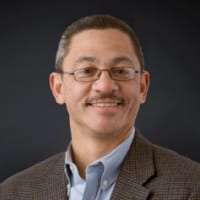
Yone Dewberry is the SVP and Chief Supply Chain Officer for Land O’Lakes, Inc. In this role, Yone has responsibility for all elements of supply chain operations, including strategy, talent management, manufacturing, engineering, supply and demand planning, transportation, warehousing, quality, analytics, and procurement. Prior to this role, he served as Senior Vice President of Supply Chain and Procurement. He has brought tremendous value in changing Land O’Lakes distribution models, accelerating service collaboration, redefining transportation strategy and positioning in the art of innovation. Yone joined Land O’Lakes in 2008 as Director of Dairy Planning. He is a highly-regarded strategist and developer of talent with a broad background that includes more than 12 years working as a supply chain consultant with a variety of global companies, including BDP International and KPMG, and 15 years with consumer products and chemical companies, such as Kraft Foods, Corning Glass and ARCO. Earlier in his career, Yone was in direct leadership positions for Kraft plants, including Entenmann’s Bakery. He has held numerous volunteer and non-profit board positions, including a member of the Board of Directors for Delaware Special Olympics from 1988 to 1993, as their president in 1992 and 1993, as a member on the Delaware State Council on Housing from 1989 to 1994, as their Chairman in 1993 and 1994, and as a Sunday School teacher at Columbus Baptist Church from 2003-2005. He was recently named as one of the 300 most influential African-American corporate executives by Black Enterprise Magazine. Yone earned his B.S. in Chemical Engineering from the University of Pennsylvania and MBA from Lehigh University. He is a proud member of Alpha Phi Alpha Fraternity.
